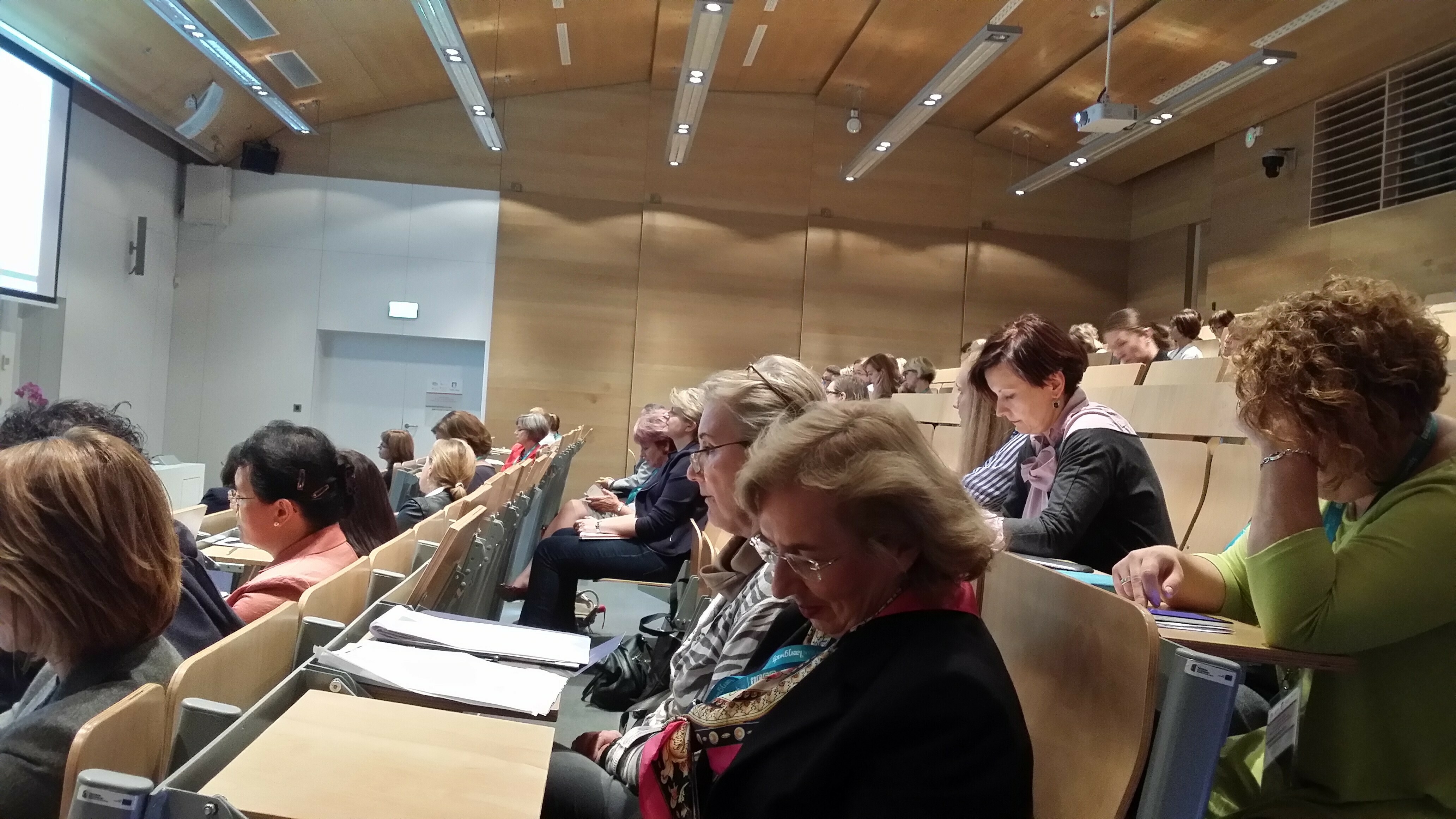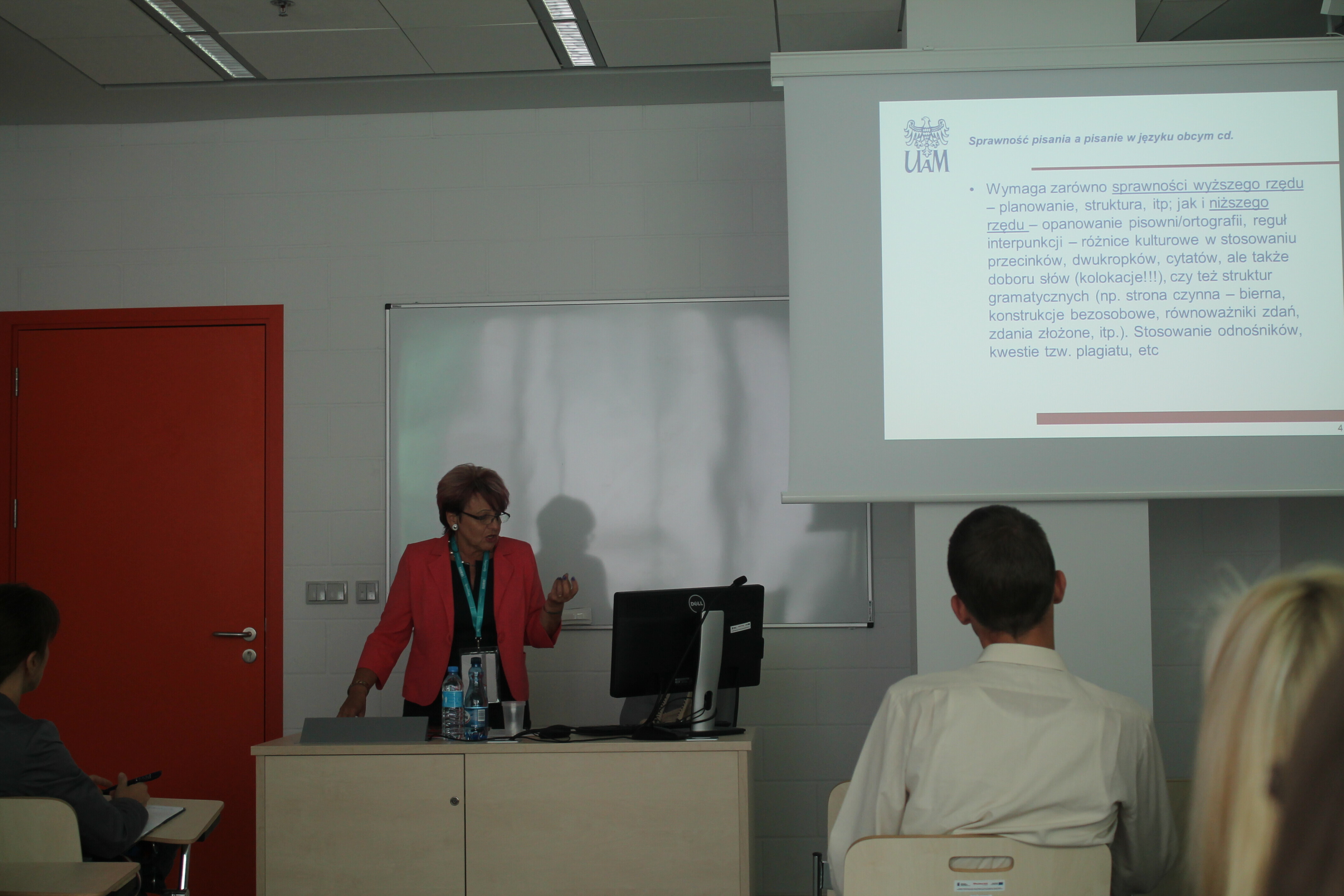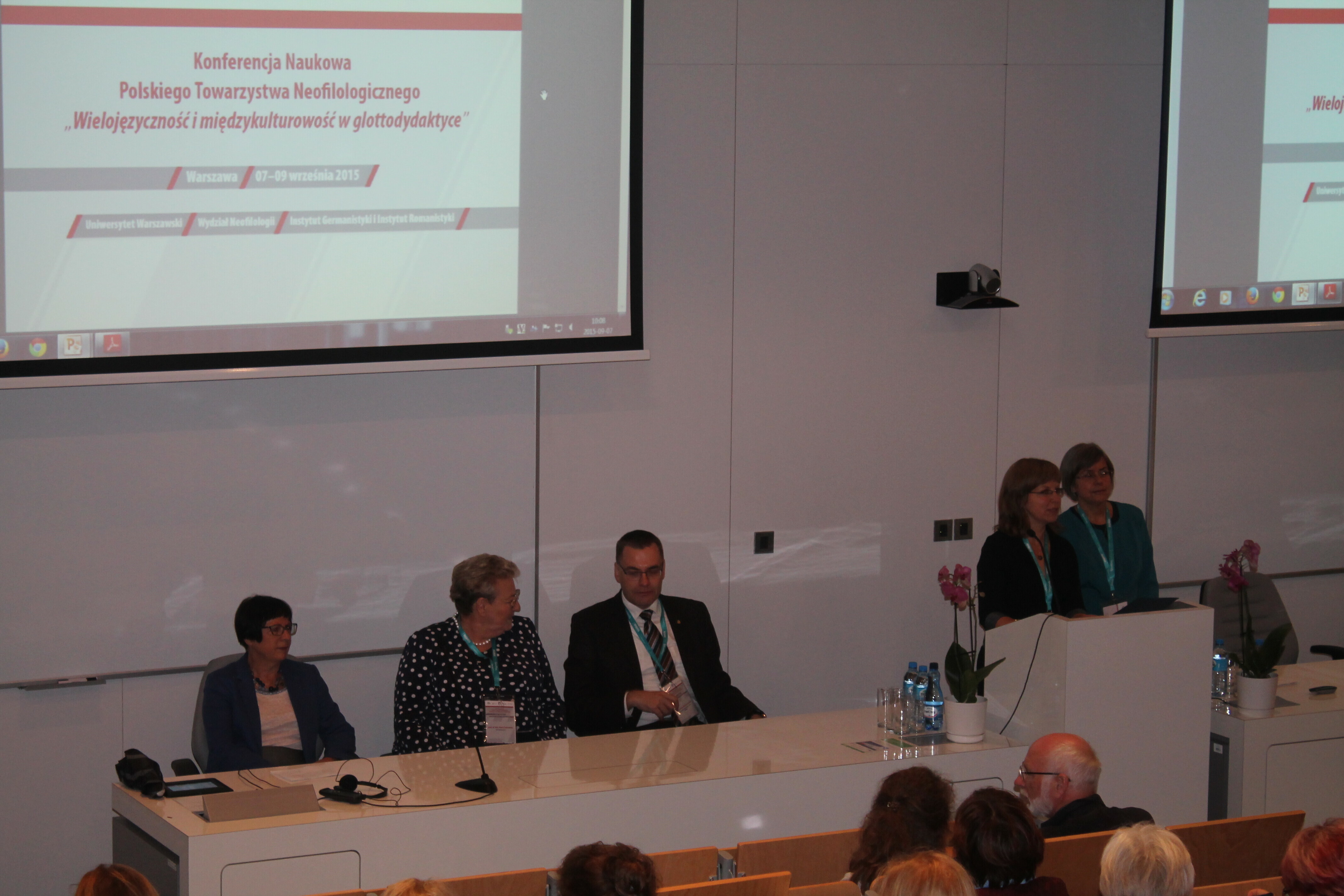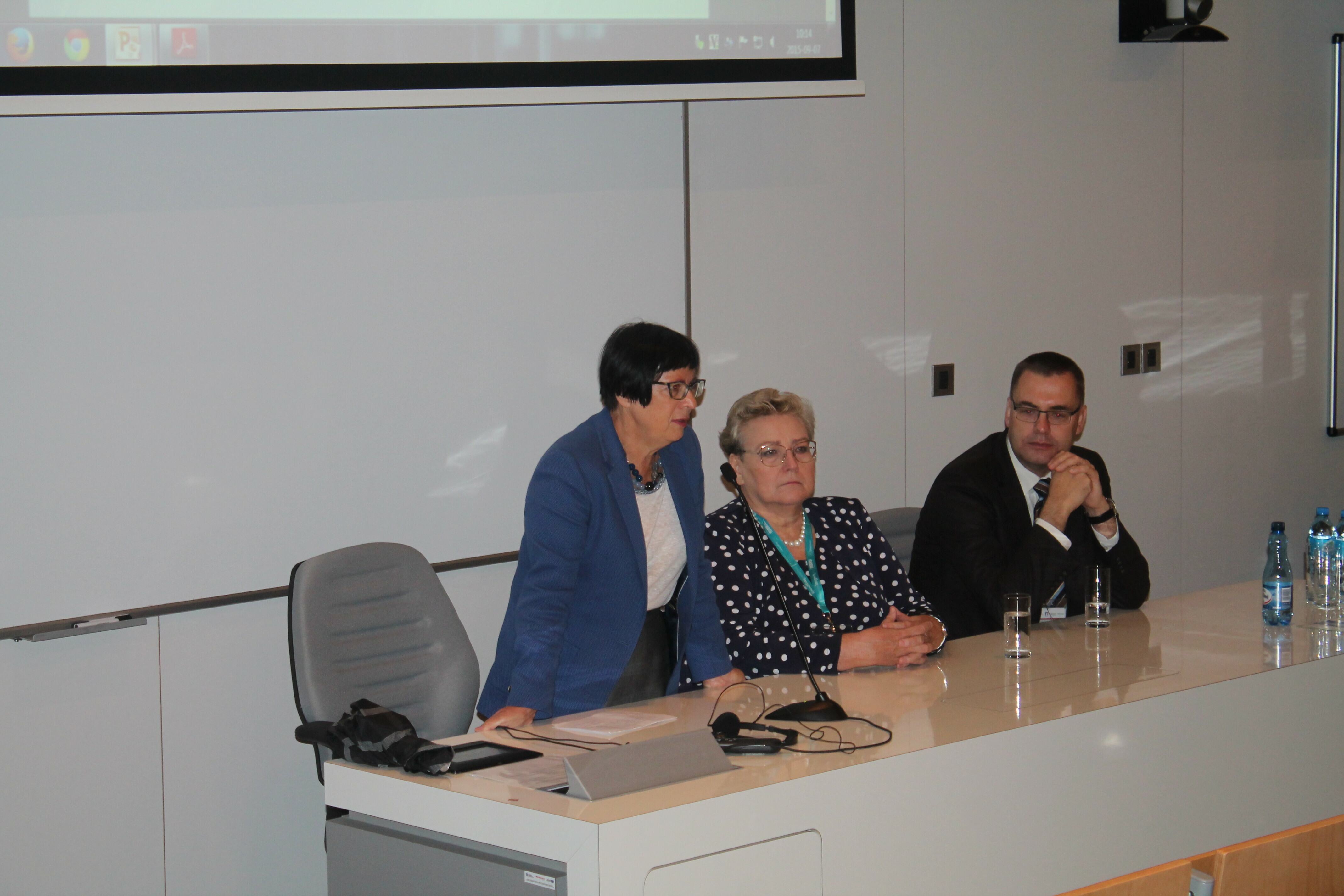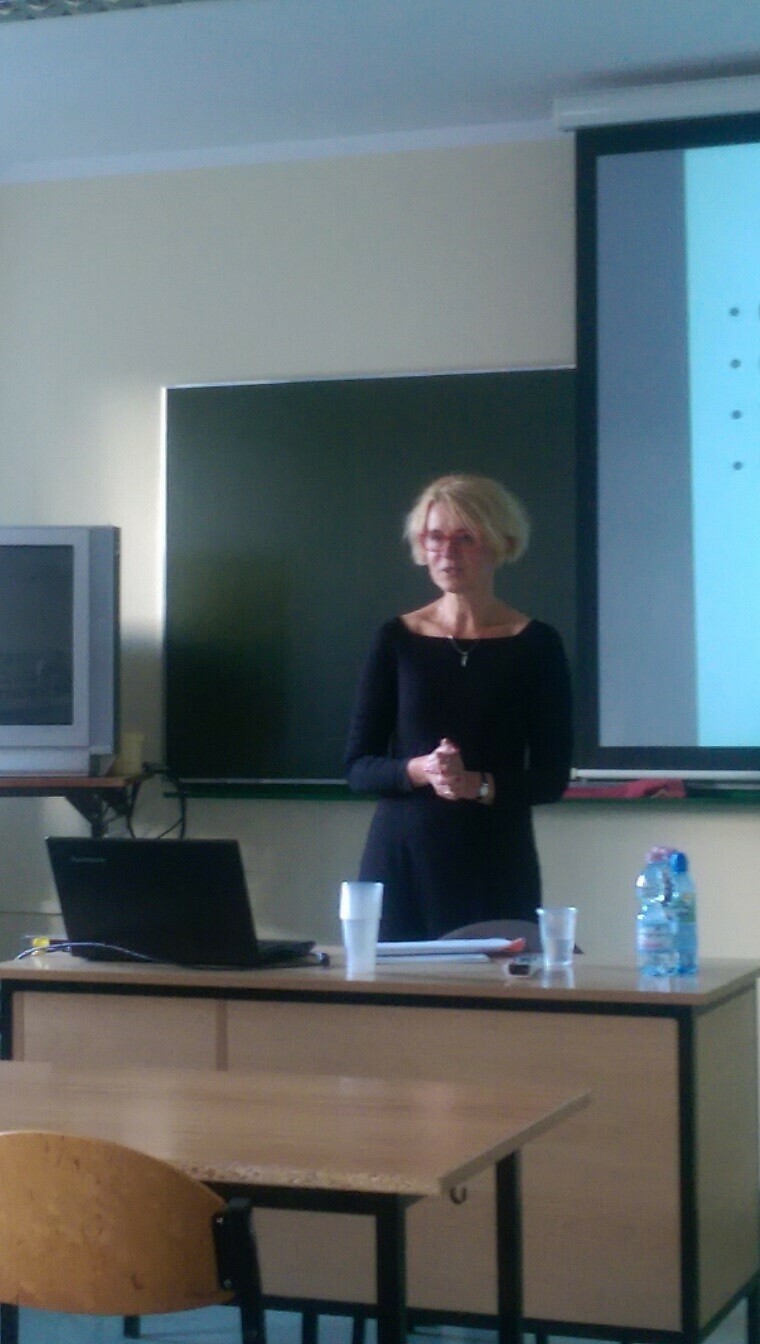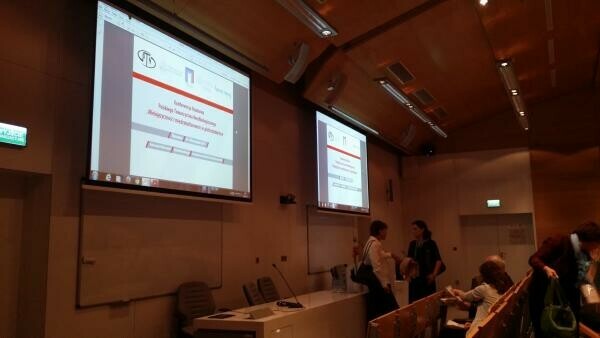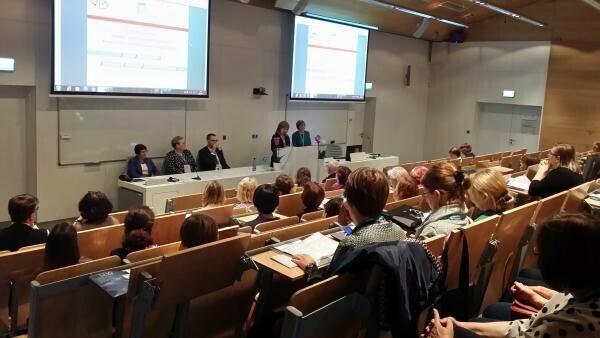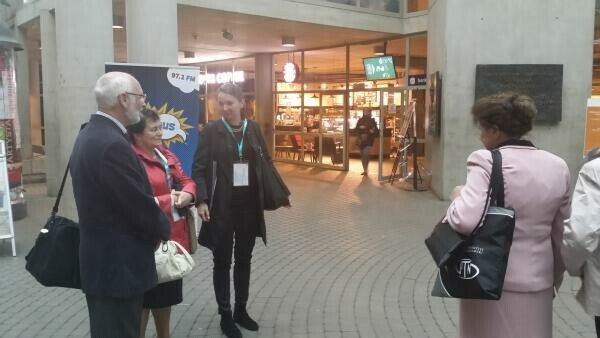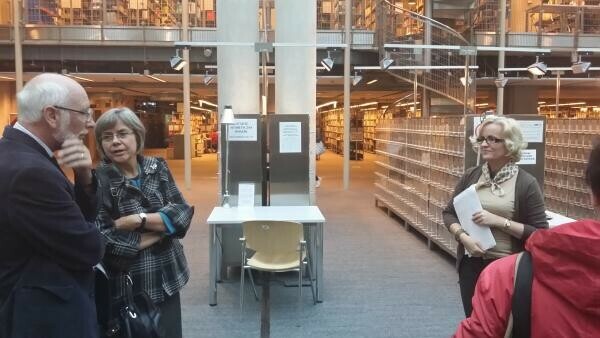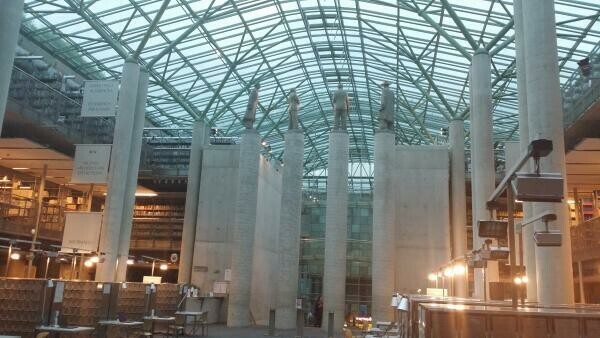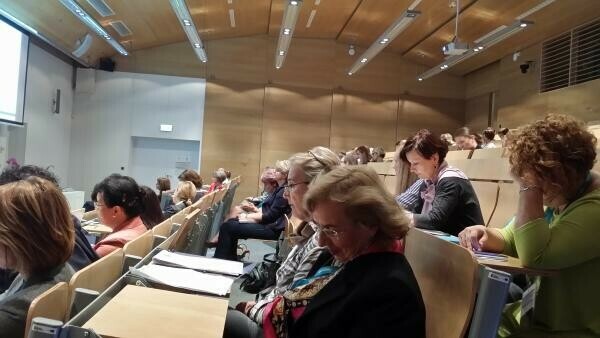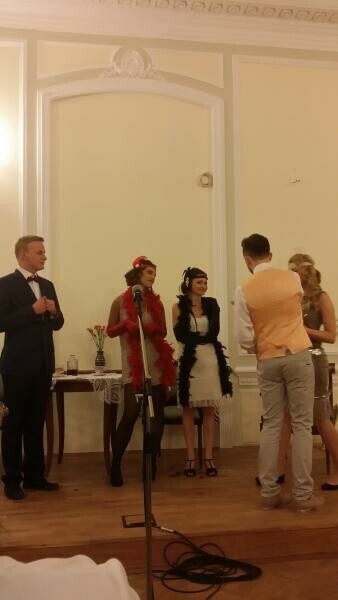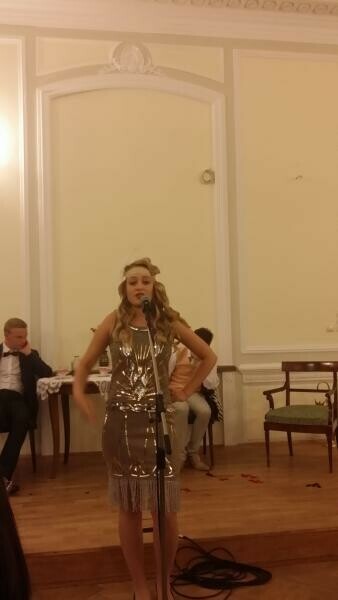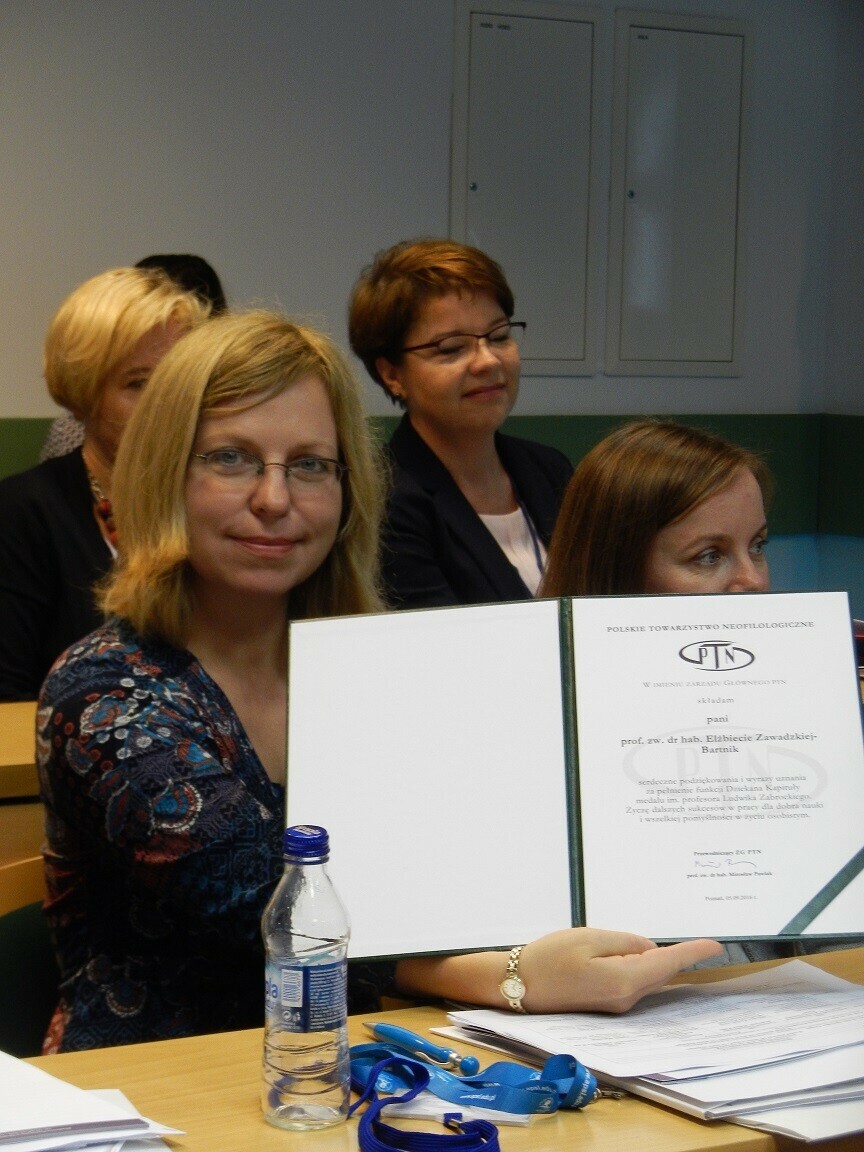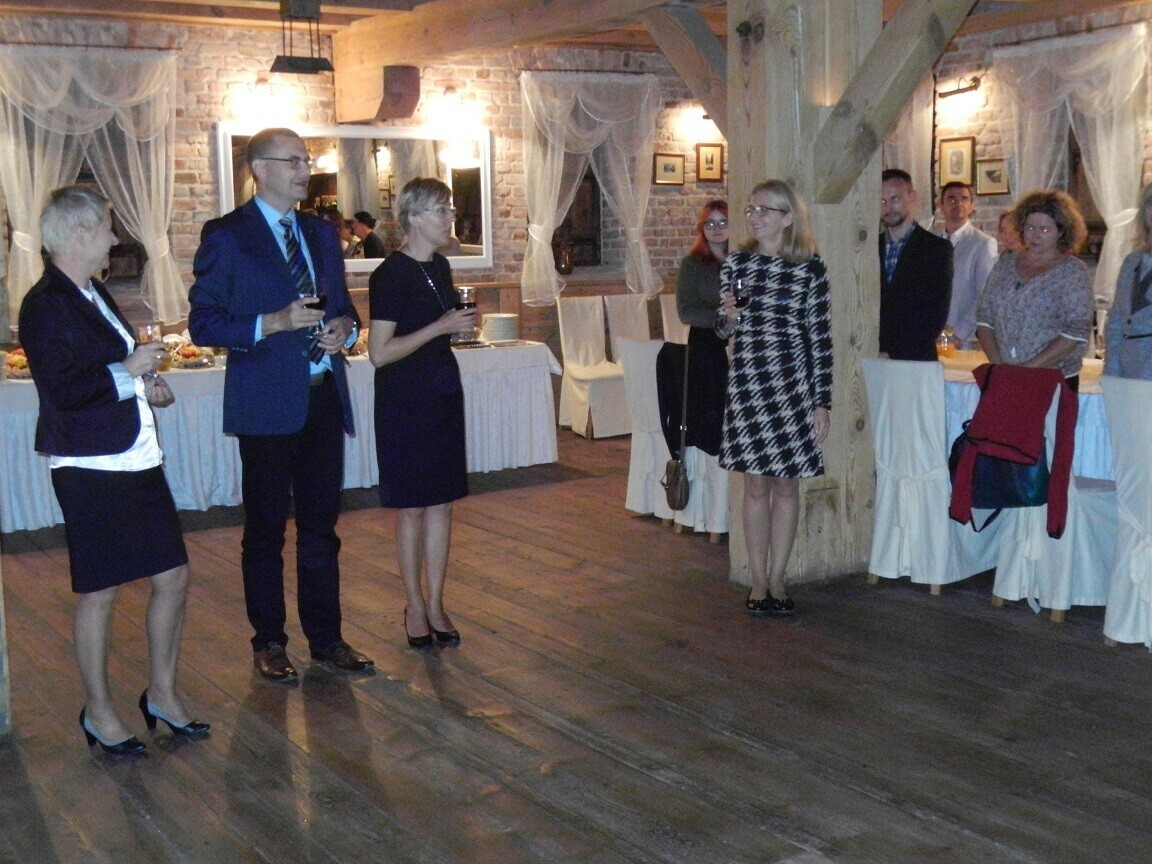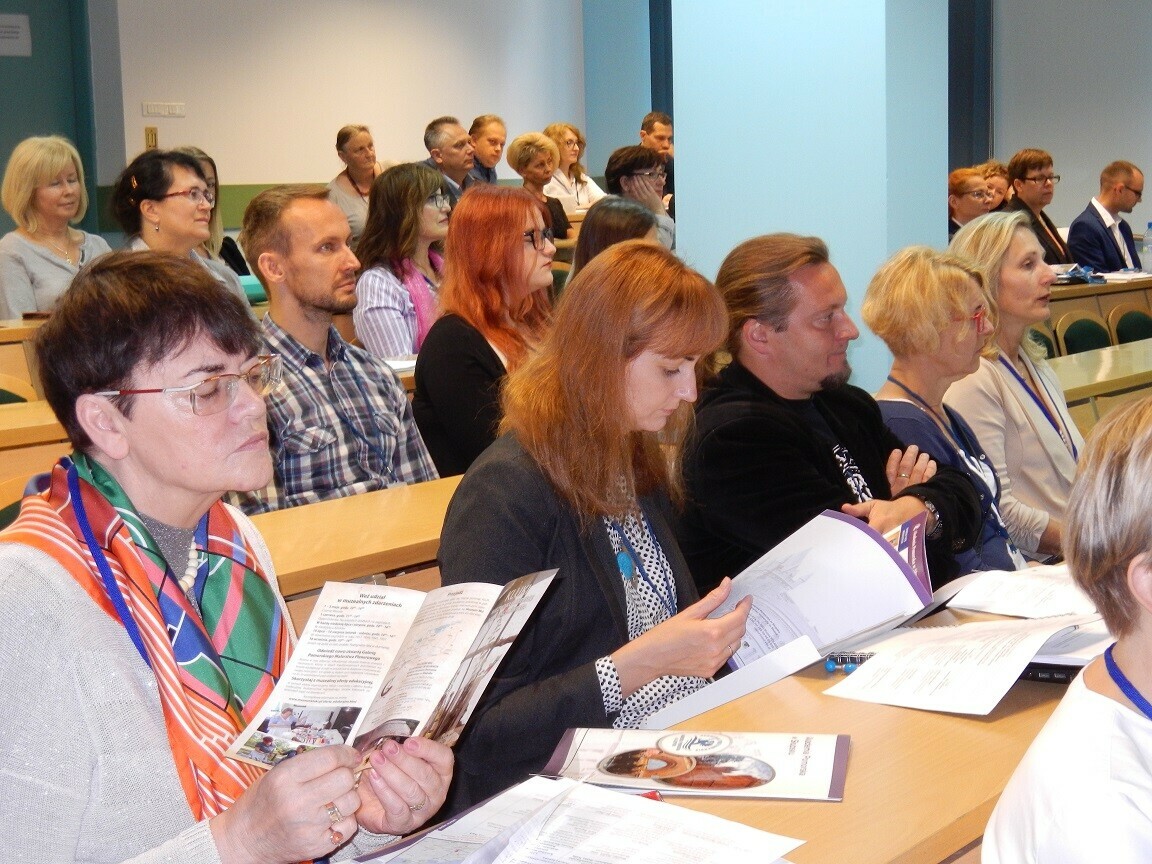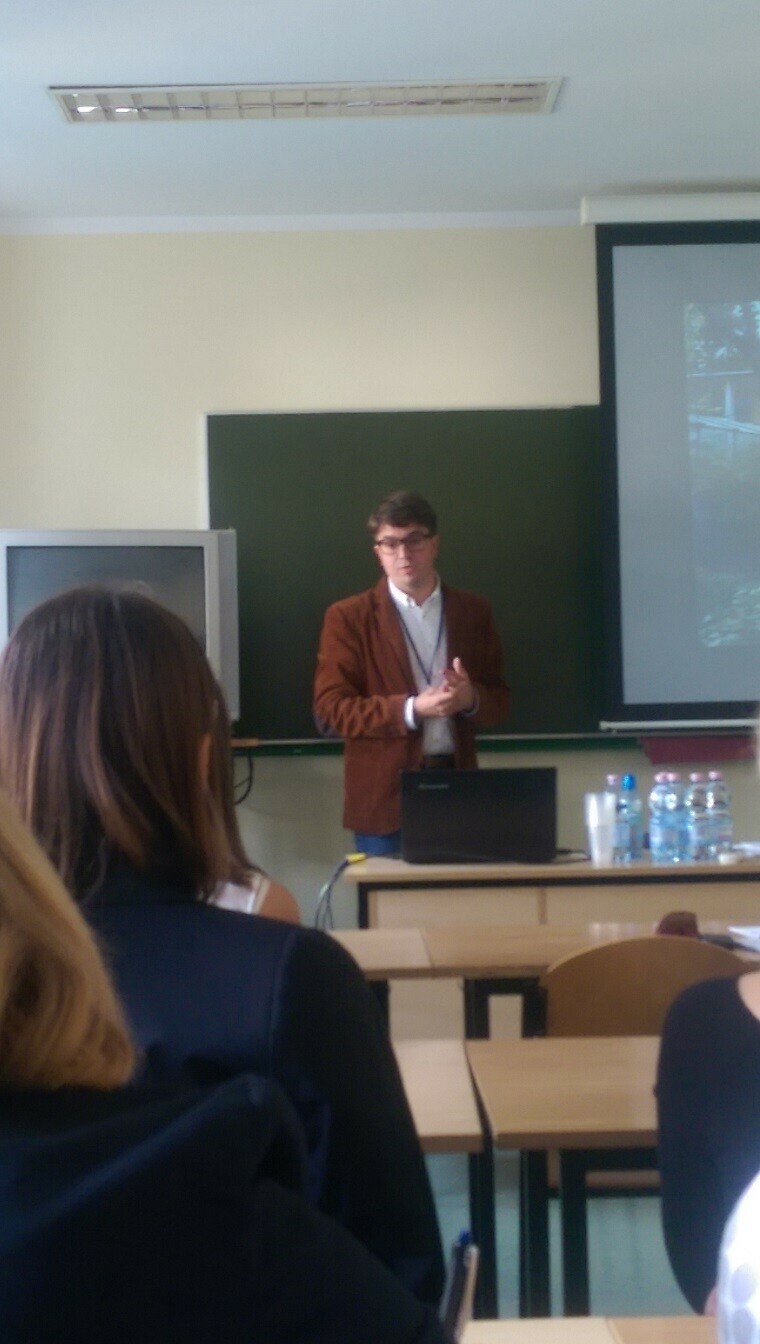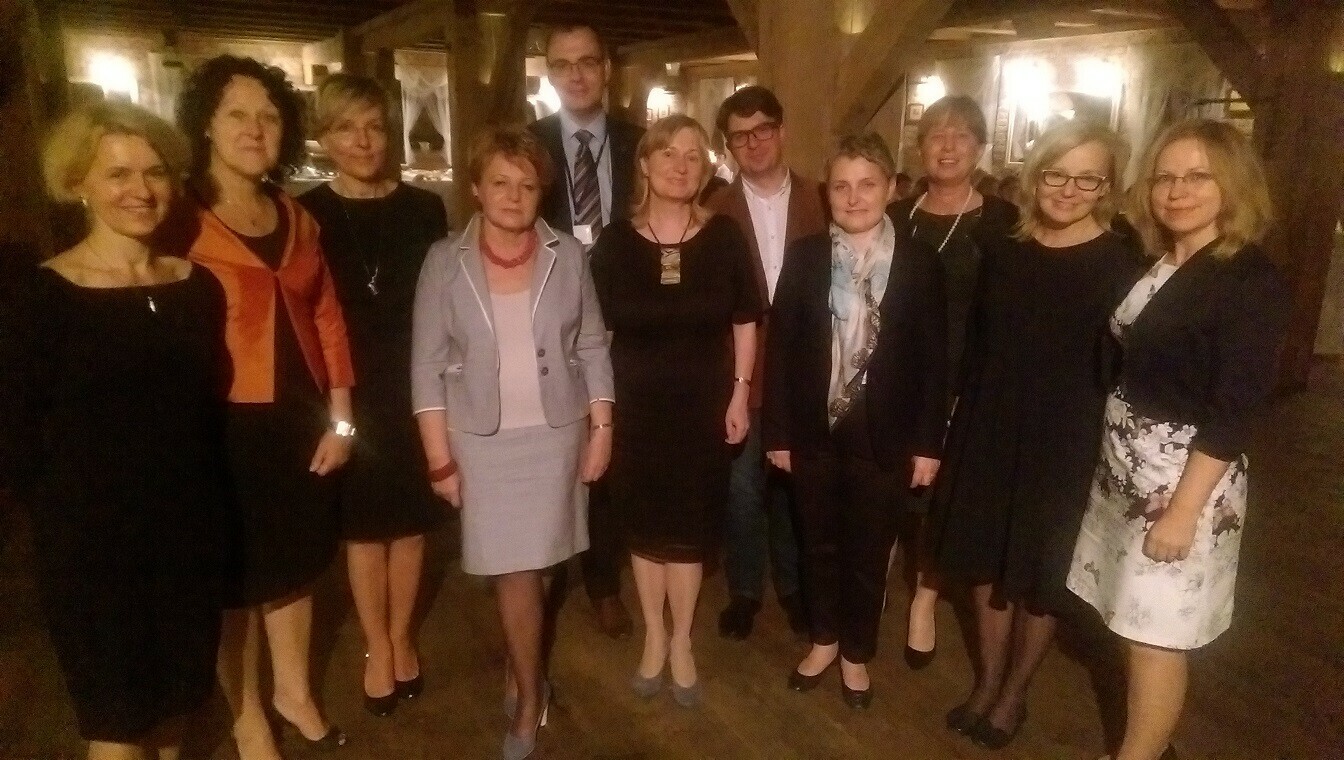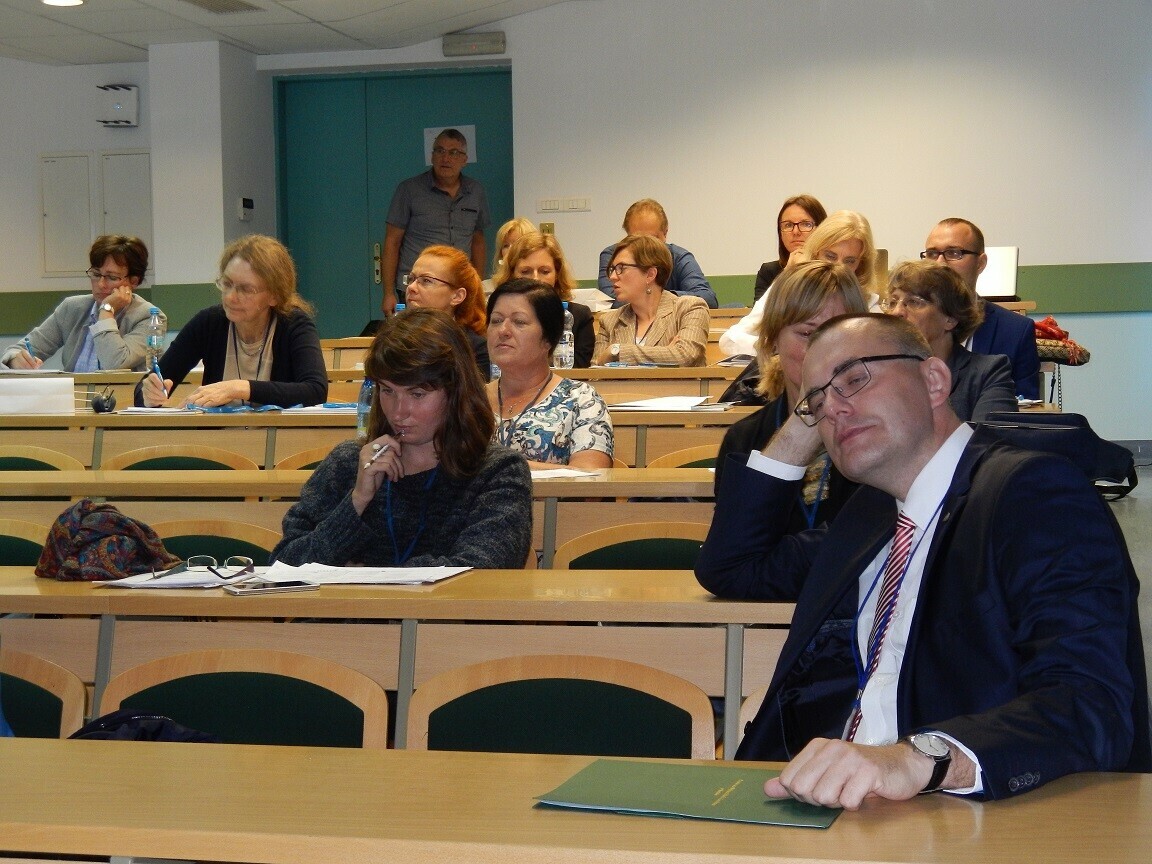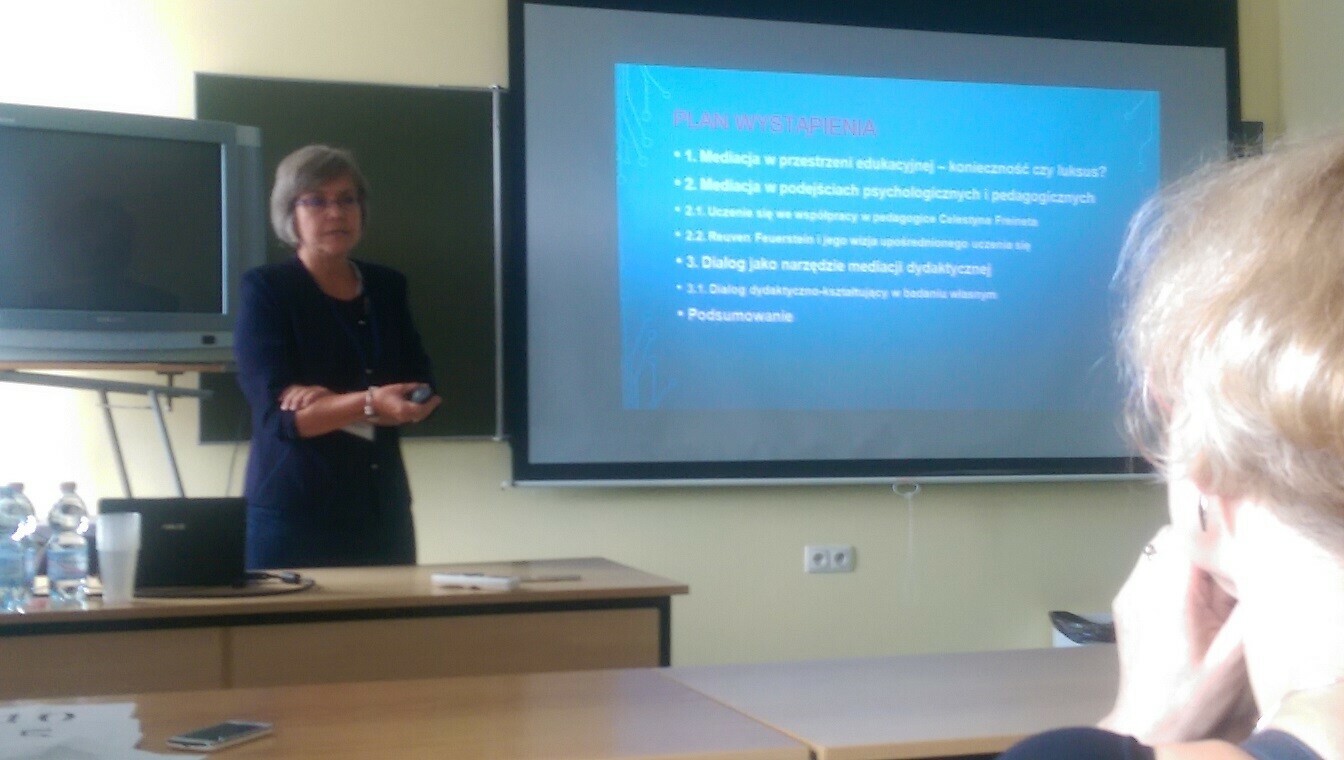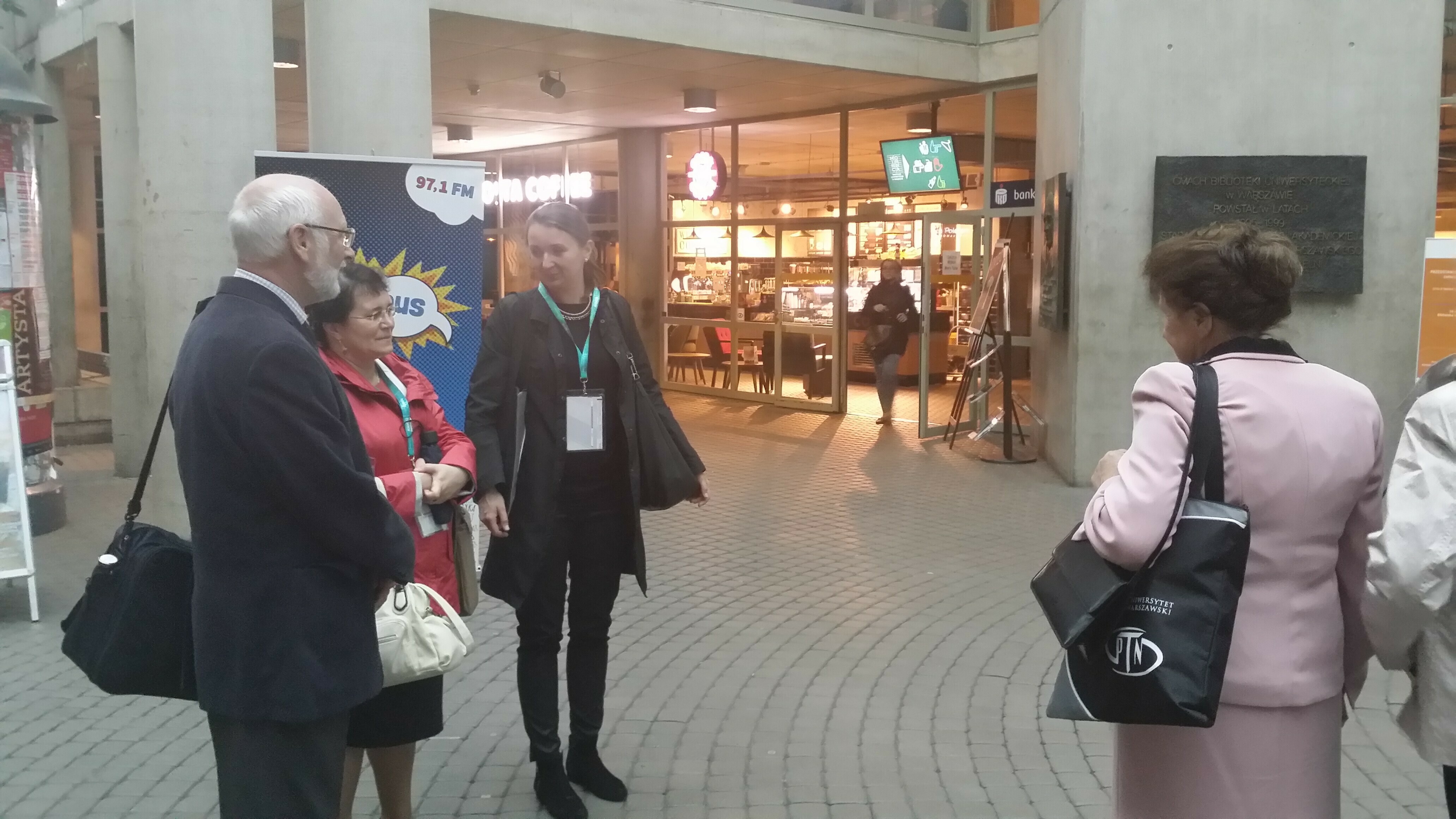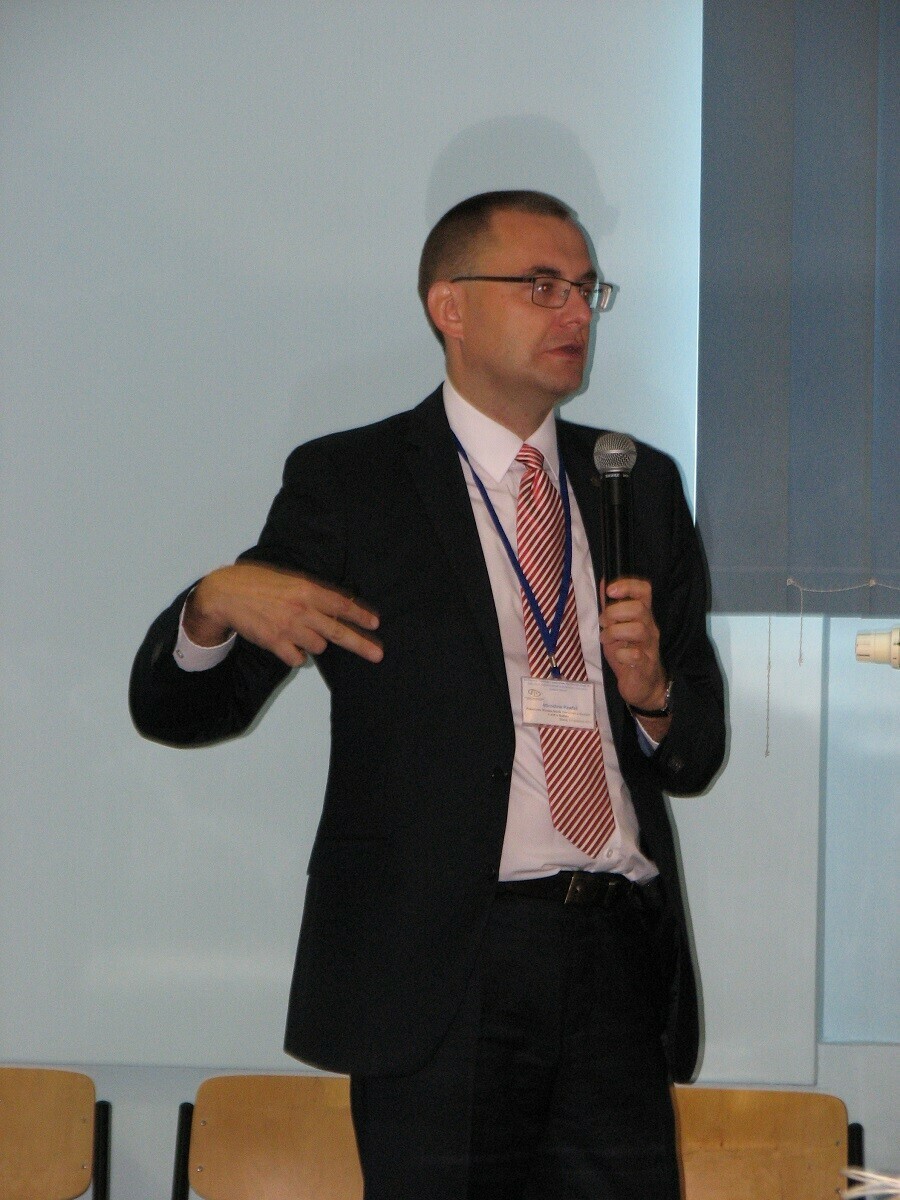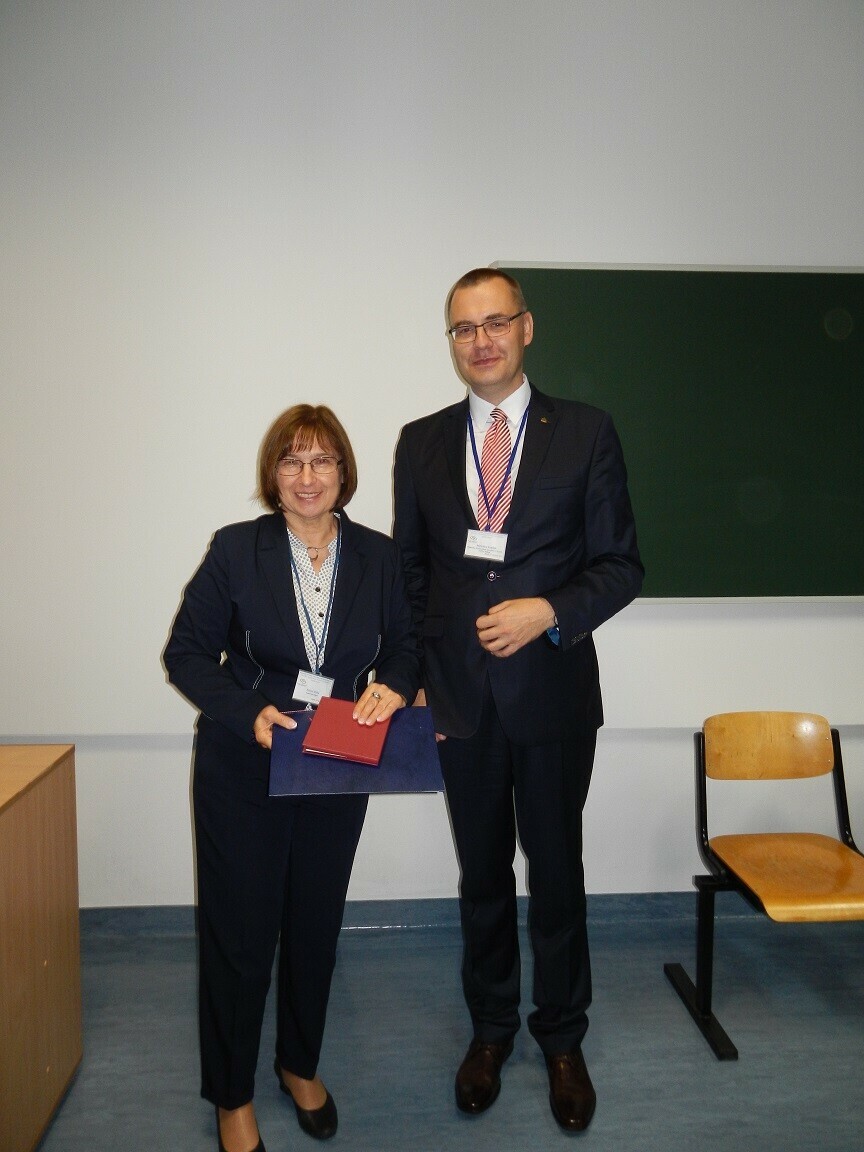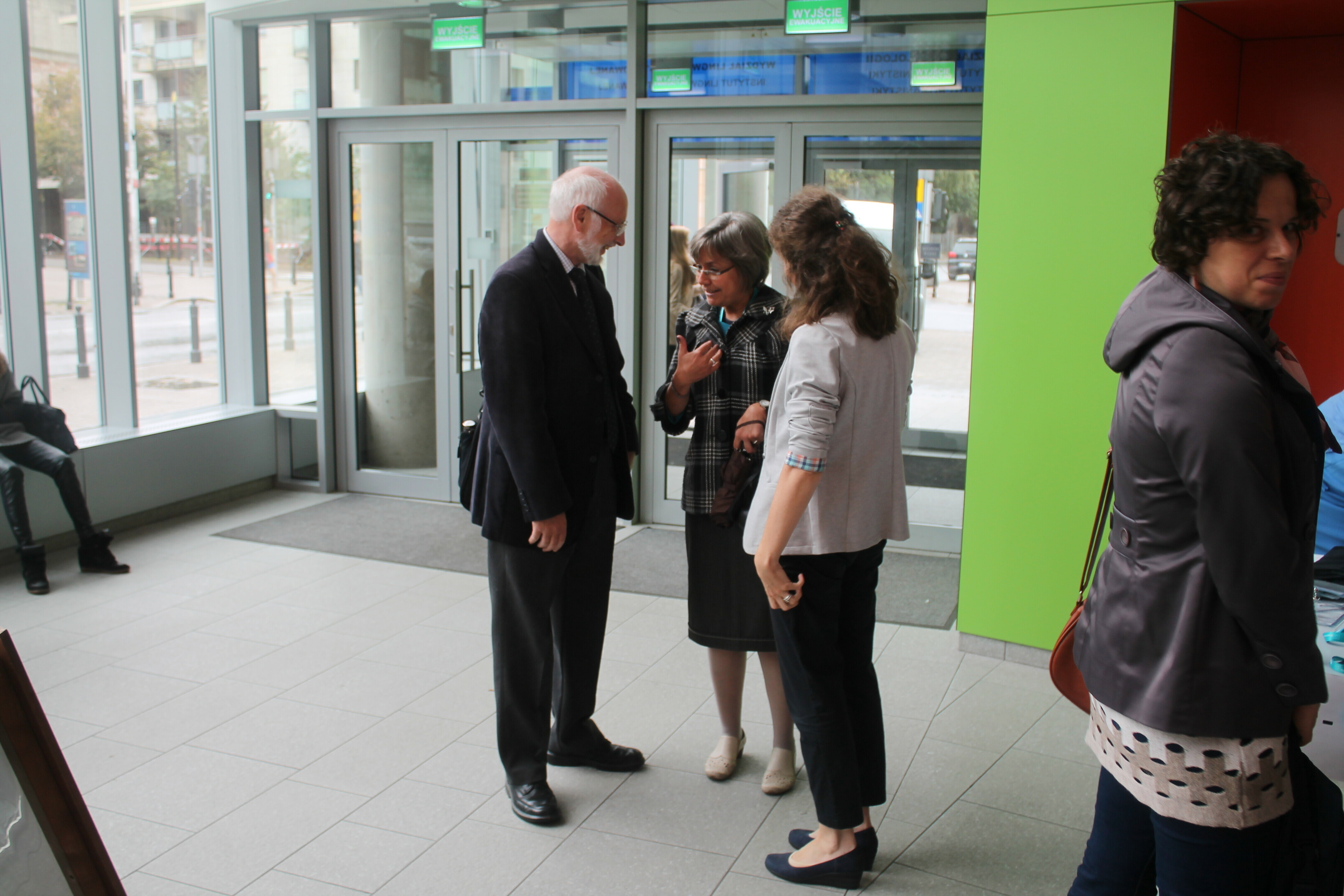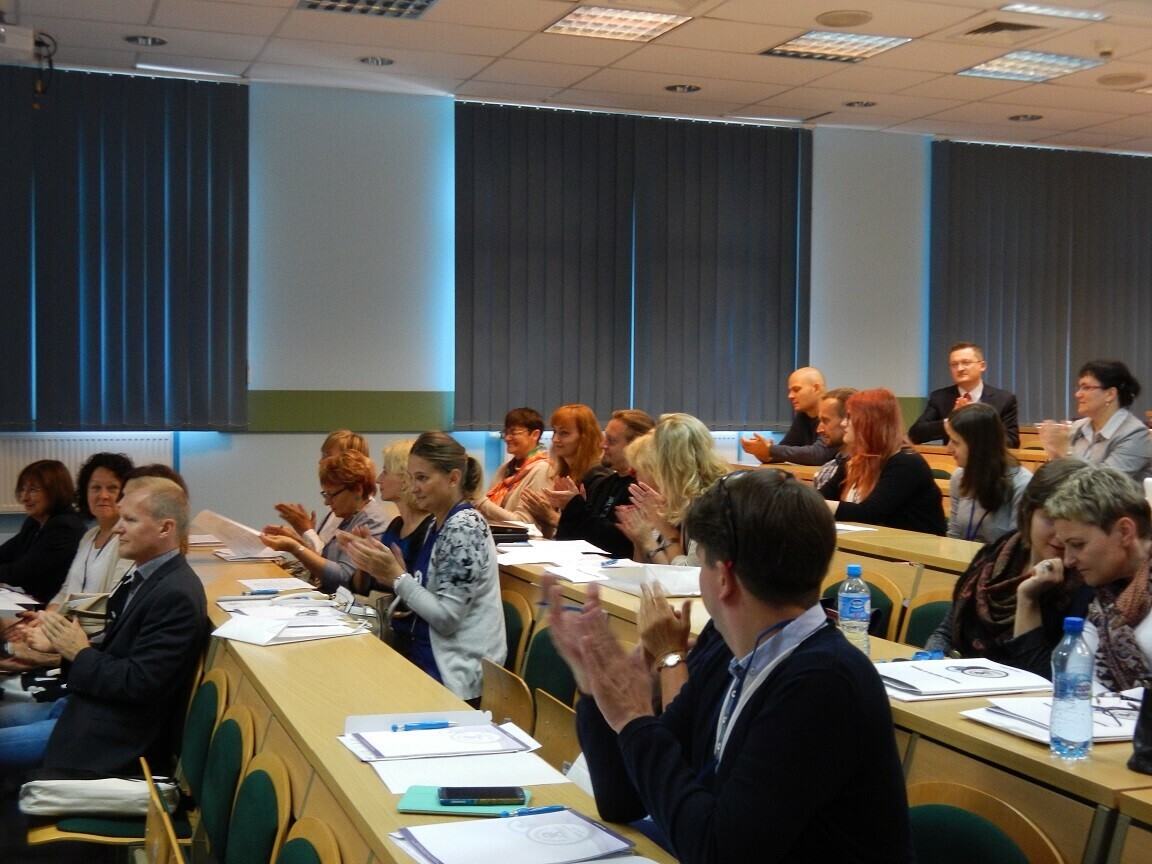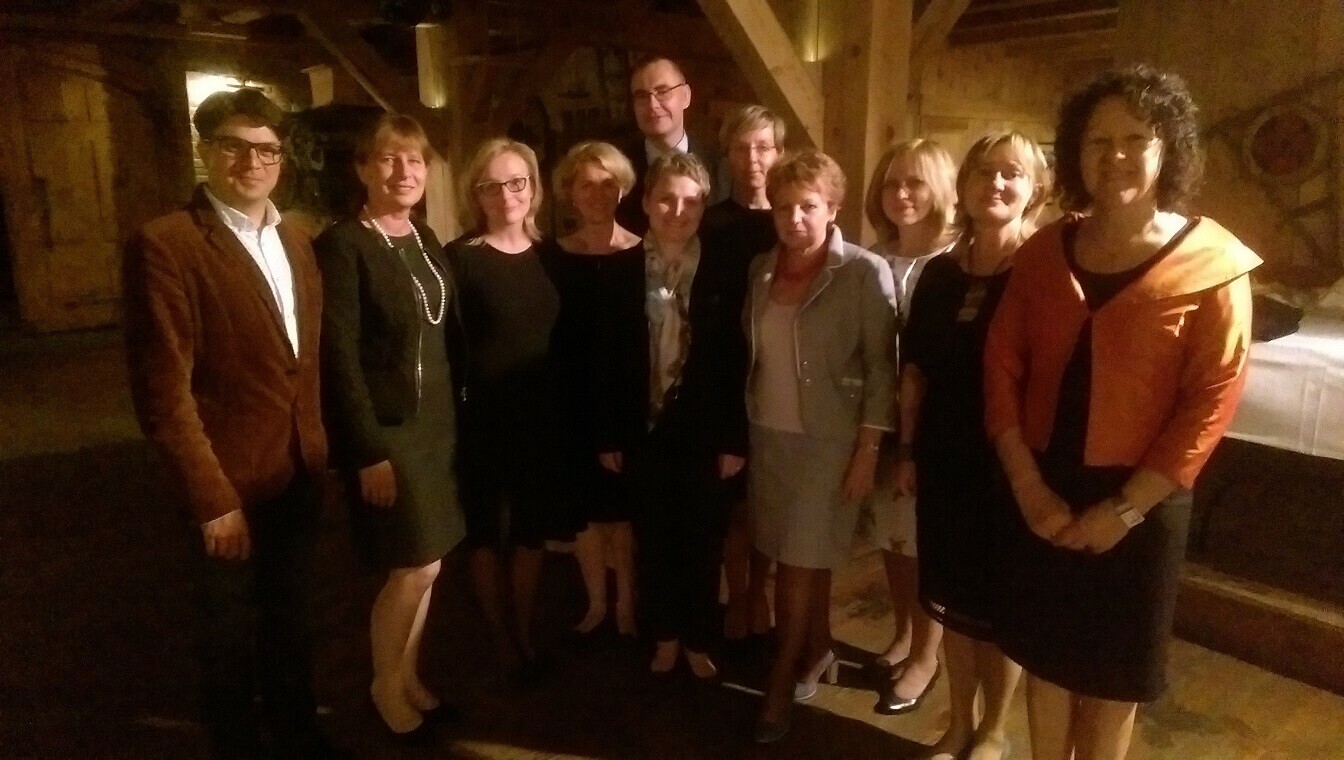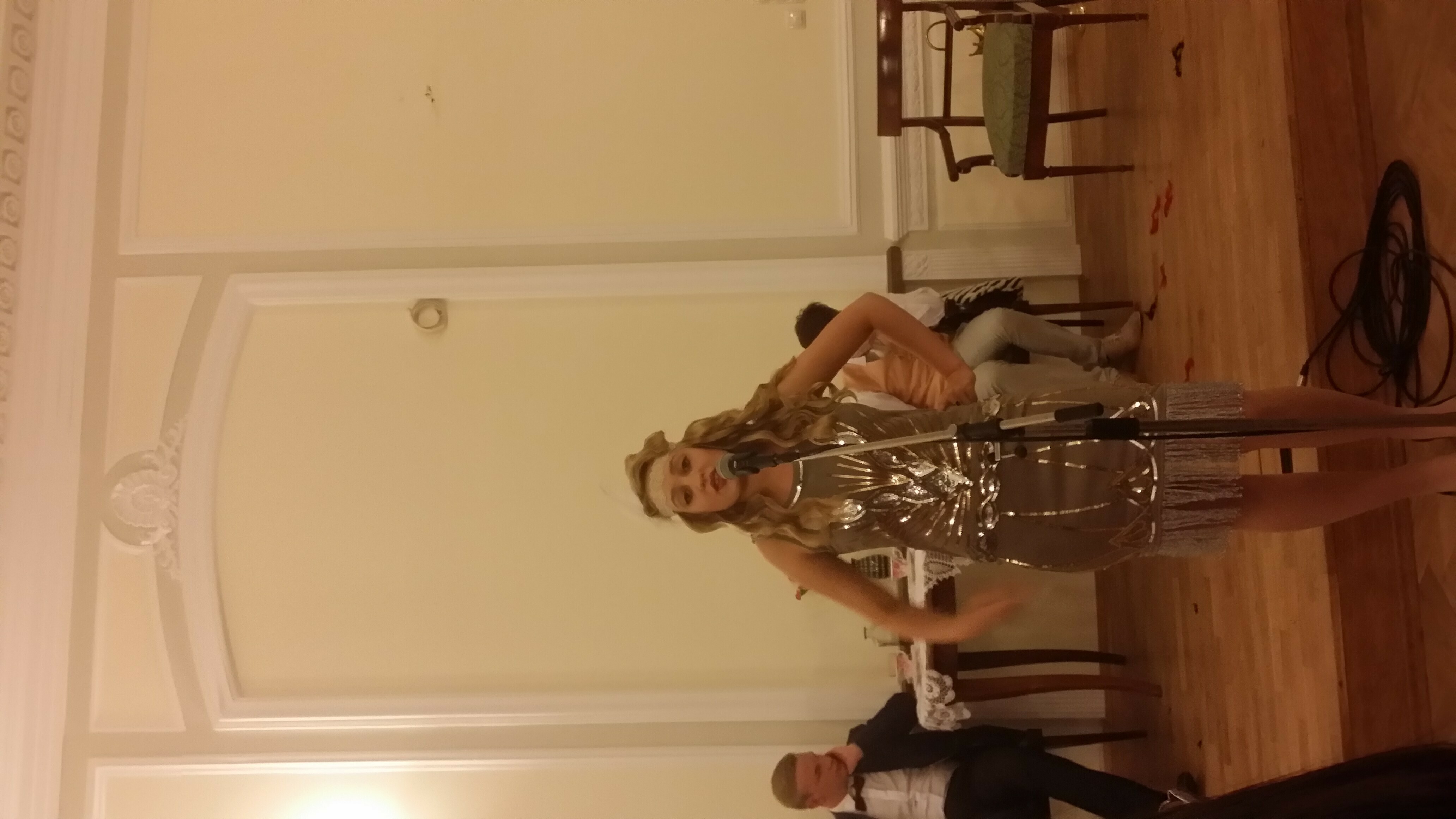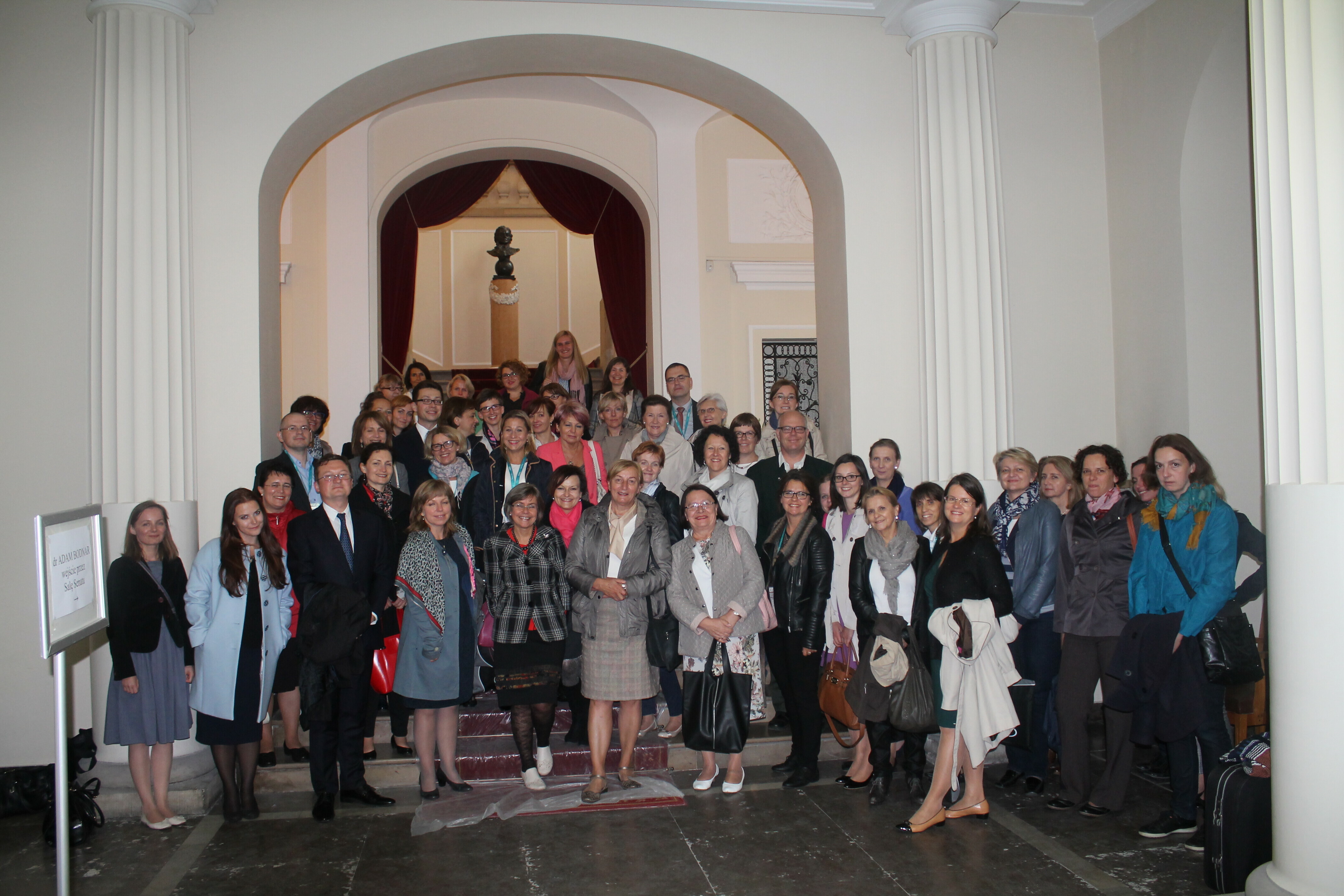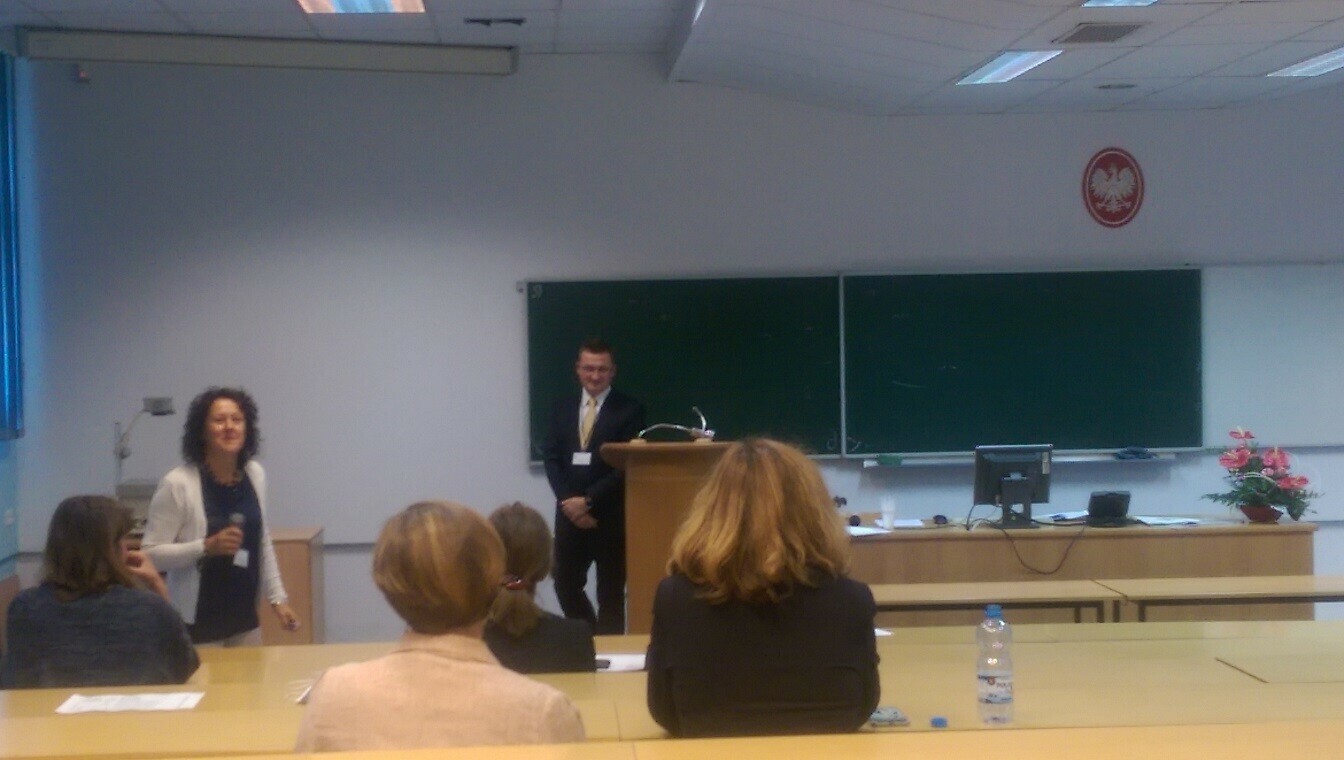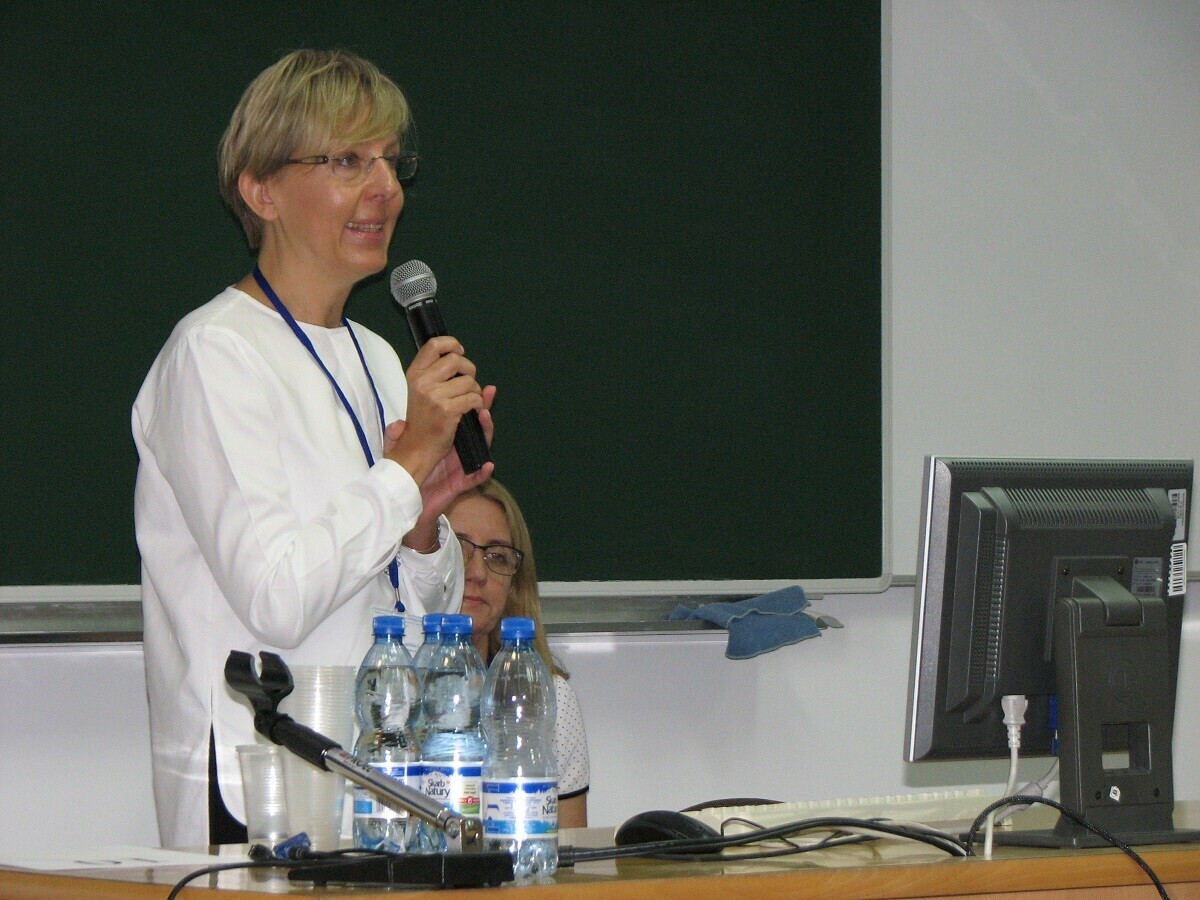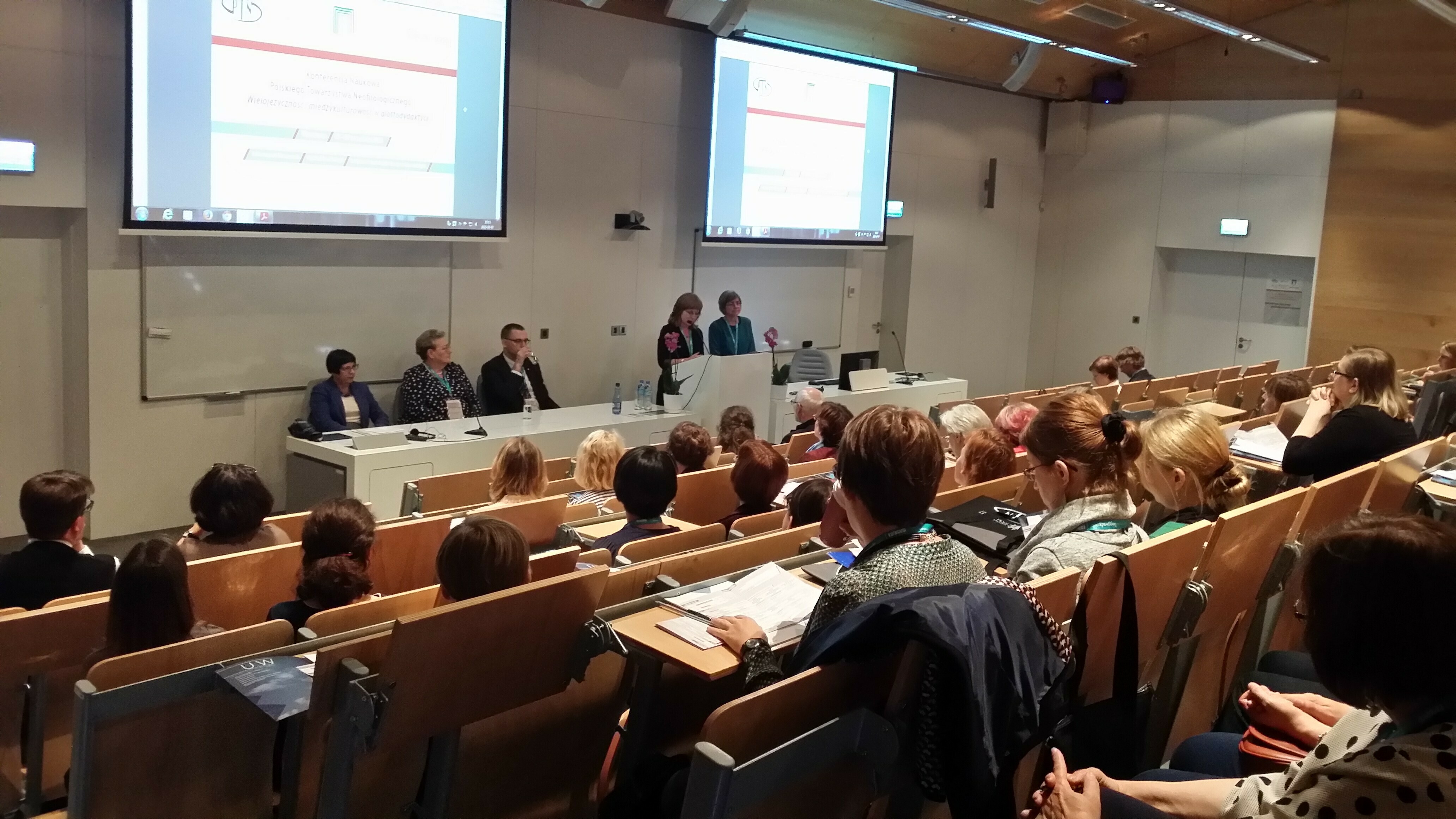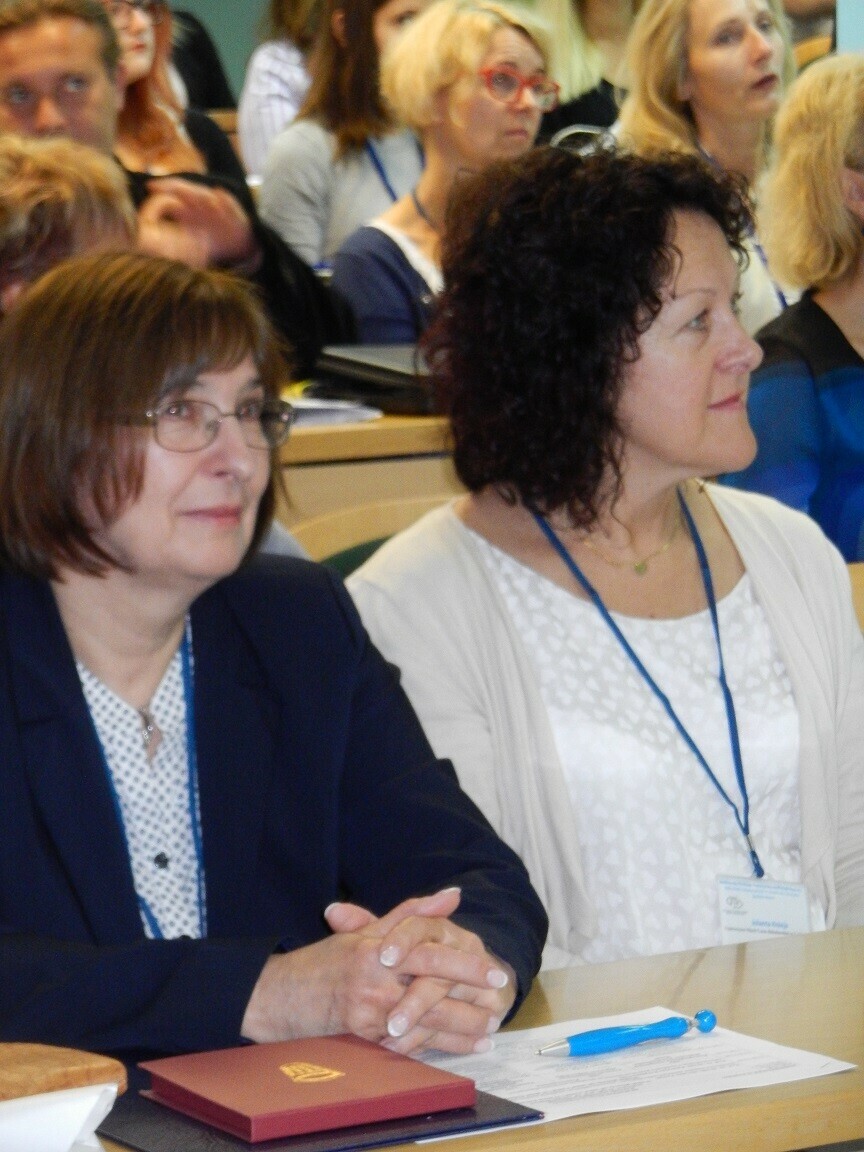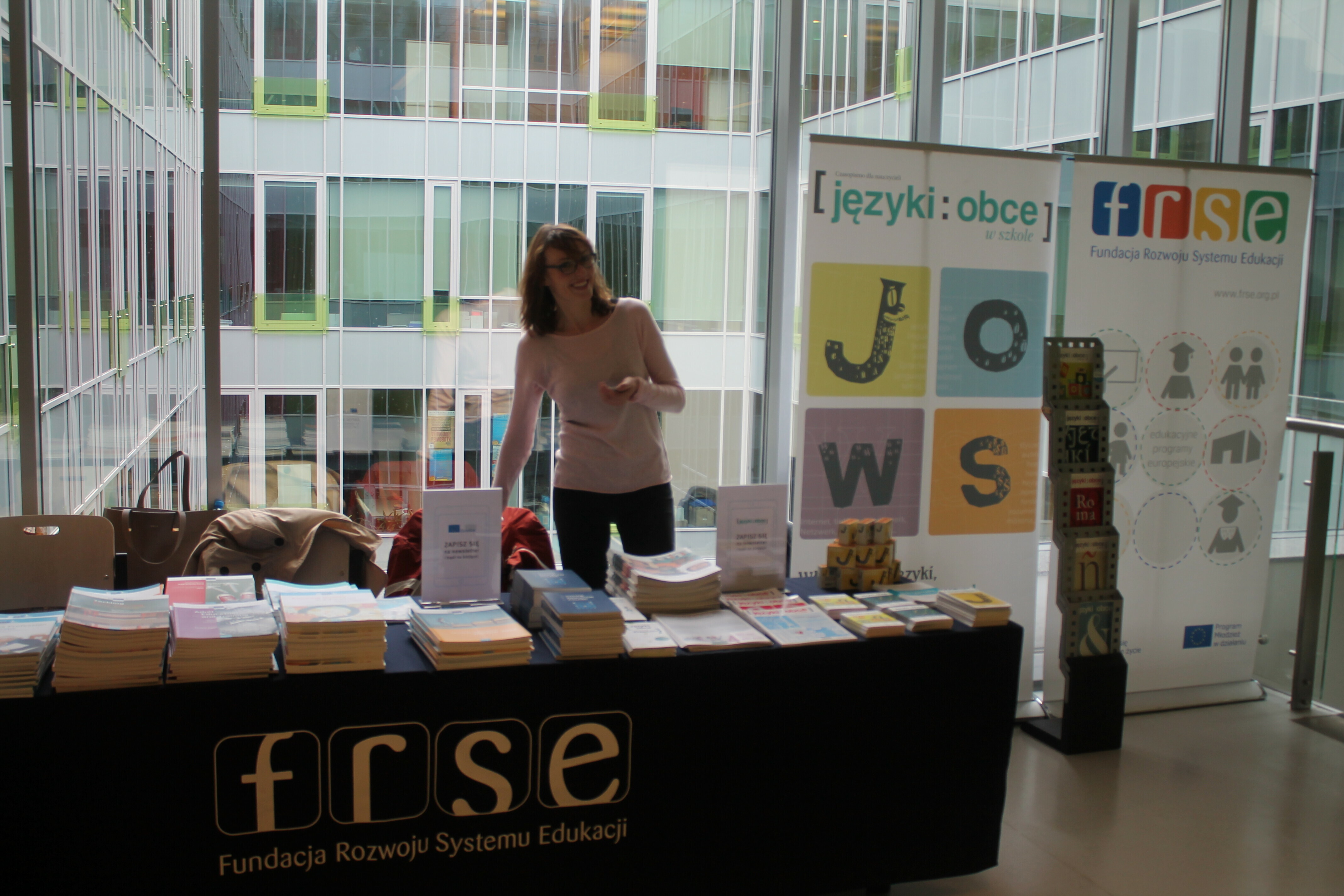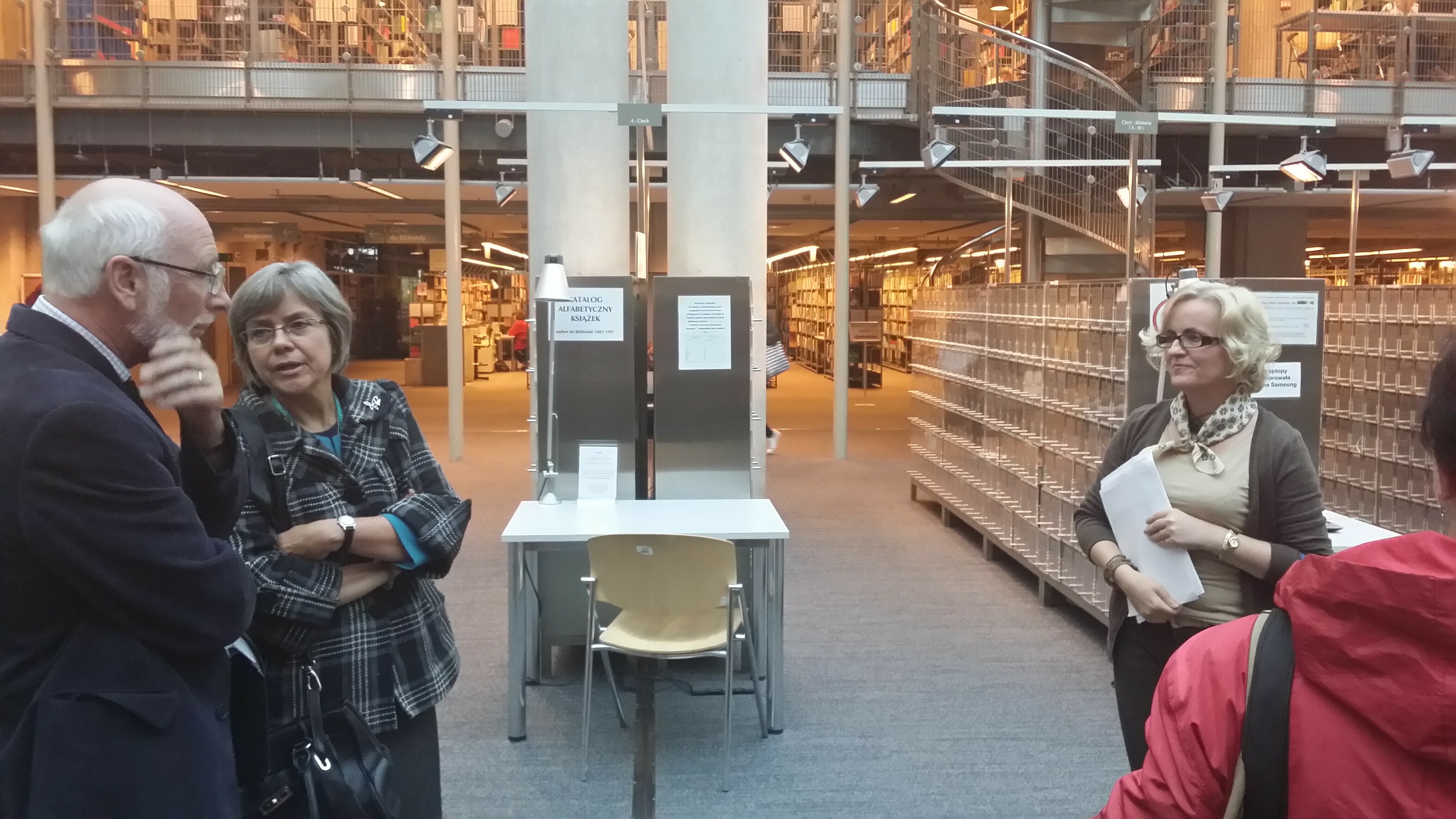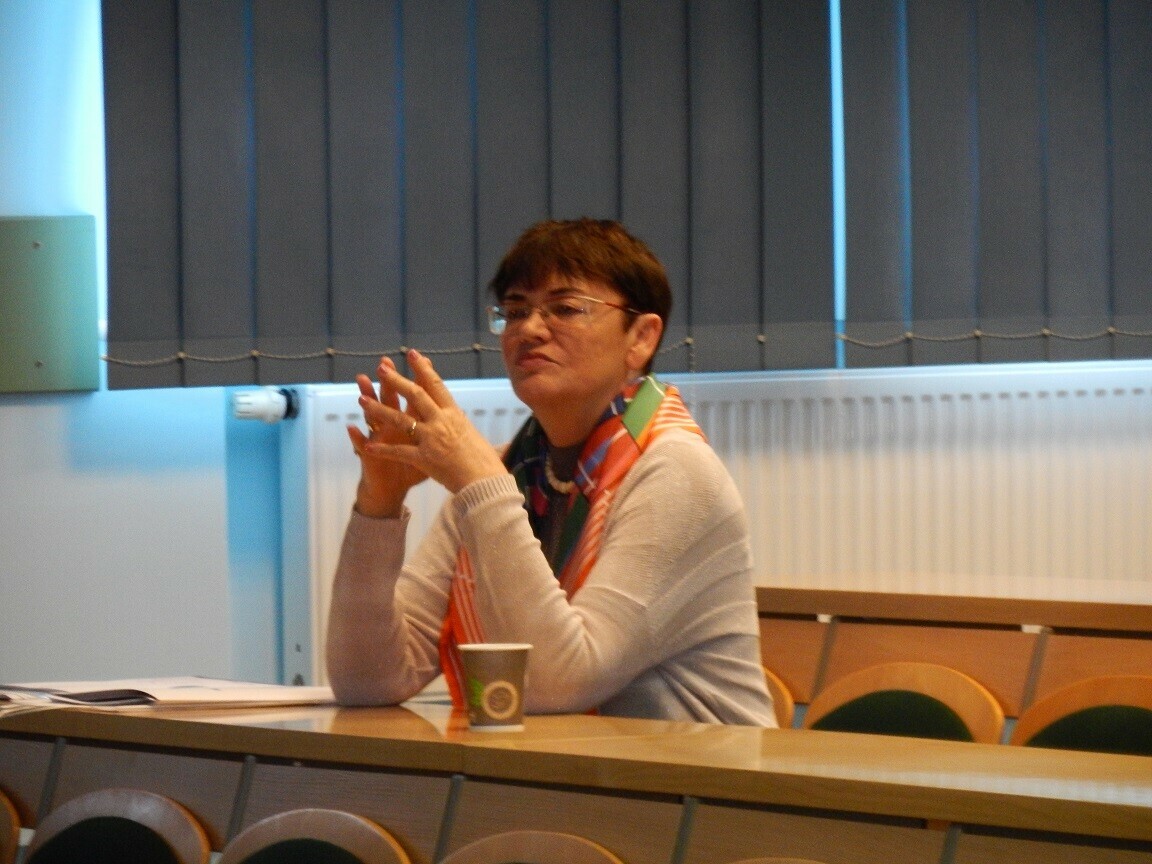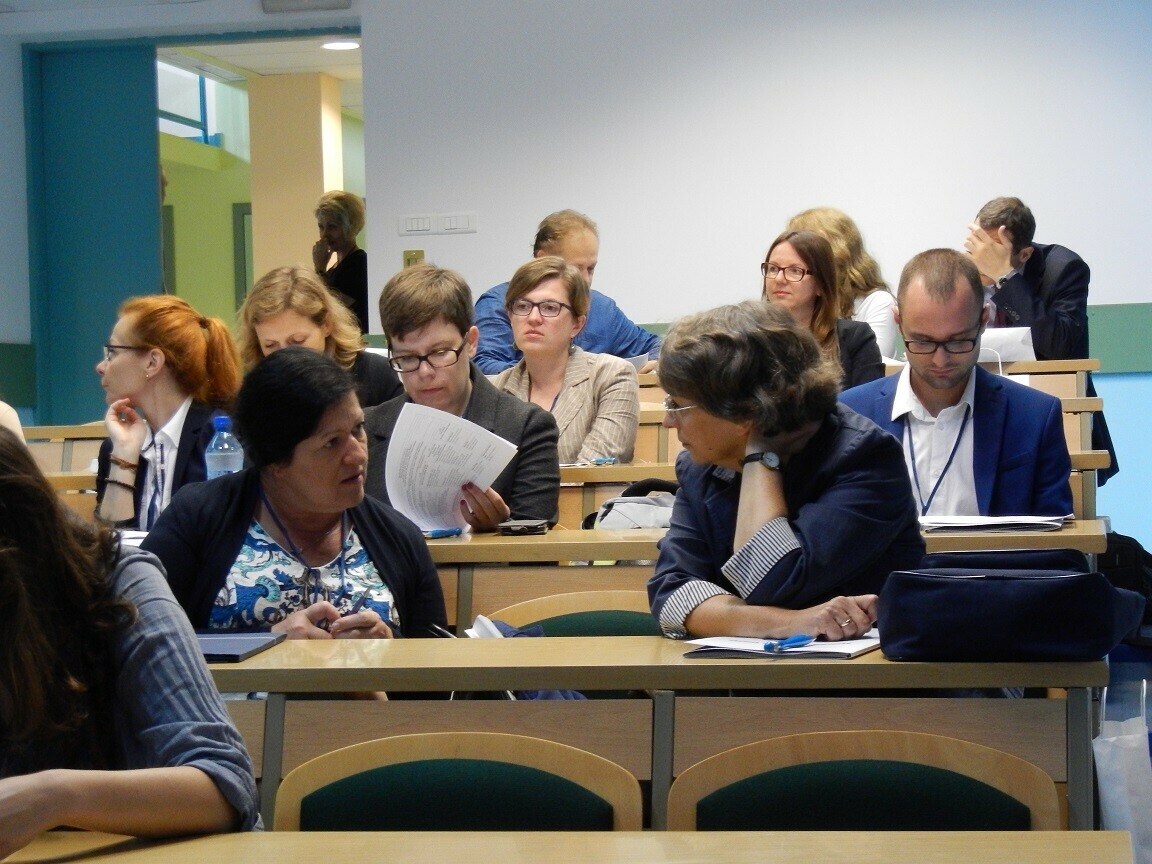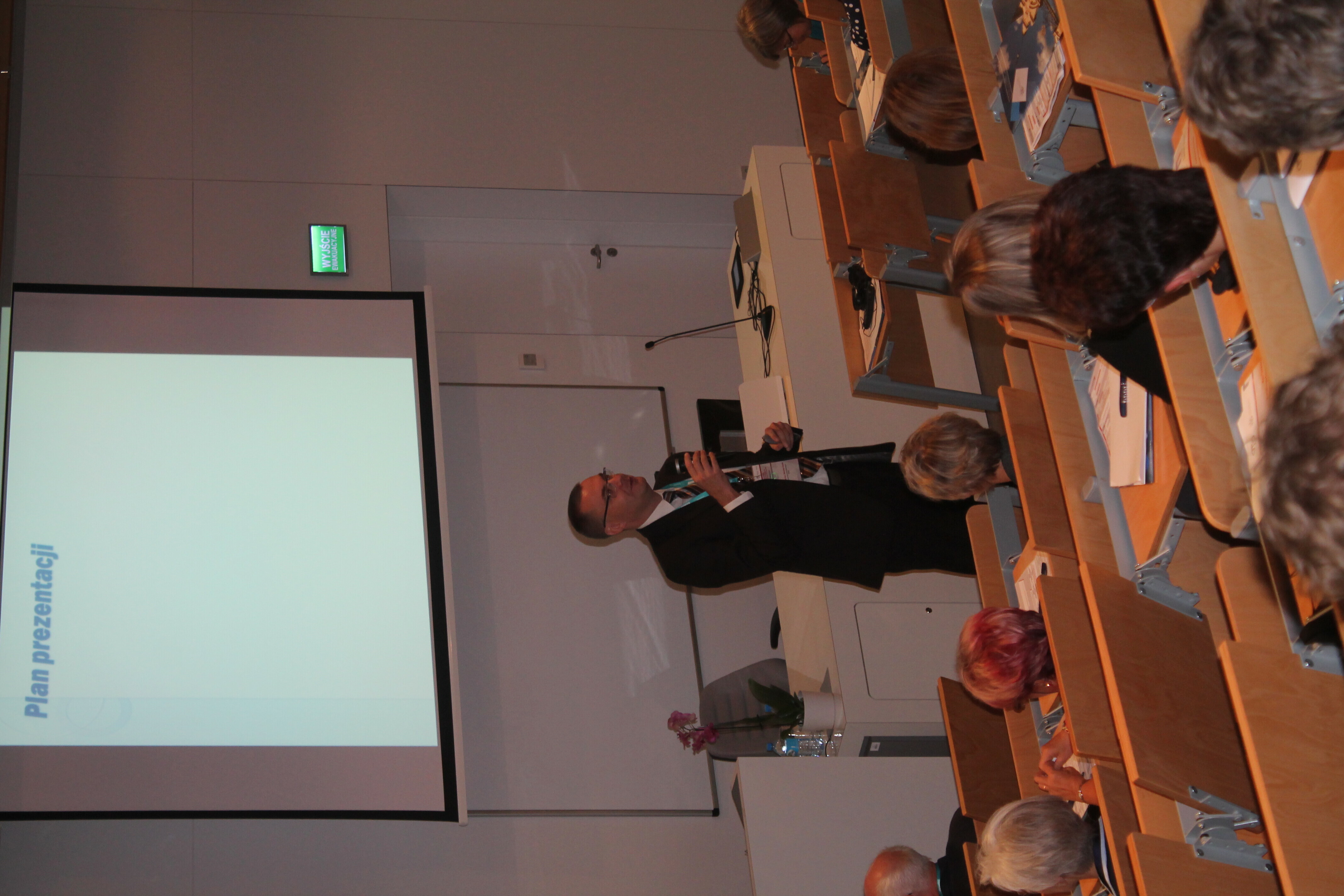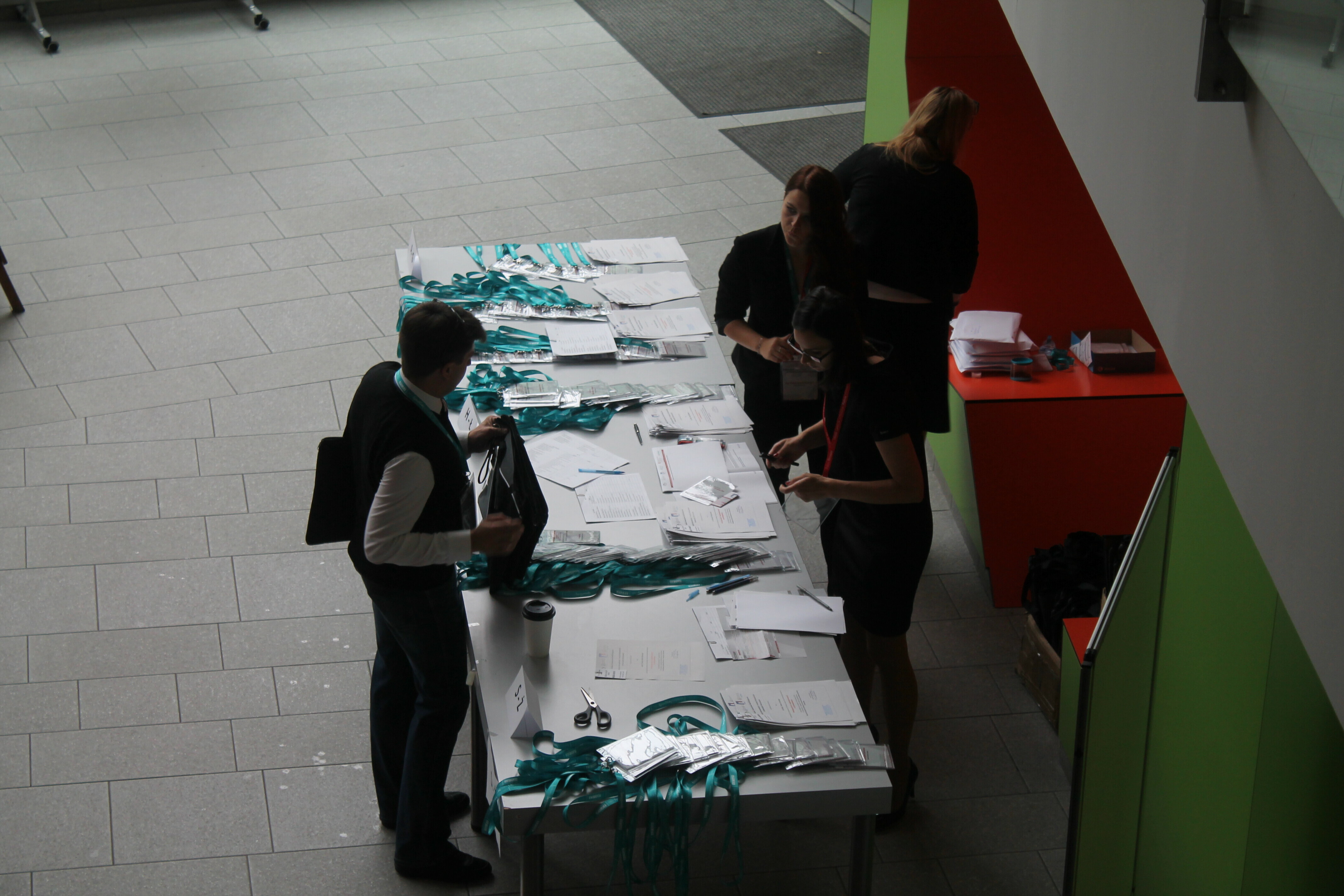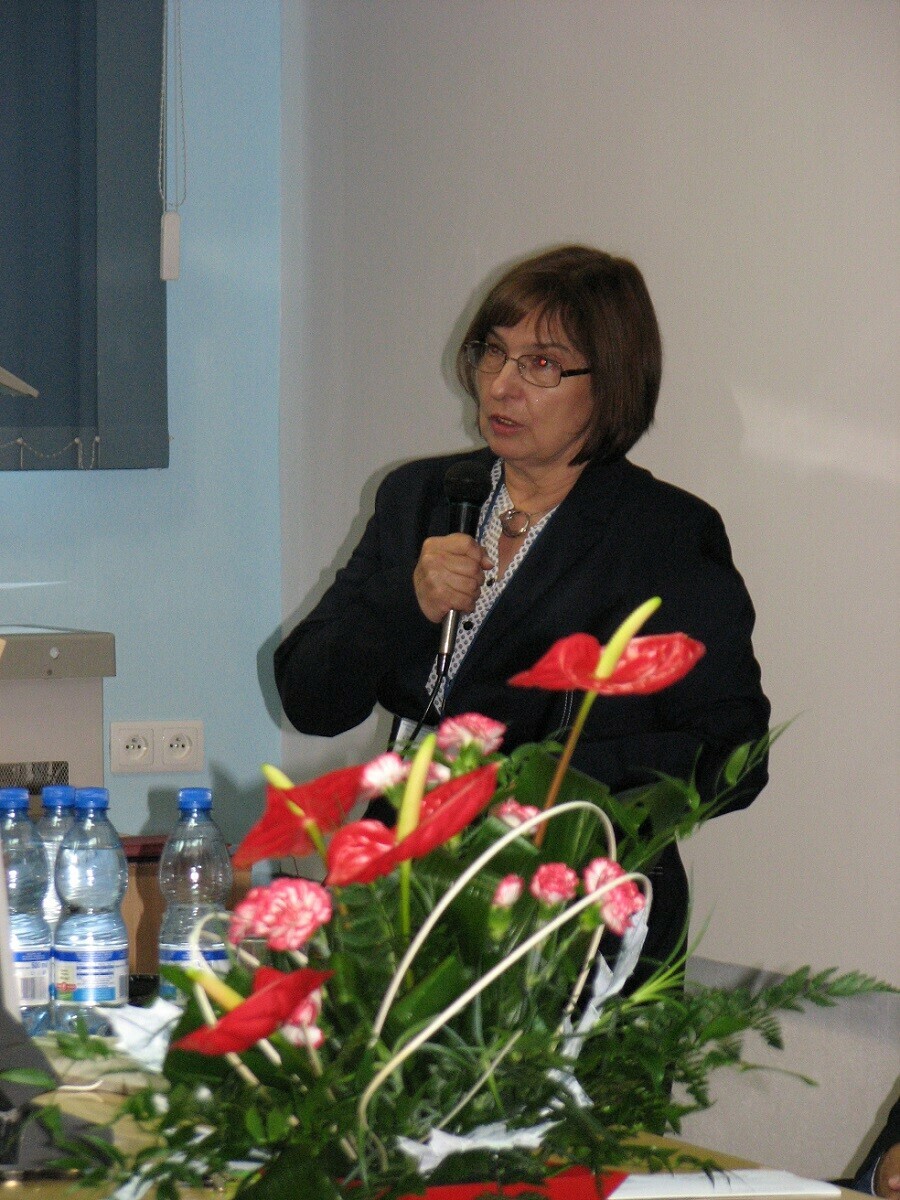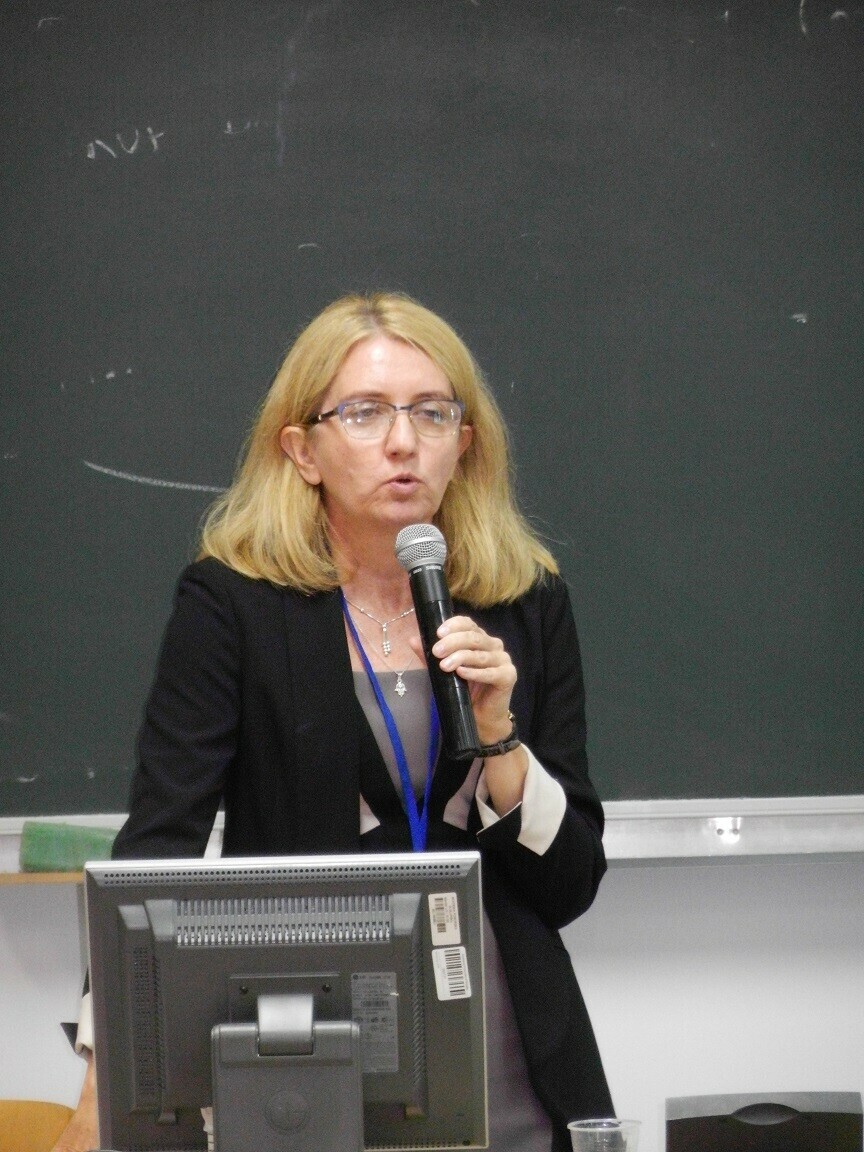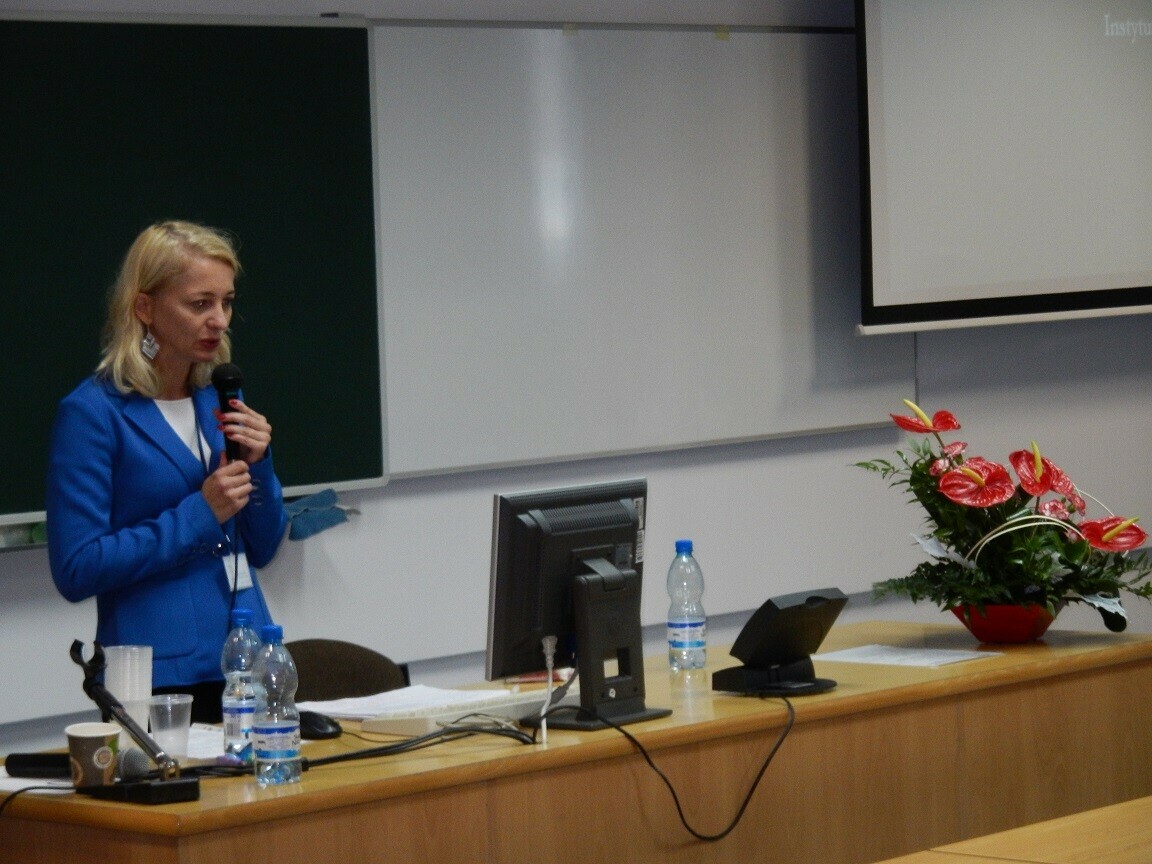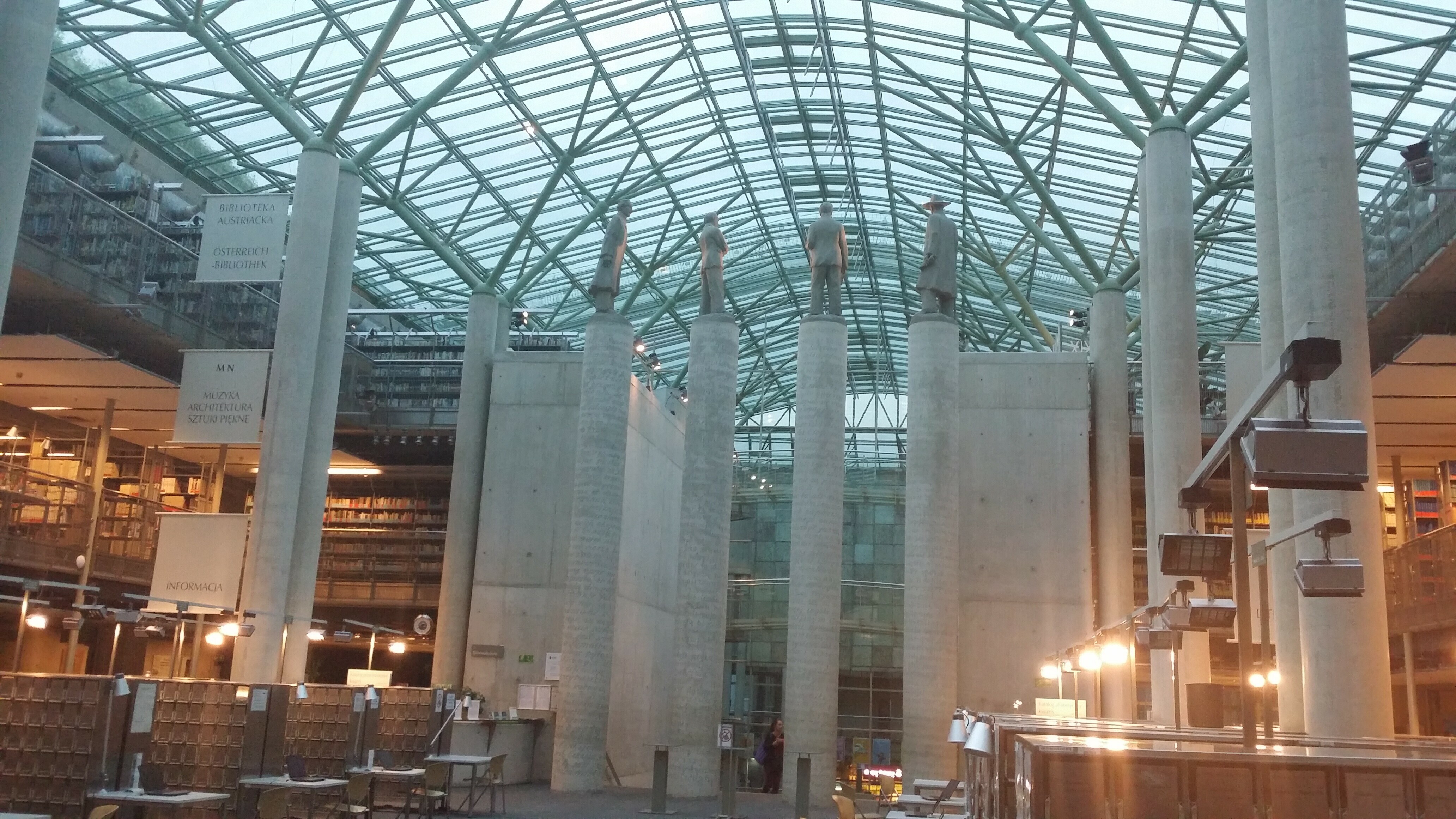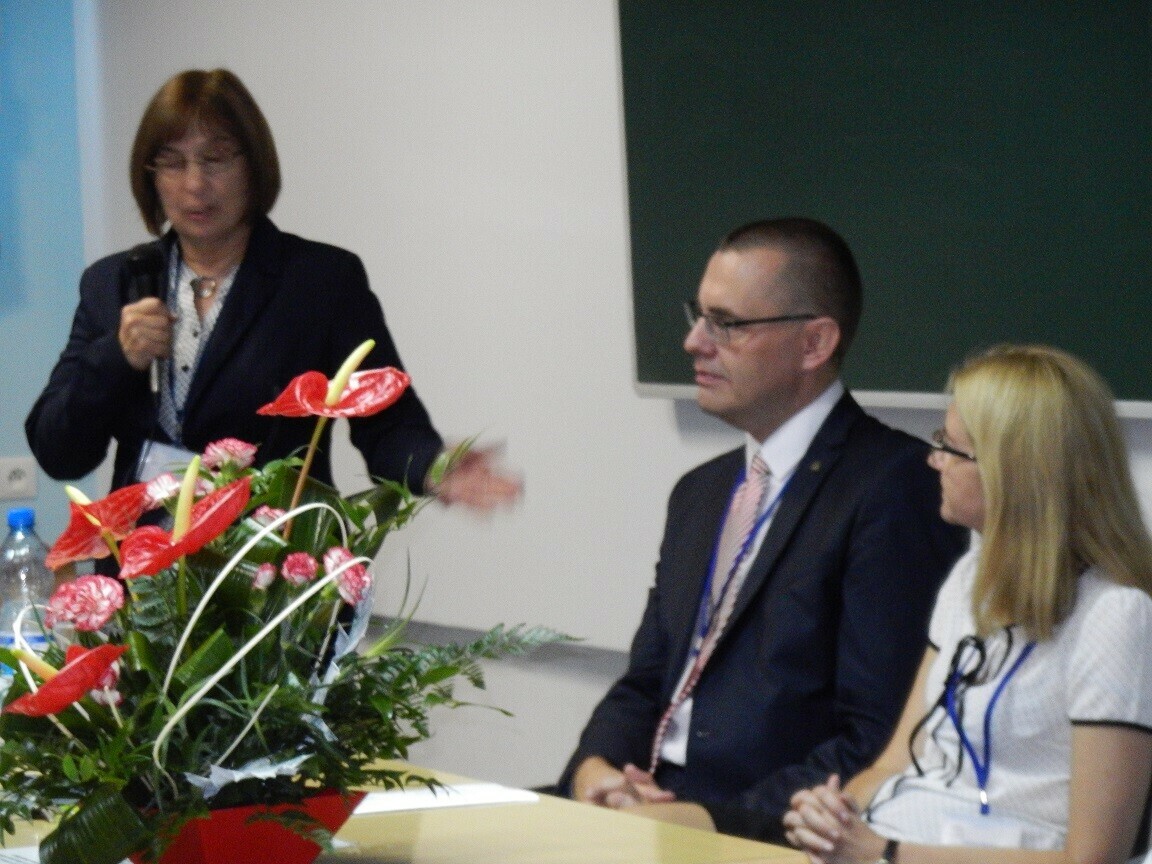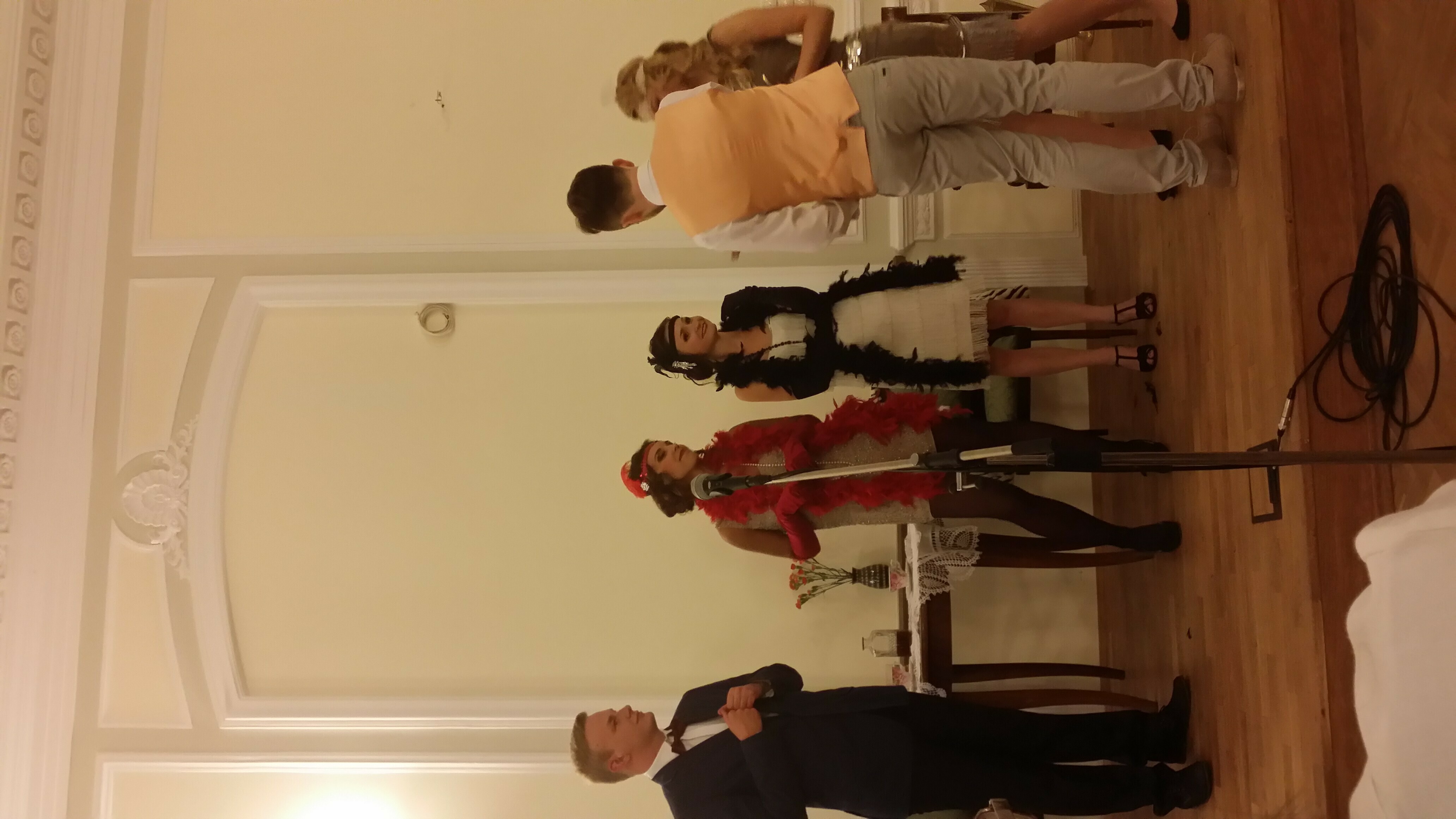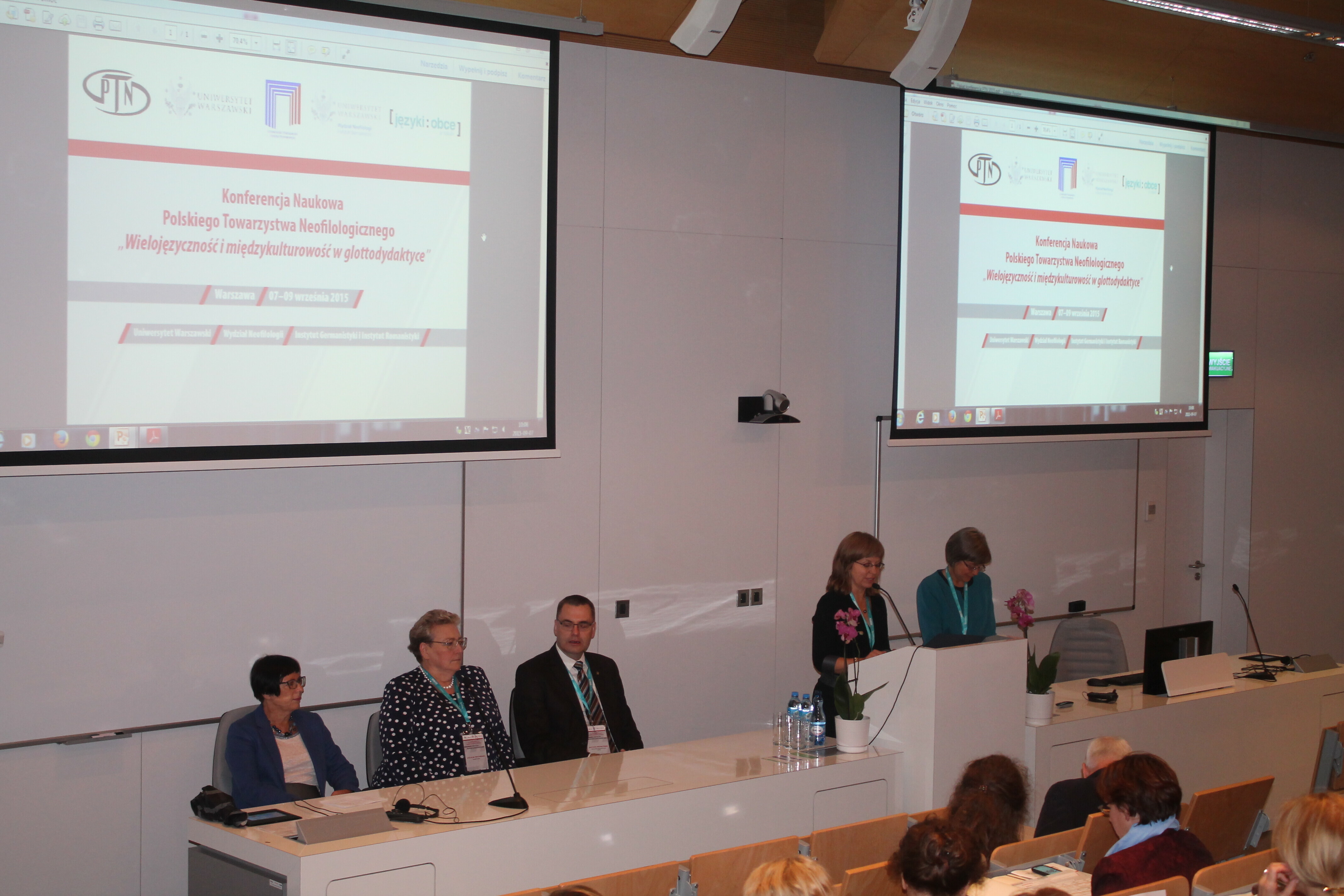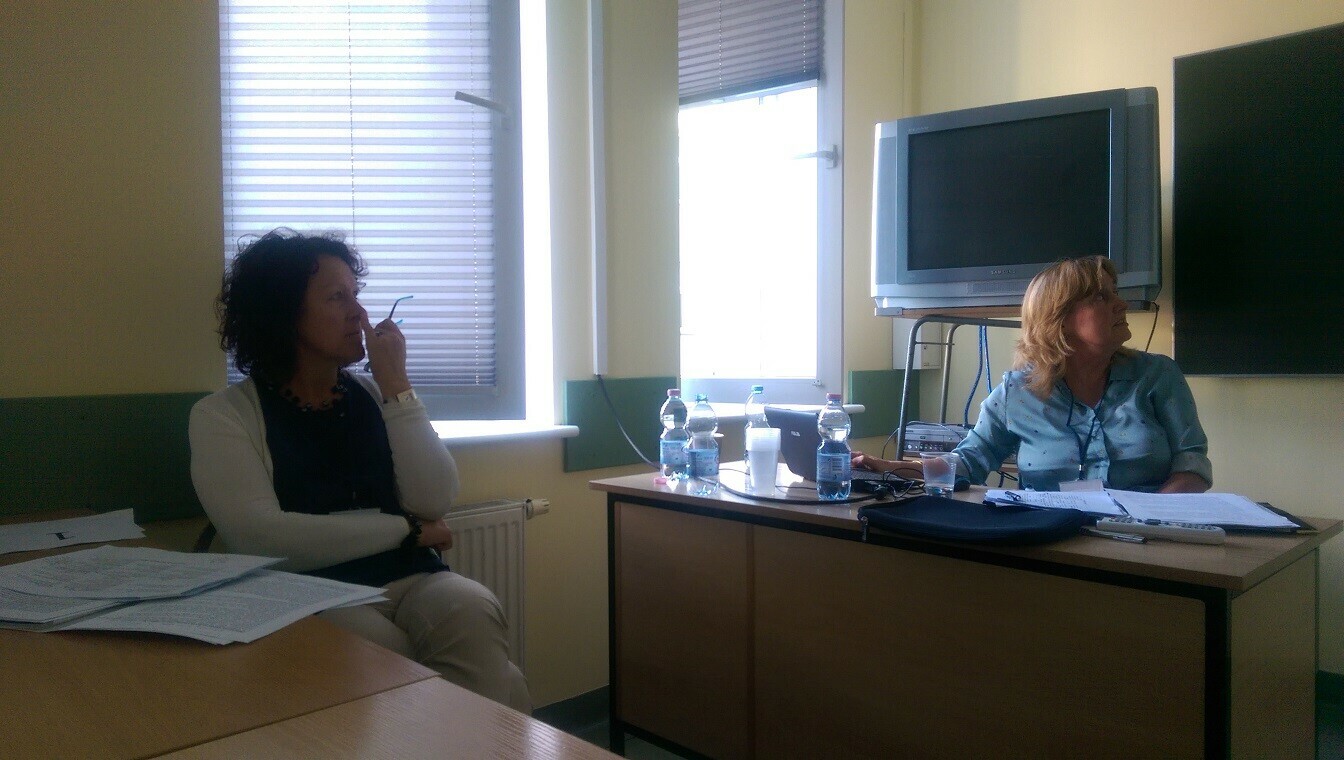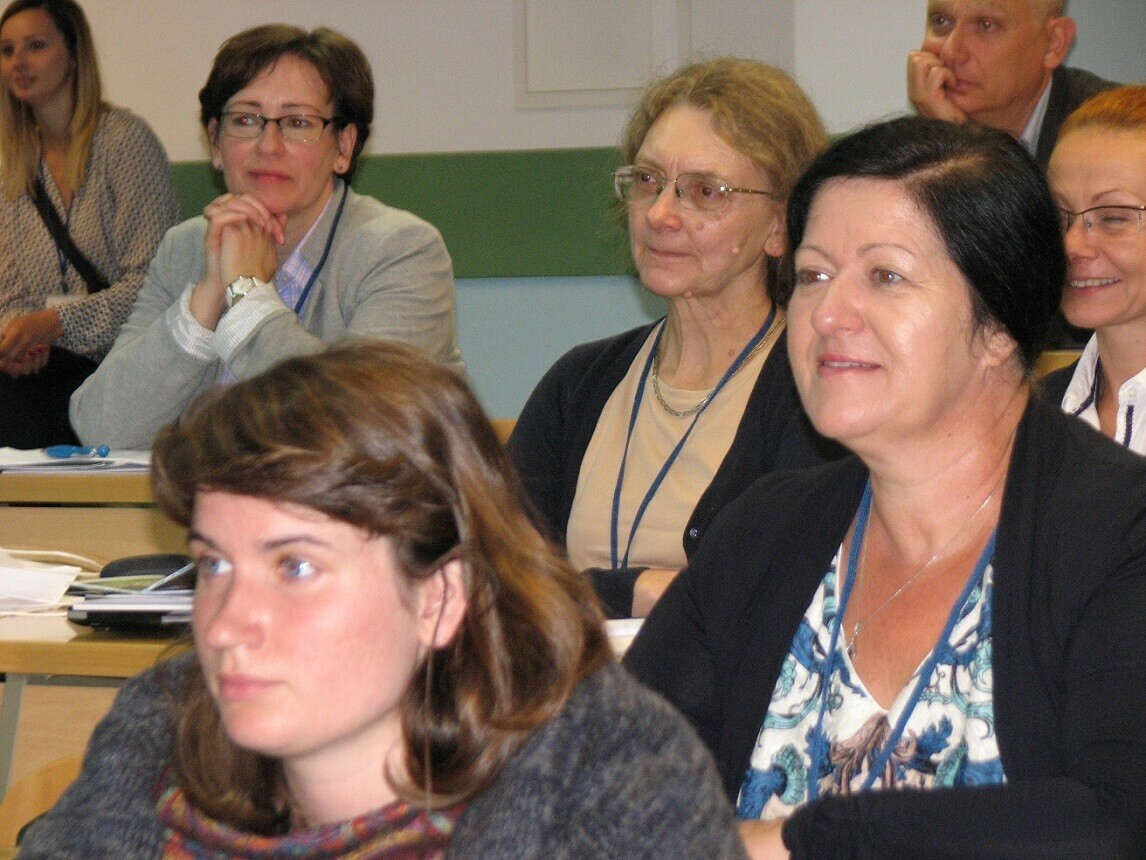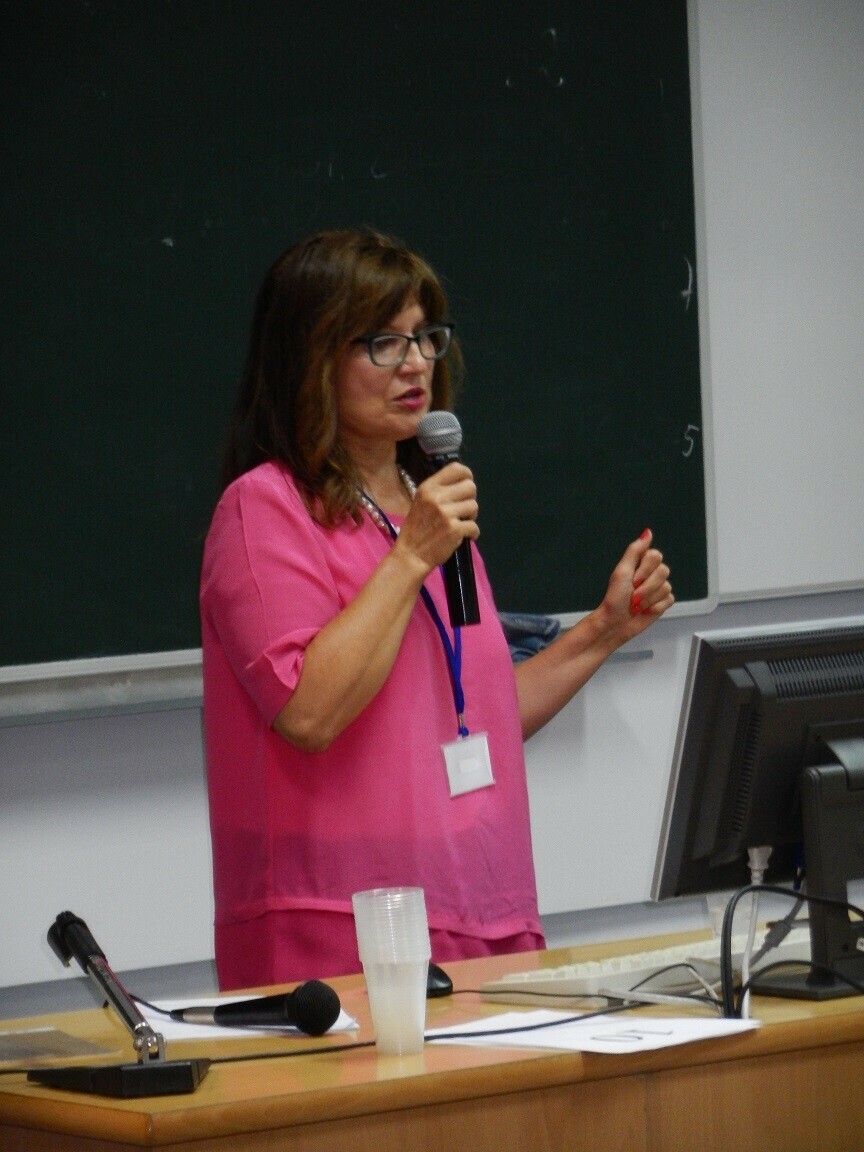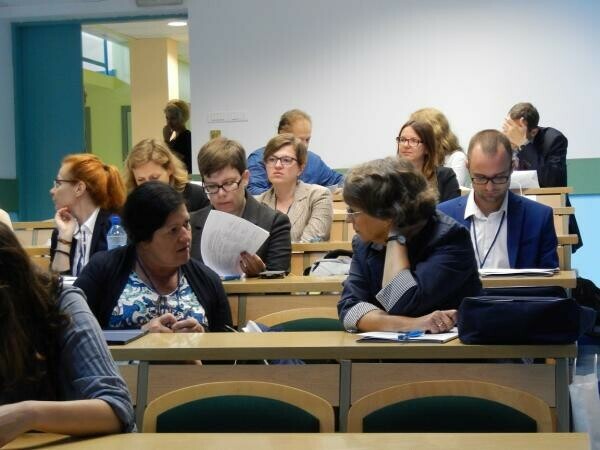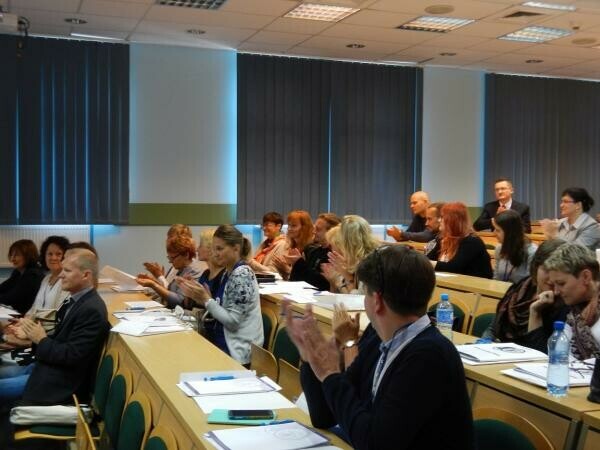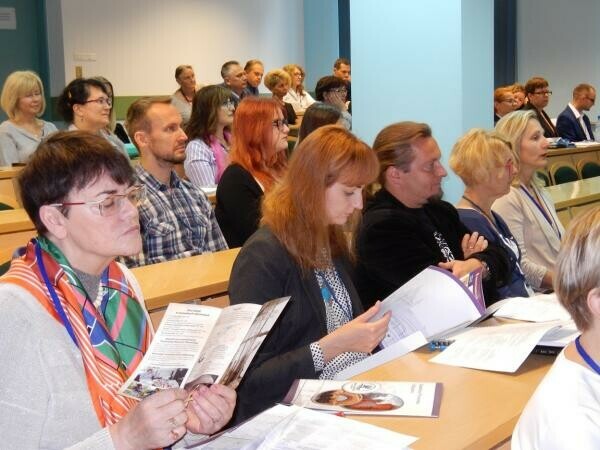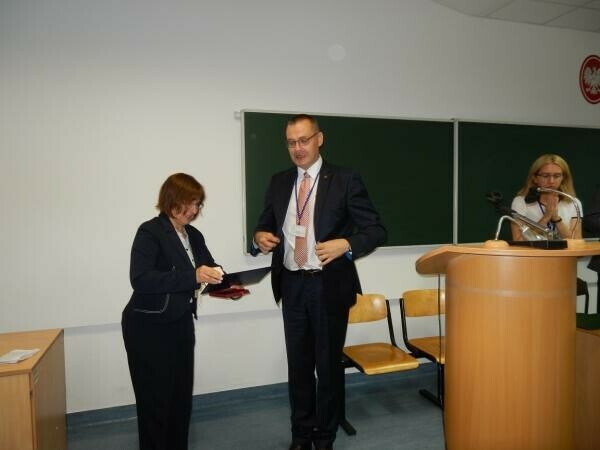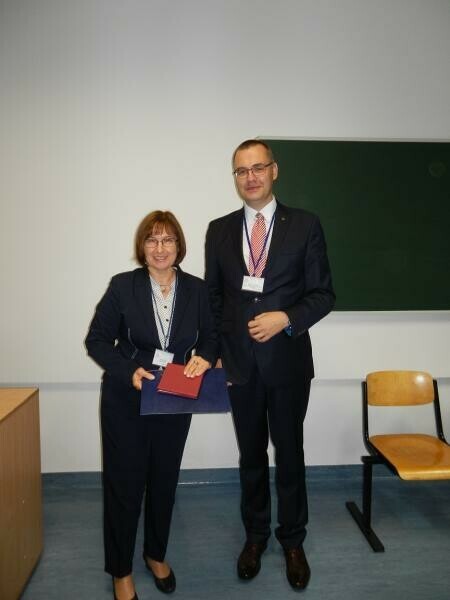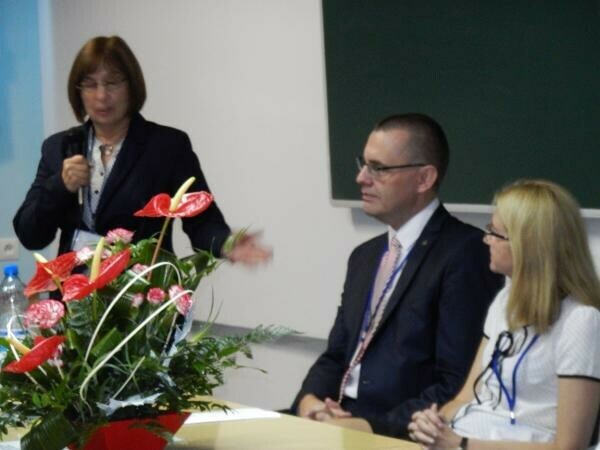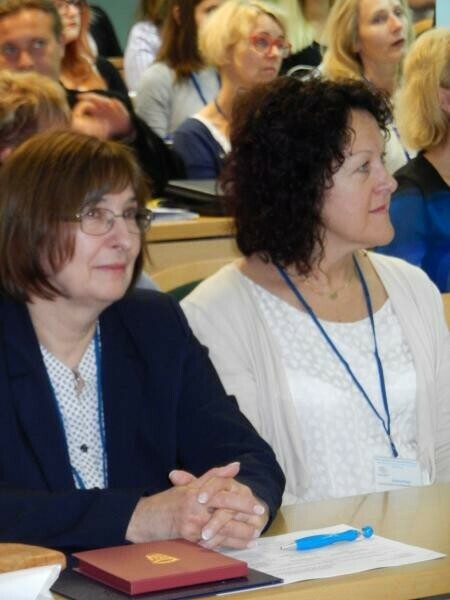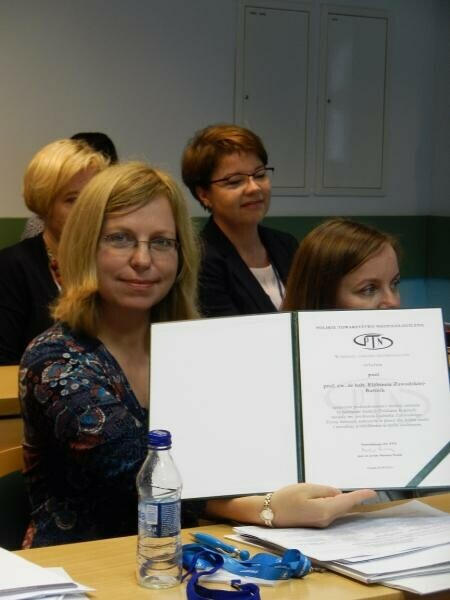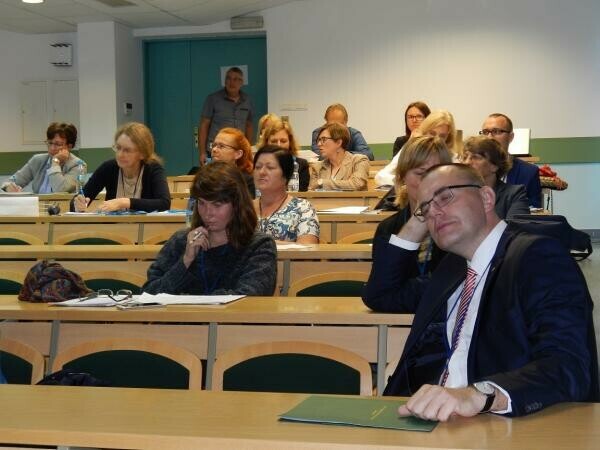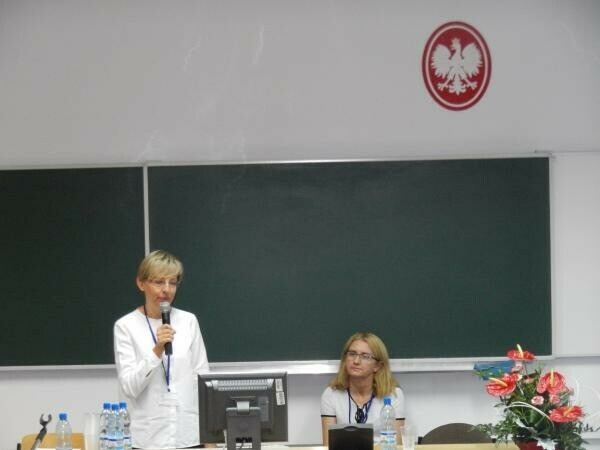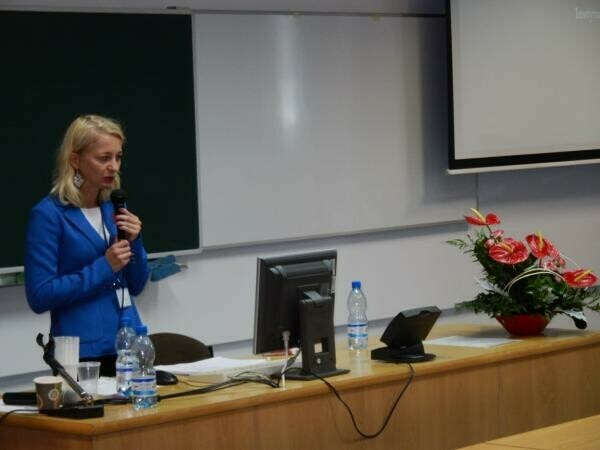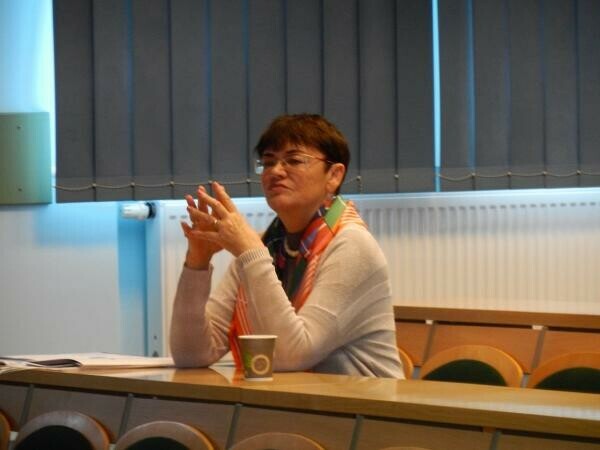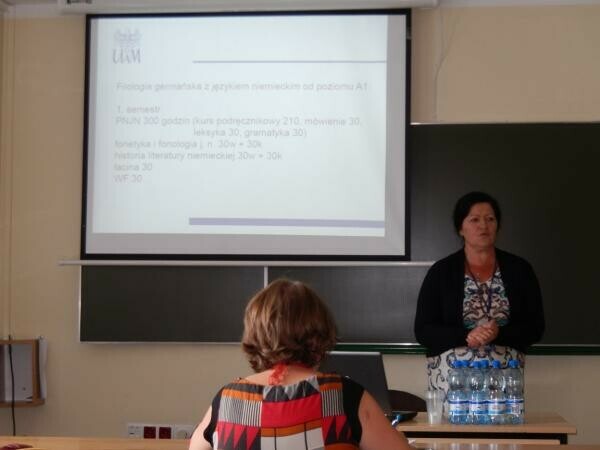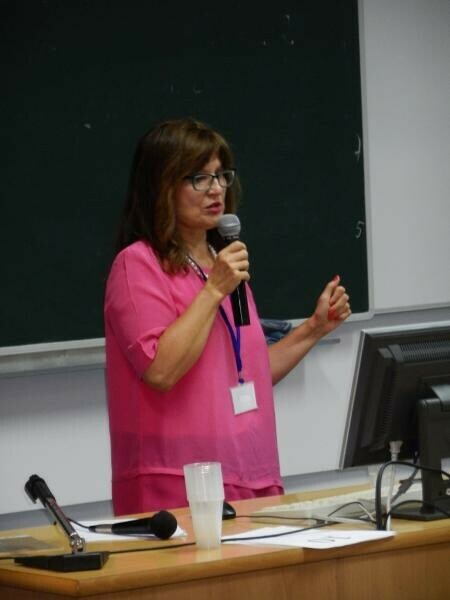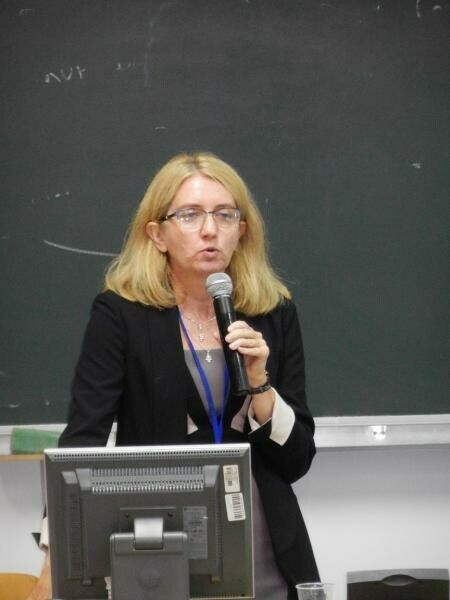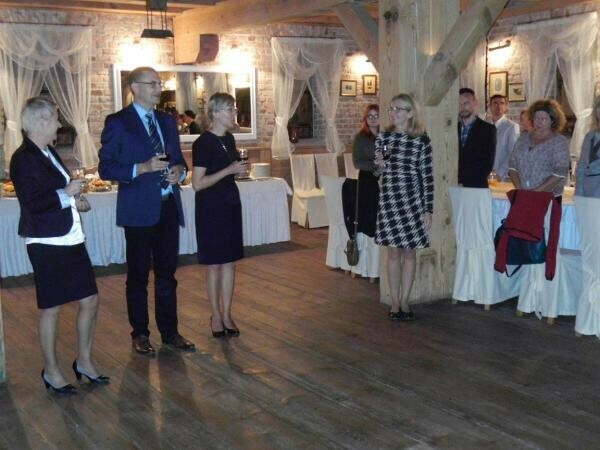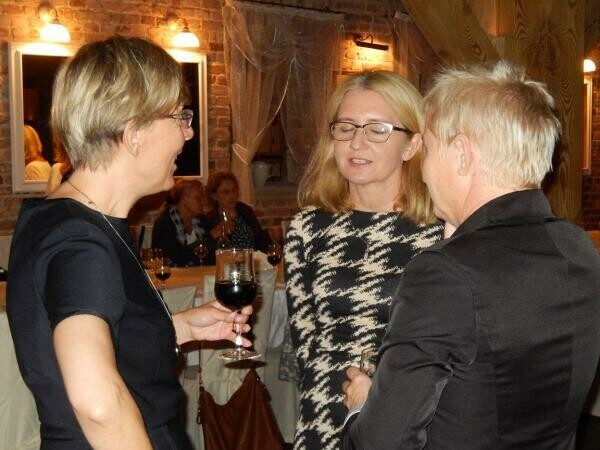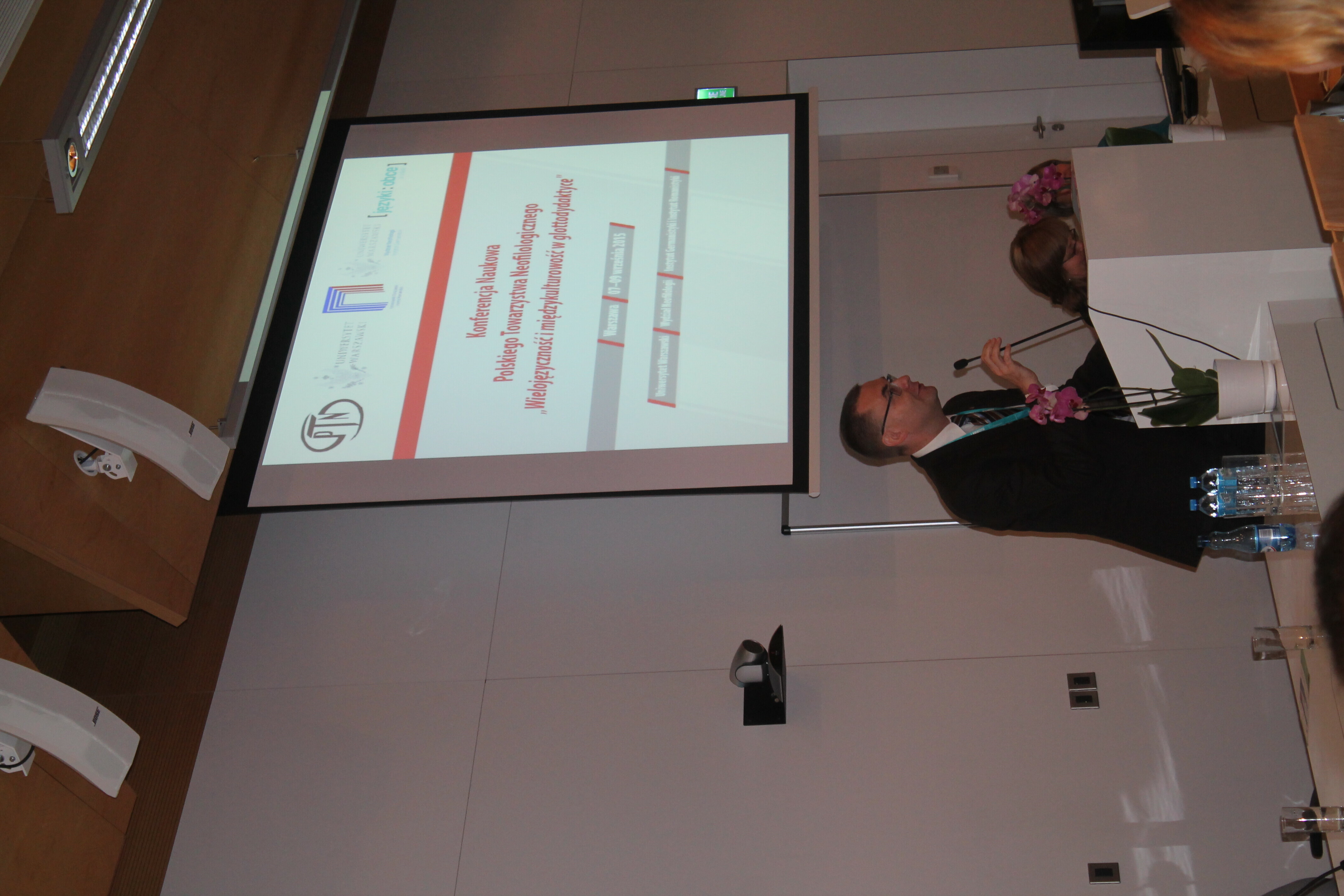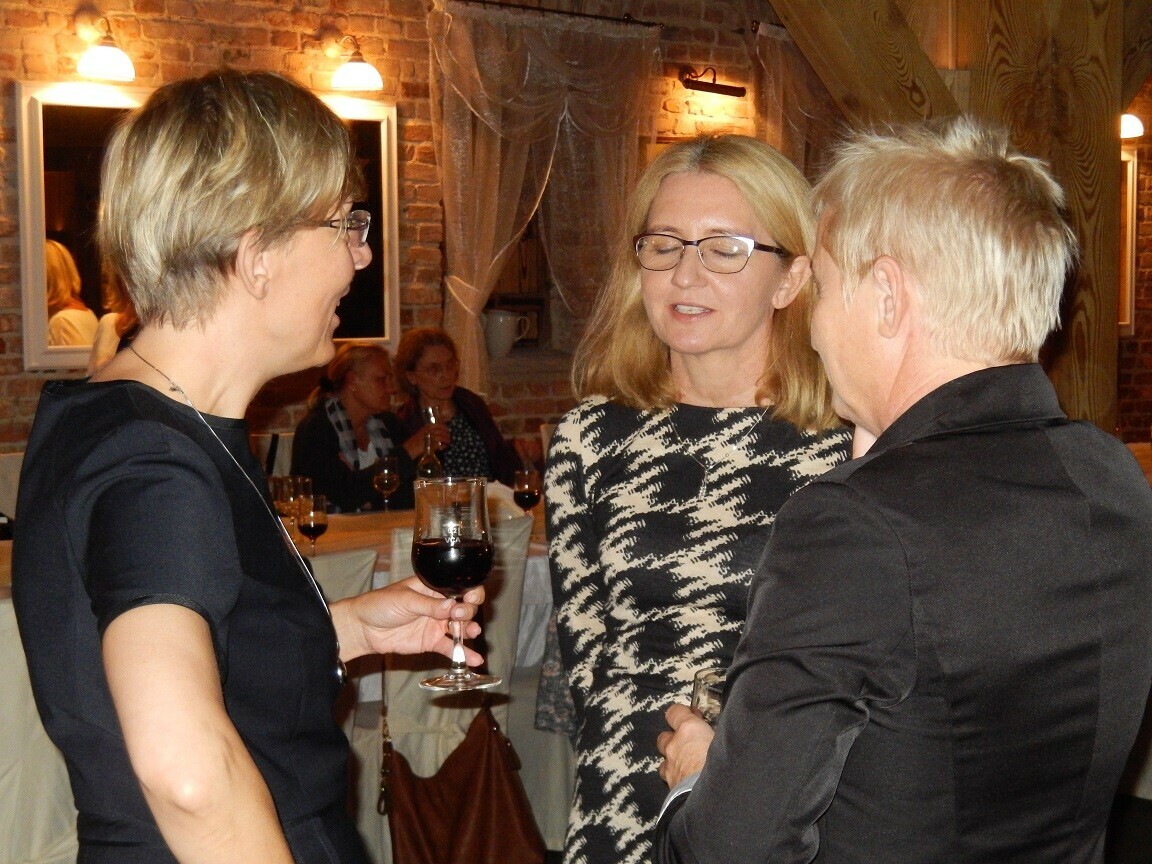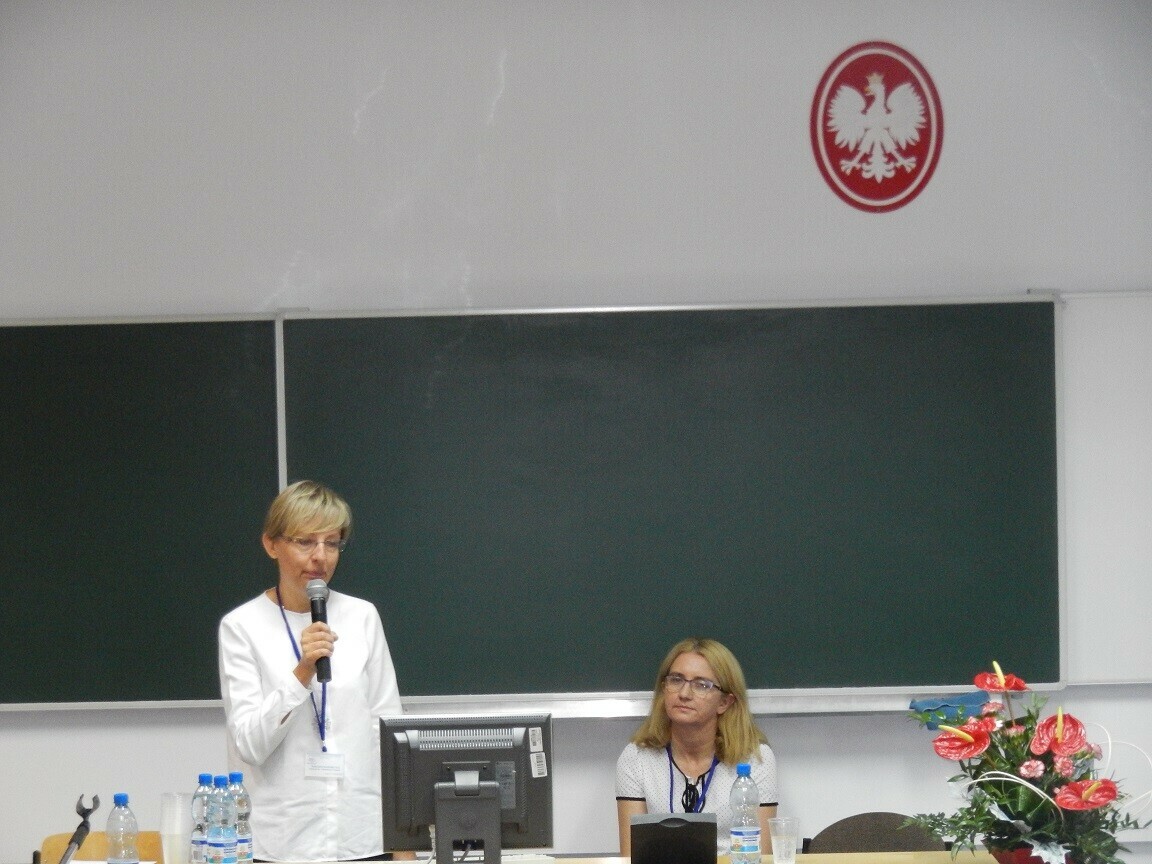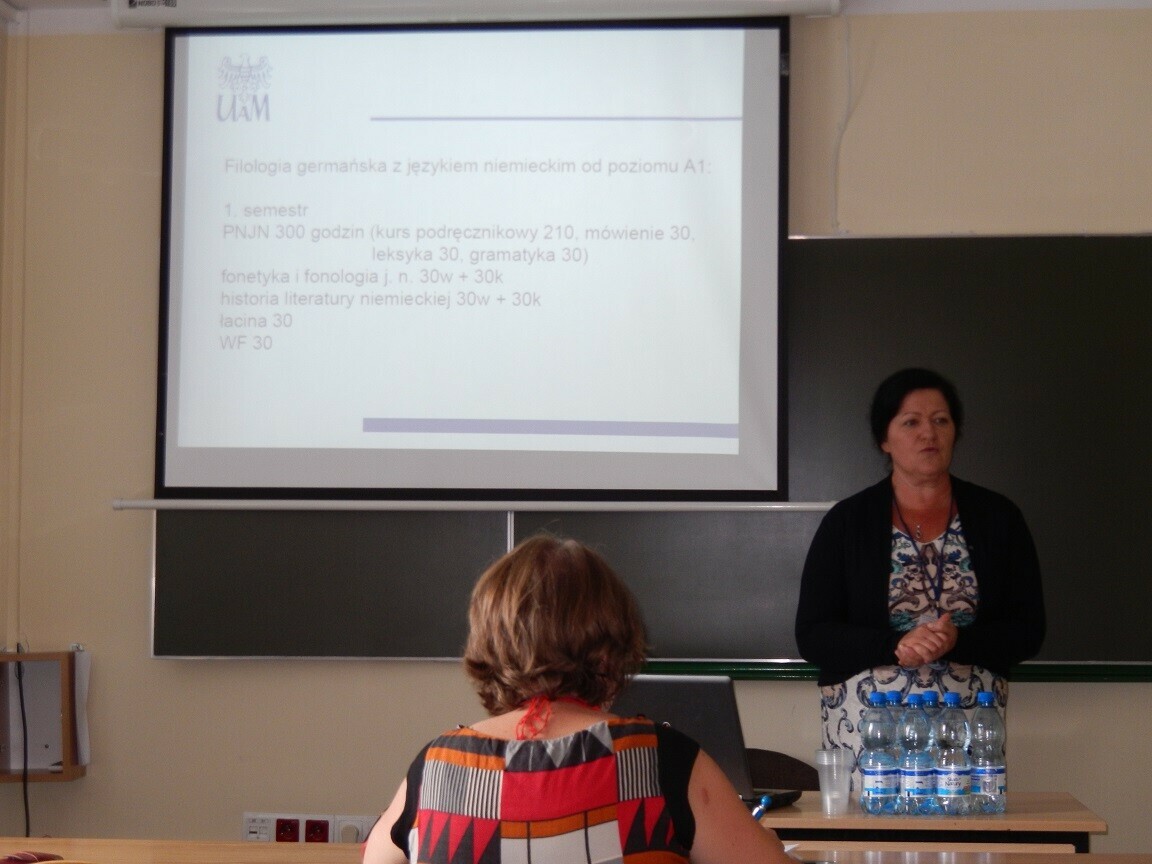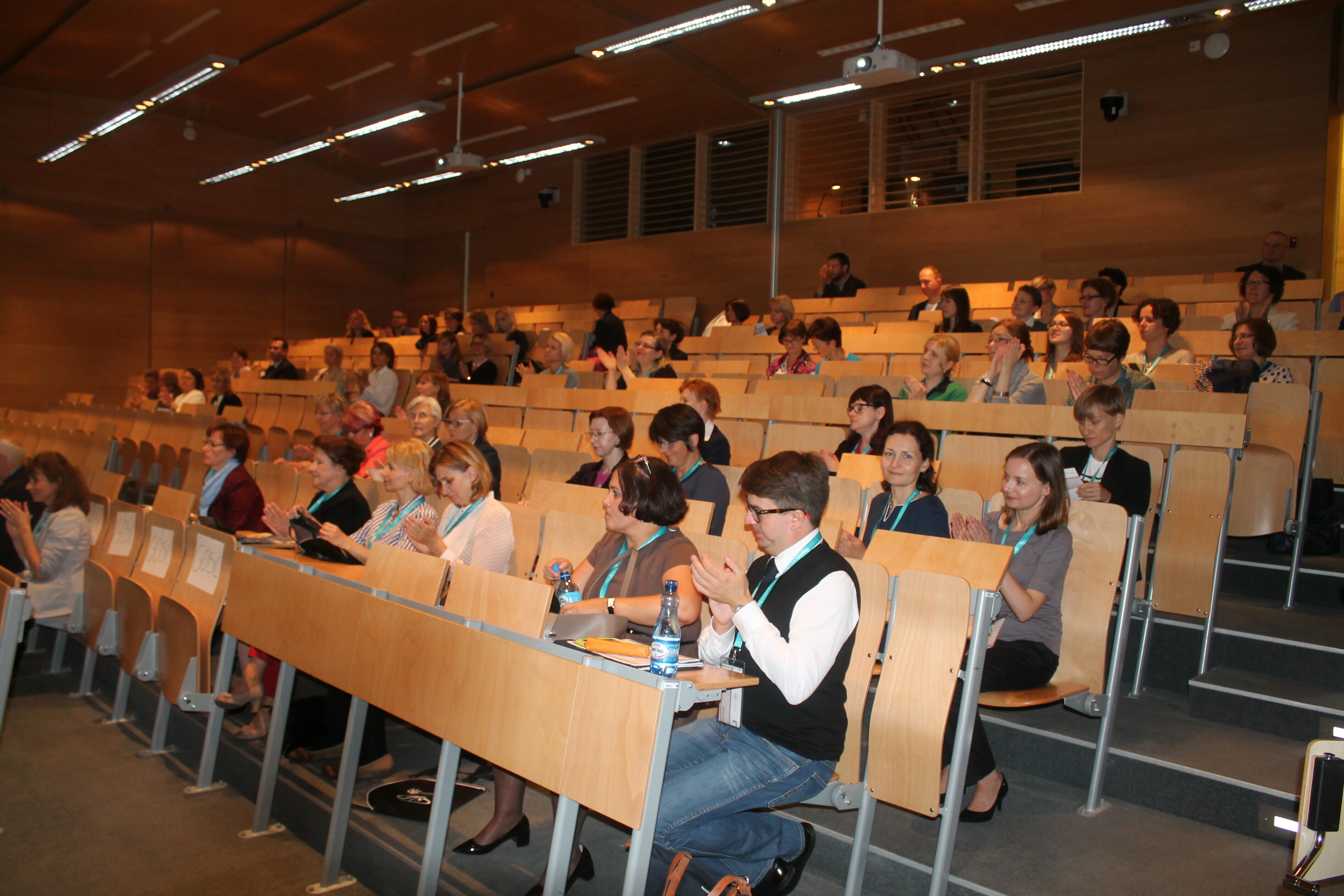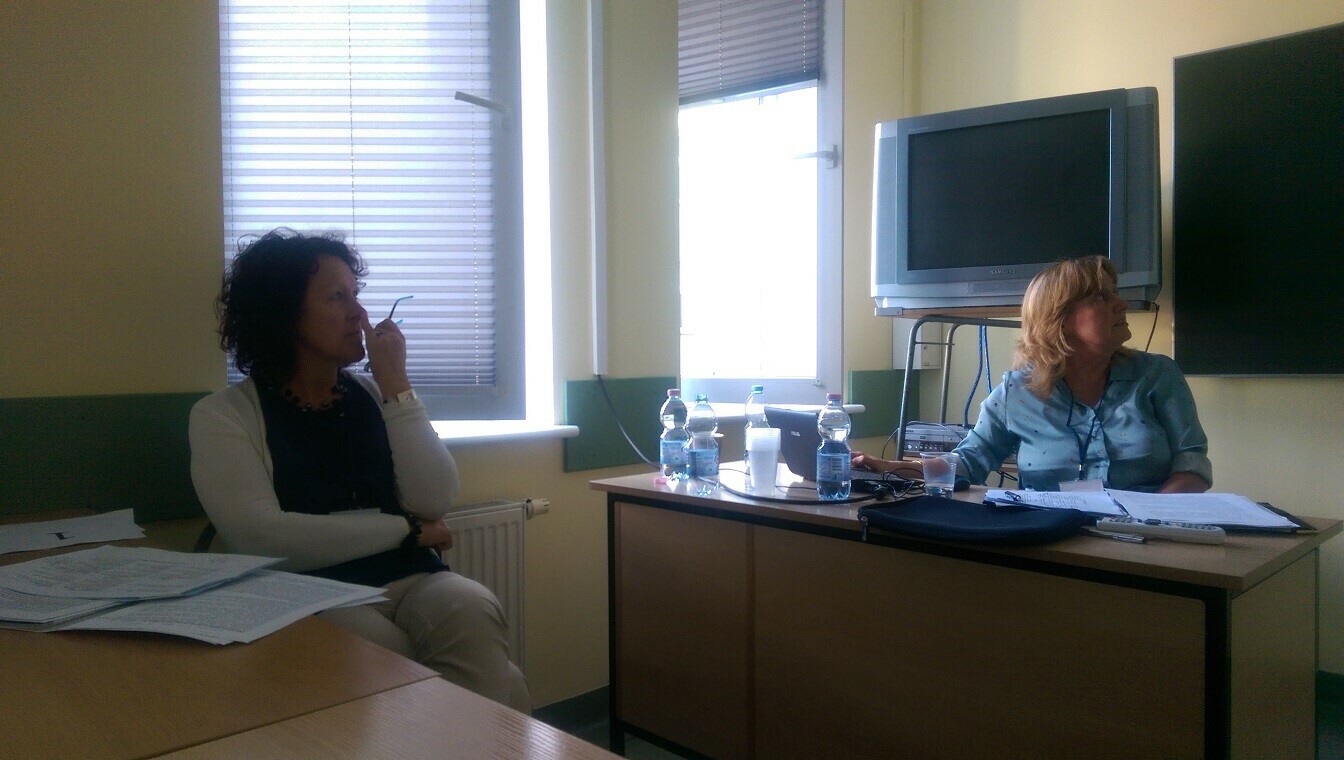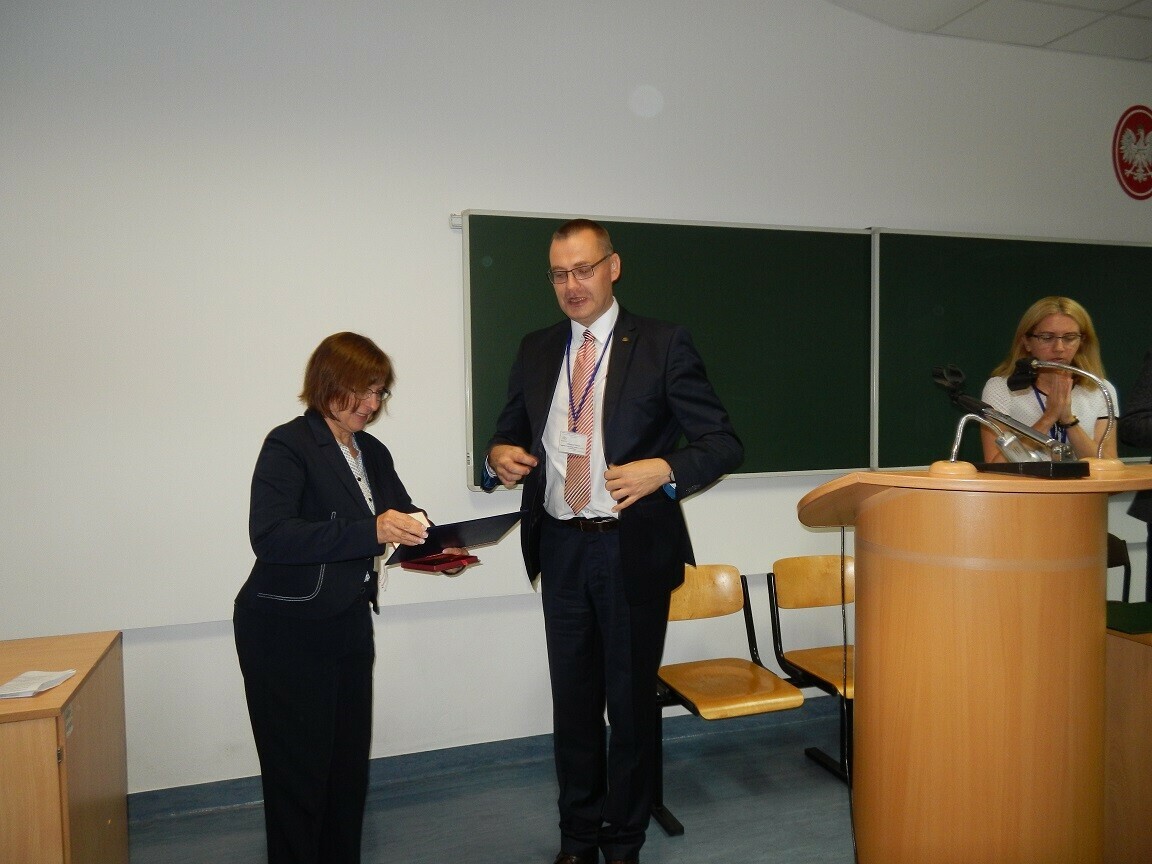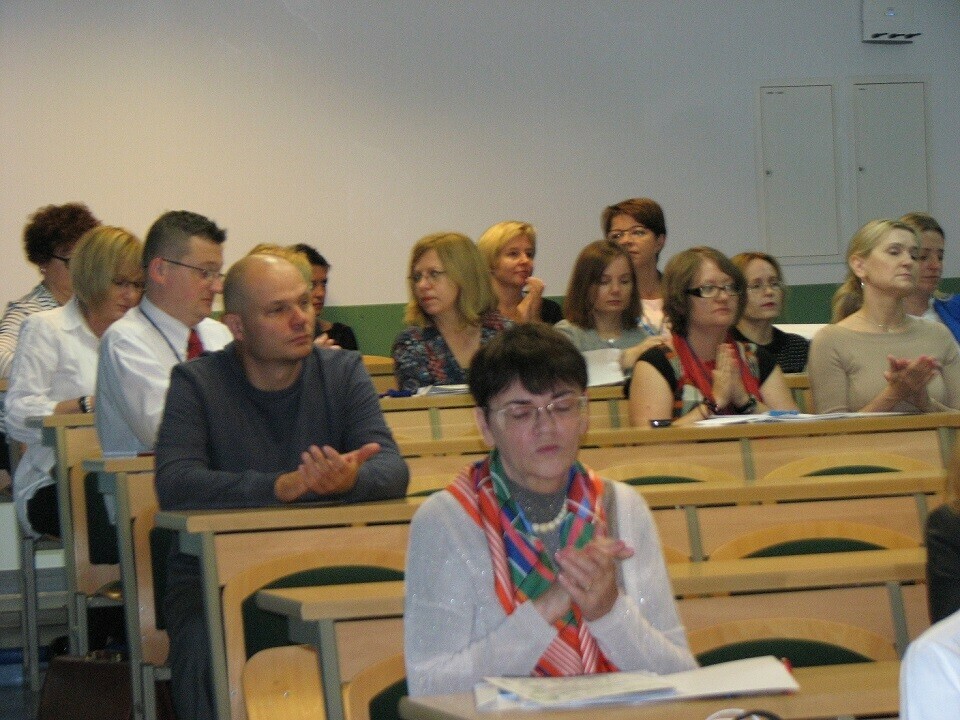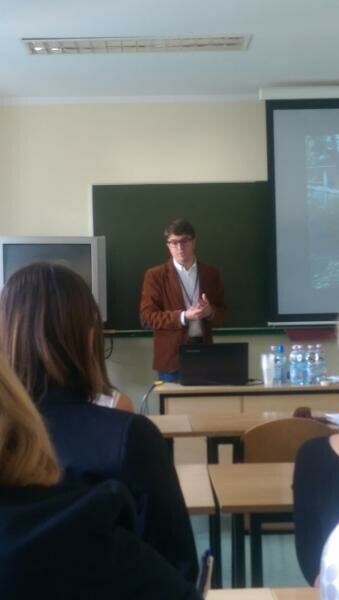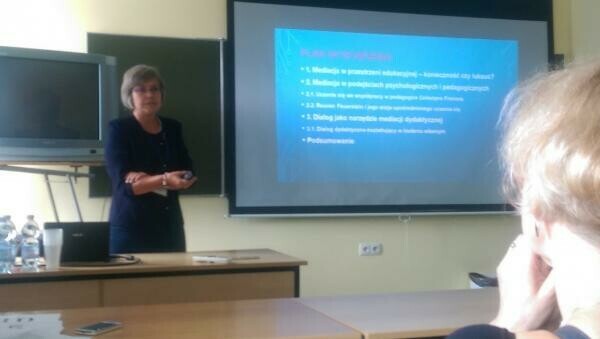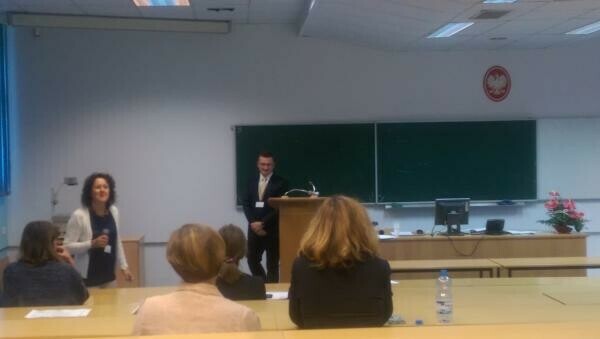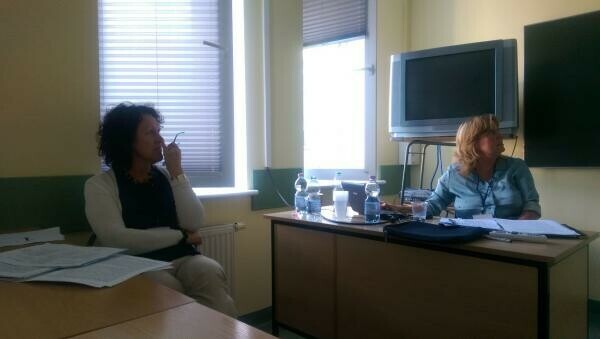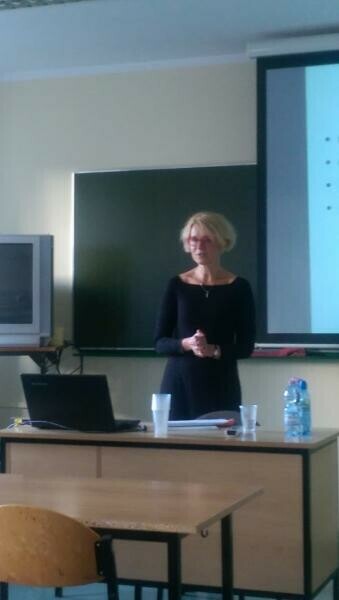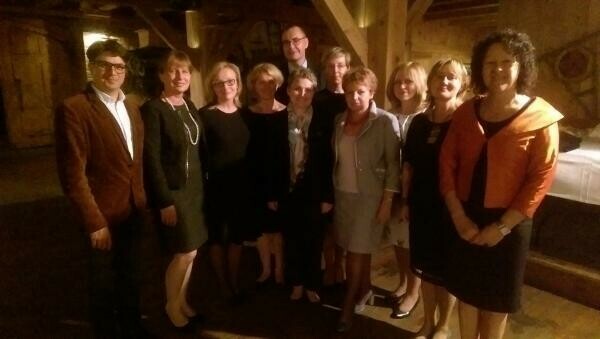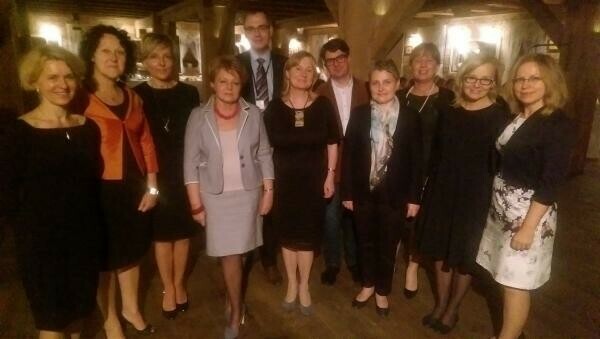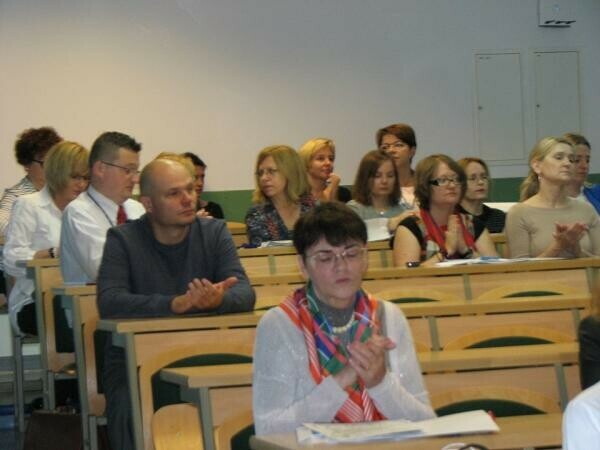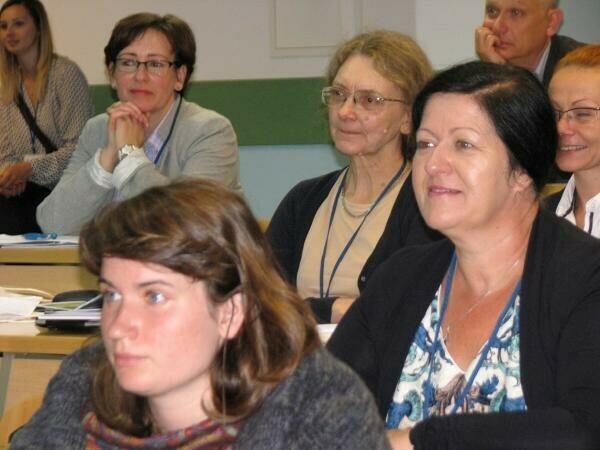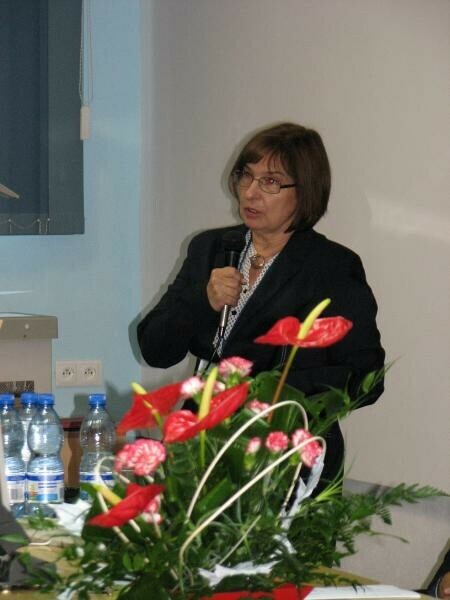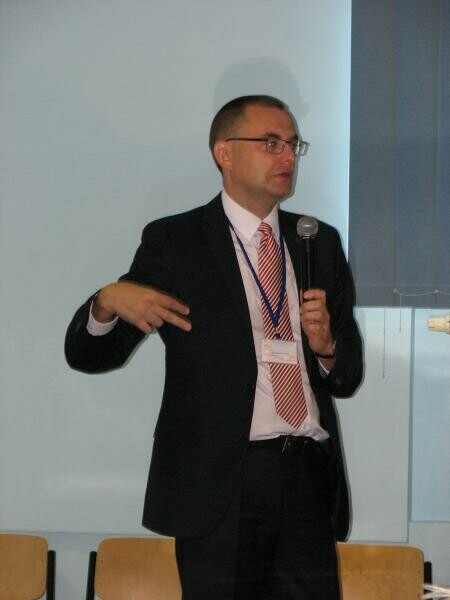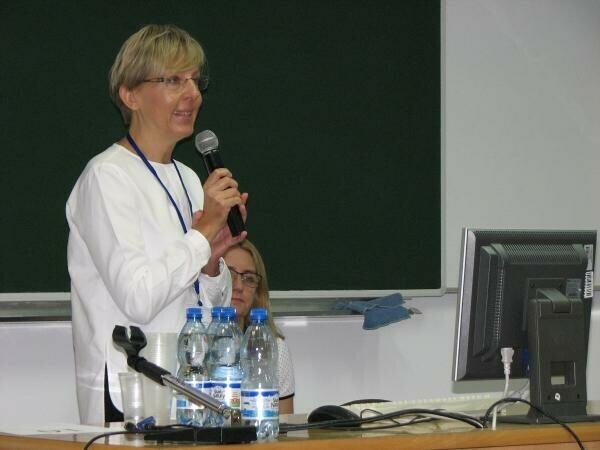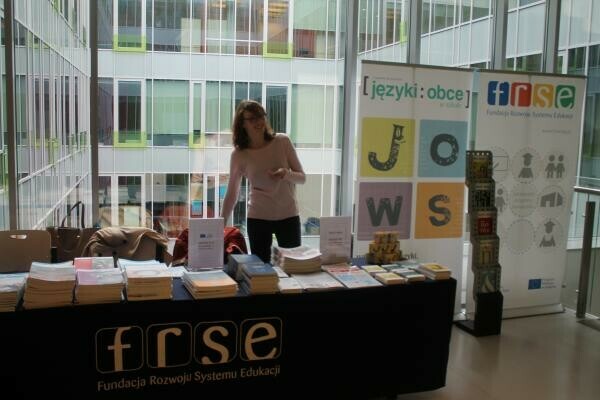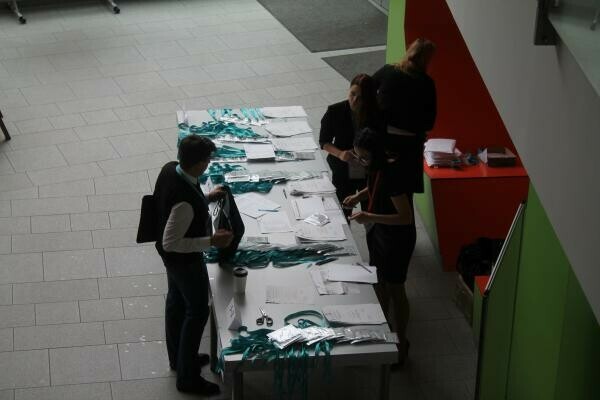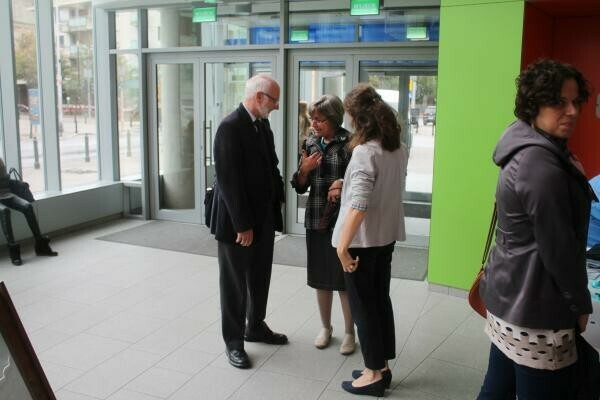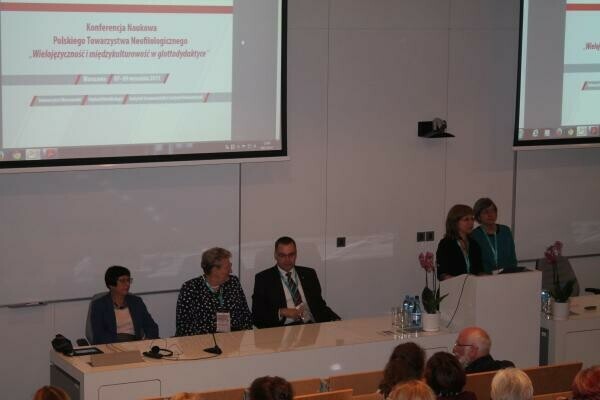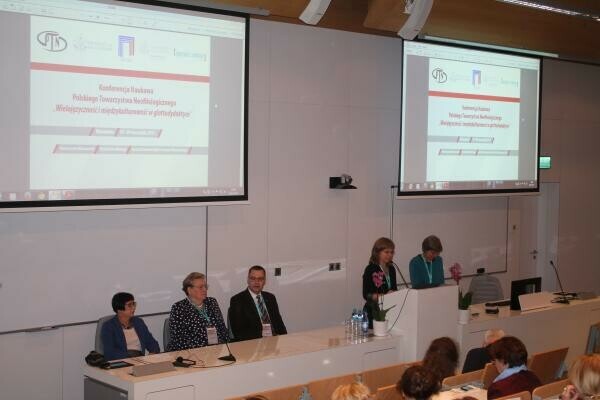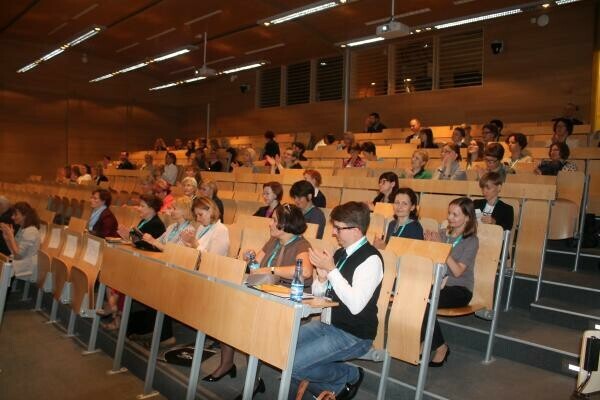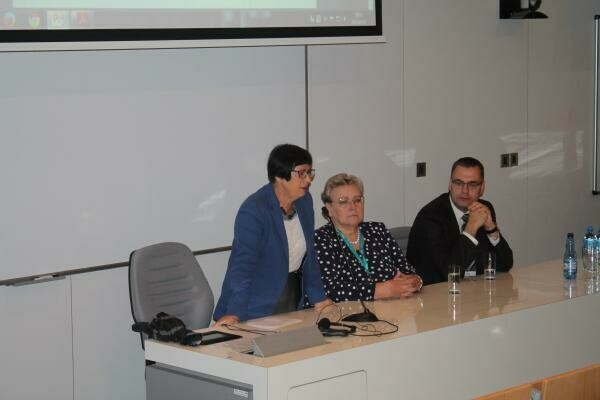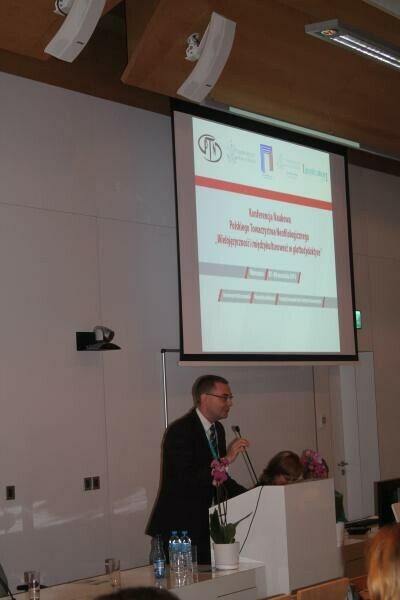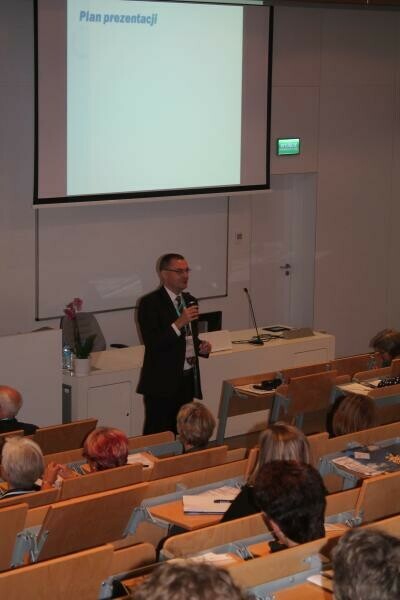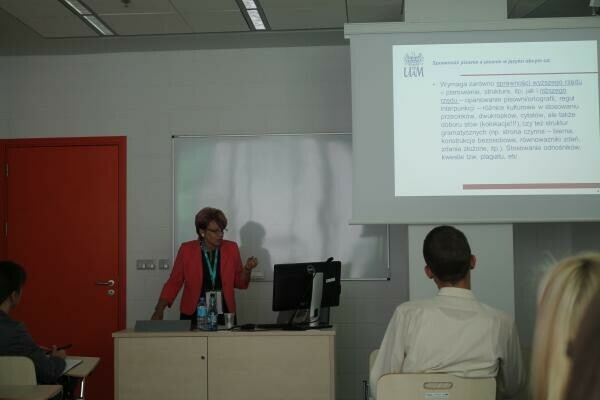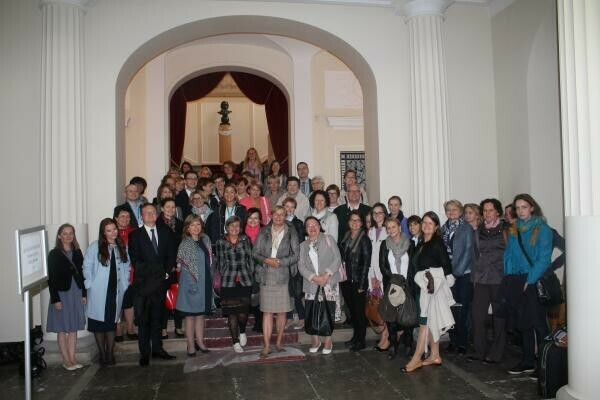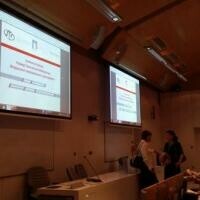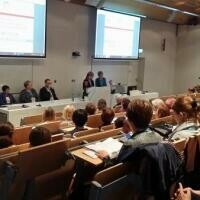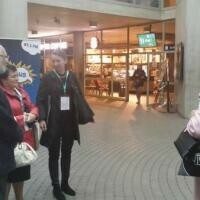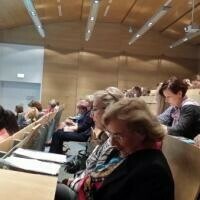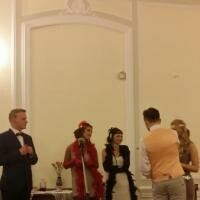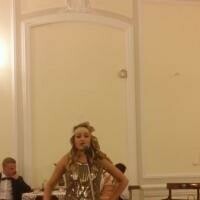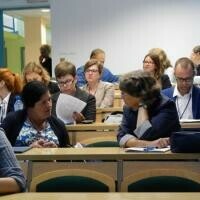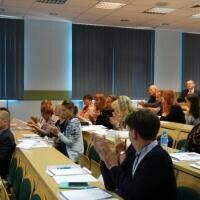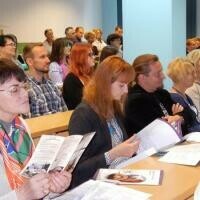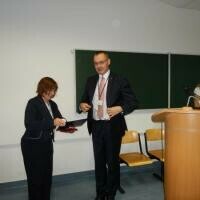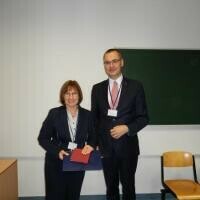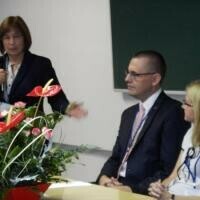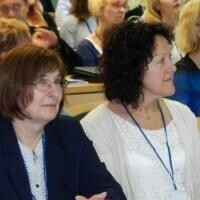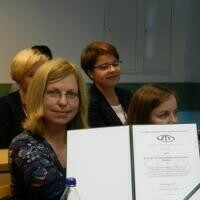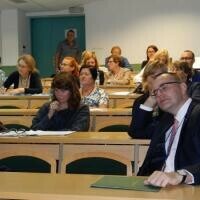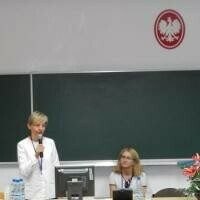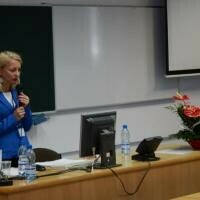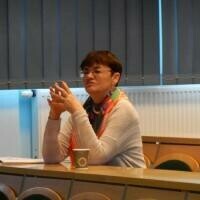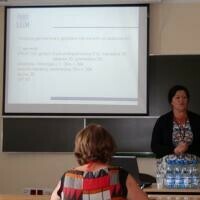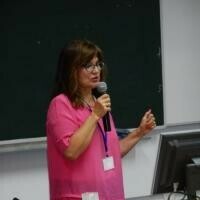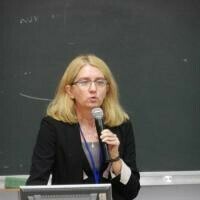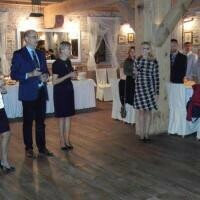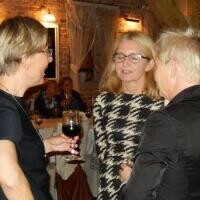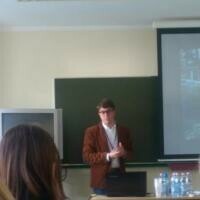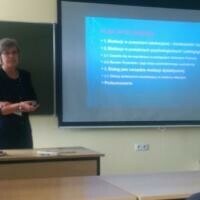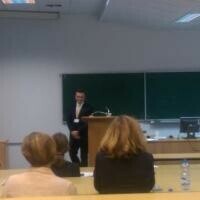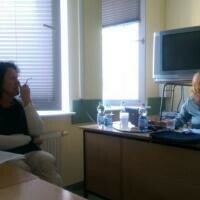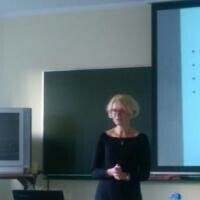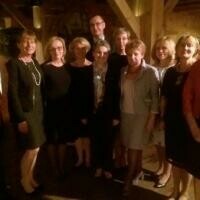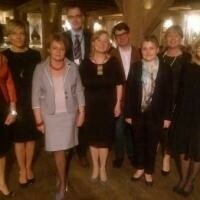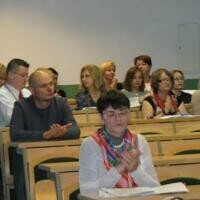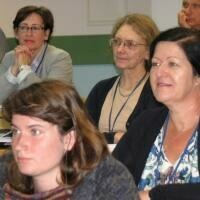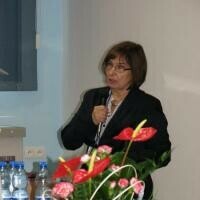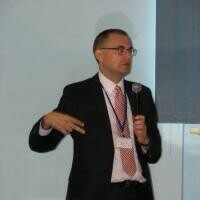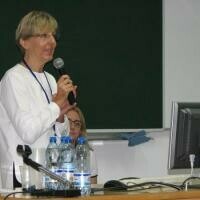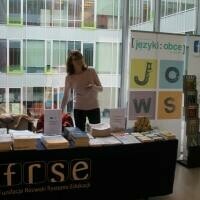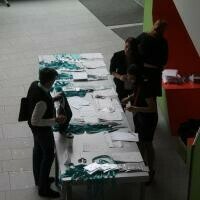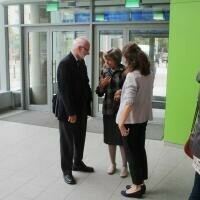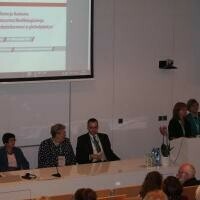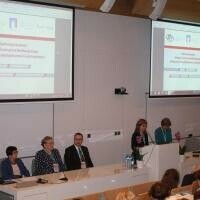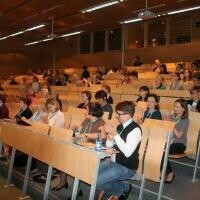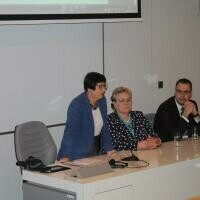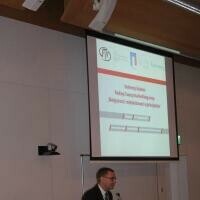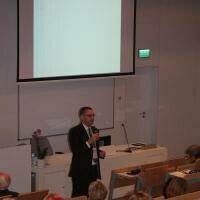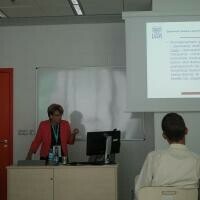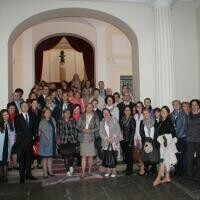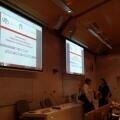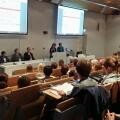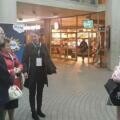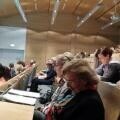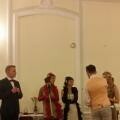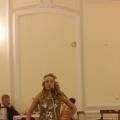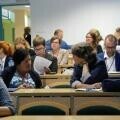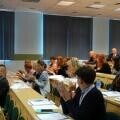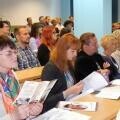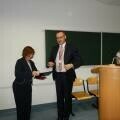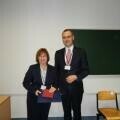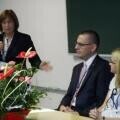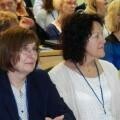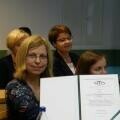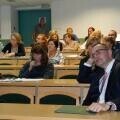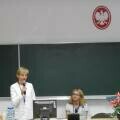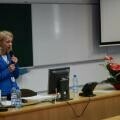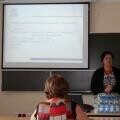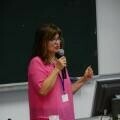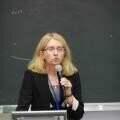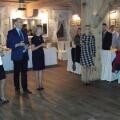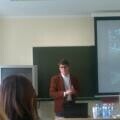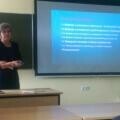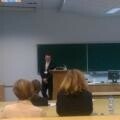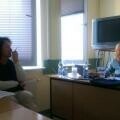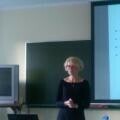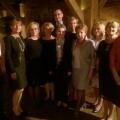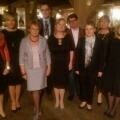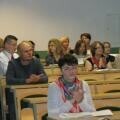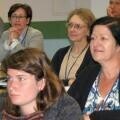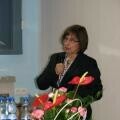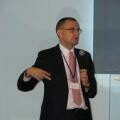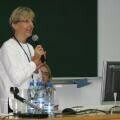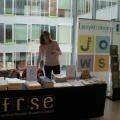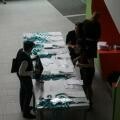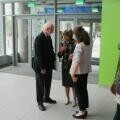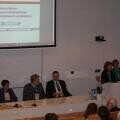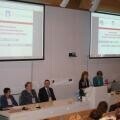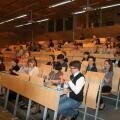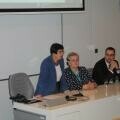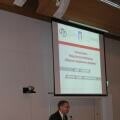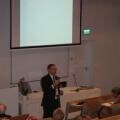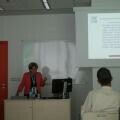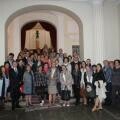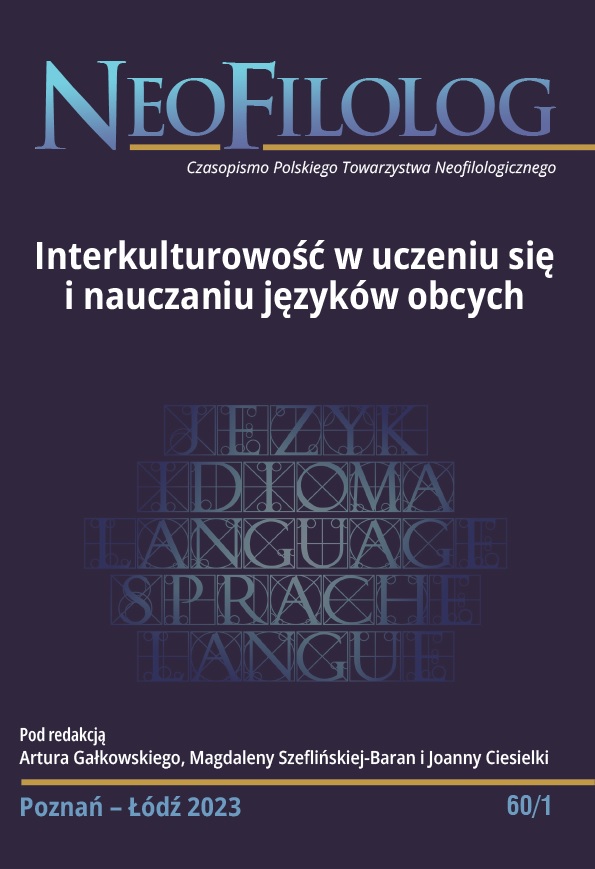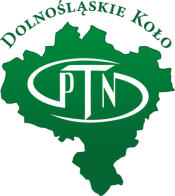IIe CONGRES INTERNATIONAL DES PROFESSEURS DE FRANÇAIS - DEUXIEME CIRCULAIRE
L’Institut de Philologie Romane de l’Université Catholique de Lublin Jean-Paul II
et
PROF-EUROPE Association des Professeurs de Français en Pologne
ont le plaisir de vous inviter au
IIe CONGRES INTERNATIONAL DES PROFESSEURS DE FRANÇAIS
Enseignement/apprentissage du français face aux défis de demain
qui se tiendra à l’Université Catholique de Lublin Jean-Paul II du 23 au 25 juin 2014.
Les travaux d’organisation du congrès battent leur plein…
1. Sessions plénières
Nous sommes heureux d’annoncer déjà la présence des invités éminents qui interviendront dans
le cadre des sessions plénières au sujet des problèmes-clés révélés par la thématique du congrès.
Les sujets des interventions aborderont les questions actuelles inhérentes à
l’enseignement/apprentissage du français qui demeurent au centre des préoccupations des
didacticiens contemporains et constituent, à la fois, des grands axes de réflexion de notre
congrès.
Parmi les conférenciers pléniers, nous avons la joie de confirmer la présence de :
Madame Eliane Damette, professeure à l’Université Jean Moulin Lyon 3,
Madame Iwona Janowska, professeure à l’Université Jagellon de Cracovie,
Madame Katarzyna Karpińska-Szaj, professeure à l’Université de Poznań,
Madame Jolanta Sujecka-Zając, professeure à l’Université de Varsovie,
Monsieur Jean-Claude Beacco, professeur à l’Université Sorbonne Nouvelle Paris 3,
Monsieur Mieczysław Gajos, professeur à l’Université de Łódź.
2. Ateliers spécialisés pour les enseignants de français
A part les conférences, nous avons aussi prévu des ateliers adressés aux enseignants de français.
Ces ateliers seront animés par des intervenants de la Pologne et de l’étranger qui ont aussi
confirmé leur participation active au congrès. Les sujets des formations proposées dans le cadre
des ateliers concerneront, entre autres, l’évaluation des compétences, l’enseignement du français
de spécialité, la créativité dans l’enseignement/apprentissage du français…
3. Conférences
Nous attendons encore les propositions des communications en français qui s’inscrivent dans les
axes de réflexion proposés, à savoir :
a) Enseignement du français au public de tout âge (enfants, adolescents, adultes, seniors) et
dans différentes situations éducatives (école primaire et secondaire, université, milieu de
travail, …).
b) Enseignement bilingue.
c) Enseignement/apprentissage du français sur objectif spécifique.
d) Nouvelles tendances dans l’enseignement/apprentissage du français : méthodes et
approches, techniques, outils et supports, documents.
e) Evaluation et certification des compétences en français.
f) Formation des enseignants de français général et professionnel.
g) Programmes nationaux de l’enseignement du français et réalité scolaire.
Le français est la langue officielle du congrès.
L’appel à communication est ouvert jusqu’au 28 février 2014.
4. Exposants
Nous sommes heureux de confirmer la présence de maisons d’éditions, entre autres Didier, CLE
International, Nowela, Hachette. Pendant le congrès, elles vous présenteront leur offre
éducative en matière de didactique des langues et des cultures, vous aideront de leurs conseils
professionnels et proposeront des livres à des prix intéressants.
5. Lieu du Congrès
Le congrès aura lieu dans les bâtiments de l’Université Catholique de Lublin Jean-Paul II (Aleje
Racławickie 14). La conférence d’ouverture et les sessions plénières se dérouleront dans
l’Amphithéâtre Cardinal Wyszyński dans le bâtiment principal de l’université (premier étage).
Les autres sessions seront animées dans les salles de cours dont les numéros exacts vous seront
communiqués ultérieurement.
6. Les frais de participation
Les frais de participation s’élèvent à :
- 350 zł (85 €) pour les non-adhérents à la FIPF (et PROF-EUROPE),
- 300 zł (75 €) pour les membres des associations affiliées à la FIPF (y compris PROFEUROPE),
et comprennent la participation au congrès, les documents de travail, les pauses-cafés, le
déjeuner et le dîner de gala ainsi que les actes du congrès.
Les frais d’inscription doivent être réglés par transfert bancaire :
Titulaire de compte bancaire : Katolicki Uniwersytet Lubelski Jana Pawła II
Coordonnées de la banque : Bank PeKaO SA III O/Lublin
Numéro du compte :
- pour les virements en PLN : 59124023821111000039262147
- pour les virements en Euro : PL 59 1240 2382 1111 0000 3926 2147 (SWIFT/BIC:
PKOPPLPW)
Titre de virement : II KONGRES NAUCZYCIELI JĘZYKA FRANCUSKIEGO + Nom et
prénom du participant
Les frais d’inscription doivent être acquittés avant le 30 mai 2014.
Le remboursement des frais d’inscription n’est pas possible.
7. Hébergement
Nous vous rappelons que les hôtels sélectionnés à proximité du lieu du congrès vous proposent
des prix avantageux pour le séjour. Vous trouverez les détails sur les tarifs négociés sur notre
site http://www.kul.pl/romanistyka -> Kongres 2014 (menu de gauche)
La réservation de la chambre d’hôtel reste à la charge de chacun des participants.
Nous vous attendons à Lublin.
A bientôt !!!
TEACHING FOR TOMORROW
The Ninth International and Thirteenth National Conference of the Association of Teachers of English of the Czech Republic;
Liberec, 19 – 20 September 2014
The Conference will be hosted by the English Department of the Faculty of Science, Humanities and Education of the Technical University of Liberec and will offer a varied programme of talks, workshops, research-oriented presentations and poster sessions intended for teachers in primary, secondary and tertiary education.
For more information and an electronic registration form click here http://atecr.weebly.com/conference.html
Language learning strategies: Challenges for the future
Institute of Modern Languages, State School of Higher Professional Education, Konin
and
Department of English Studies, Faculty of Pedagogy and Fine Arts
Adam Mickiewicz University, Kalisz
are happy to announce an international conference:
Language learning strategies: Challenges for the future
Konin, June 4th-5th, 2014
CALL FOR PAPERS
THEME
The conference will be devoted to the role of language learning strategies in second and foreign language learning. It will be organized by the Department of English Studies, Faculty of Pedagogy and Fine Arts, Adam Mickiewicz University, Kalisz, Poland and the Institute of Modern Languages, State School of Higher Professional Education, Konin, Poland.
PLENARY SPEAKERS
The following scholars have agreed to participate in the conference and deliver plenary talks:
• Carol Griffiths (Fatih University, Istanbul)
• Rebecca Oxford (University of Maryland)
ABSTRACT SUBMISSION
We welcome contributions related to the main theme of the conference which could, among other things, focus on the following areas:
• theoretical foundations of language learning strategies;
• language learning strategies and self-regulation;
• identification of language learning strategies in different contexts;
• the role of strategies in learning different language skills and subsystems;
• factors affecting strategy choice and use;
• language learning strategies and proficiency;
• strategies-based instruction;
• methodology of research on language learning strategies.
Abstracts of proposed papers, workshops and posters in the range of 200-300 words should be submitted by e-mail to strategieskonin2014@gmail.com by April 15th, 2014. The proposals should include the title, name, affiliation, e-mail address and a short biographical note, about 60-80 words in length. Notifications of acceptance will be sent by April 30th, 2014.
PUBLICATION OF PAPERS
After the conference selected papers will be published in a peer-reviewed volume and efforts are currently under way to ensure that this will be done with a leading international publishing house. Selected papers may also be published in the journals Studies in Second Language Learning and Teaching, and Konin Language Studies. Further information concerning the publication as well as the submission guidelines will be sent after the conference.
VENUE
The venue for the event will be the Conference Center of State School of Higher Professional Education in Konin, Poland at Popiełuszki 4 St. where all the plenary and parallel sessions will be held and meals and refreshments will be served.
REGISTRATION AND CONFERENCE FEE
All the participants are requested to return the registration form and pay the conference fee by May 15th, 2014. The fee, which covers organization costs, conference materials, lunches and refreshments is 300 PLN for Polish participants and 100 euro for participants from other countries. We will be able to refund 50% of the fee before June 1st, 2012 and after that date no refunds will be possible. The fee should be transferred to the following bank account:
Państwowa Wyższa Szkoła Zawodowa w Koninie
Ul. Przyjaźni 1
62-510 Konin
Kredyt Bank SA
BIC (SWIFT) CODE: KRDBPLPW
IBAN number: PL 65 1500 1461 1214 6004 7669 0000
The title of the payment: Strategies 2014 + name of the participant
The registration form is attached at the end of this circular.
ACCOMMODATION
The participants are requested to book their own accommodation in the Konin Hotel which has consented to offer a discount on its regular room rates:
HOTEL “KONIN”
Al. 1 Maja 13
62-510 Konin, Poland
tel. + 48 63 243 76 00
fax + 48 63 243 76 07
e-mail: recepcja@hotelkonin.pl
http://www.hotelkonin.pl/
Rooms available from May 3rd to May 5th. Rates: single room 130-160 PLN (ca. 35-40 euro), double room 150-175 PLN (ca. 40 euro). Breakfast is included in these prices. The name of the conference should be mentioned at the time of the booking.
For further information participants are requested to contact Conference Secretary:
Karolina Rakowicz, MA
Institute of Modern Languages
State School of Higher Professional Education
ul. Przyjaźni 1
62-510 Konin, Poland
tel. +48 63 2497240
e-mail: strategieskonin2014@gmail.com
Information about the Conference and important updates can also be found on the conference website https://sites.google.com/site/learningstrategies2014/.
CONFERENCE ORGANIZERS
Professor Mirosław Pawlak (Adam Mickiewicz University) pawlakmi@amu.edu.pl
Head of the Organizing Committee
Im Anfang war das Wort
Institut für Germanische Philologie
Lehrstuhl für die Deutsche Sprache
lädt ein
zur internationalen Tagung
Im Anfang war das Wort
21.-23. September 2012 - Wrocław
Wir haben vor, alle möglichen Assoziationen geltend zu machen, die diese Phrase bei Linguisten hervorruft.
Unsere Absicht ist es, im Rahmen dieser Konferenz verschiedene Themen zu berühren, die die breit begriffenen Einheiten des Lexikons, ihre Art, Zuordnung, Zusammensetzung, Funktionen, Wirkung,Verwendungsbereiche und -arten, das Kategorisieren, Typologisieren, ihre Kontexte, Interpretationen, Deutungs-, Interpretations- und Perzeptionsmöglichkeiten etc. ansprechen und das in allen Bereichen der linguistischen Forschung. Möglicherweise auch interdisziplinär. Diese Konferenz wird als Teil von einem breiteren Projekt begriffen, wonach die weiteren Konferenzen der Problematik der Phrase und dem Text/Diskurs gewidmet werden. Diese Thematik möchten wir, mit einer Konferenz abrunden, die den Möglichkeiten und Grenzen der Metasprache gewidmet wird.
Genauere Informationen:
Uniwersytet Wrocławski, Instytut Filologii Germańskiej,
Pl. Nankiera 15, 50-140 Wrocław, Polen
http://www.ifg.uni.wroc.pl/ à Konferencje
E-Mail: joannaszczek@poczta.onet.pl

